Awesome, you're subscribed!
Thanks for subscribing! Look out for your first newsletter in your inbox soon!
The best things in life are free.
Sign up for our email to enjoy your city without spending a thing (as well as some options when you’re feeling flush).
Déjà vu! We already have this email. Try another?
By entering your email address you agree to our Terms of Use and Privacy Policy and consent to receive emails from Time Out about news, events, offers and partner promotions.
- Things to Do
- Food & Drink
- Arts & Culture
- Time Out Market
- Coca-Cola Foodmarks
- Los Angeles
Get us in your inbox
🙌 Awesome, you're subscribed!


Is it safe to travel to Iceland right now? Latest travel advice following eruption
Here’s everything you need to know about travelling to Iceland after the country declares a state of emergency

Iceland is a popular travel destination thanks to its unique natural landscapes, hot springs and the opportunity to witness the elusive Northern Lights. It’s typically regarded as a super safe place for travellers and expats – but that doesn’t mean it isn’t susceptible to natural disasters.
A volcano on the Reykjanes peninsula has erupted for the fourth time since December on Saturday, with lava flowing dangerously close to the small fishing town of Grindavík. Residents of the town, which was first evacuated in November, reportedly received text messages telling them to evacuate again with just a few minutes notice. The eruption is thought to be the most powerful so far, and a state of emergency has been declared.
Understandably, those with trips booked to Iceland might wonder whether visiting the country is safe. This is everything we know about travelling to Iceland right now.
Is it safe to travel to Iceland?
Despite Saturday’s eruption, neither the UK Foreign Office nor the US Department of State are recommending against travel – though the former has warned against travelling near the affected region.
Where was the volcanic eruption in Iceland?
On Saturday evening, a long-dormant volcano erupted for the fourth time since December just north of Grindavík, a town in the Reykjanes Peninsula . Grindavík is in southwest Iceland, around 42km away from the Icelandic capital Reykjavik . Its 4,000 residents were evacuated.
Is the Blue Lagoon open?
Hundreds of people were evacuated from the Blue Lagoon, one of Iceland’s most popular tourist attractions, over the weekend. The famous geothermal spa will remain closed until further notice.
Have flights been cancelled?
Flights to and from Iceland are operating as normal.
Your best bet if you have a flight booked to or out of Iceland is to keep an eye on your airline’s website for updates on whether your journey will be affected. Multiple airlines have said they ’ll contact passengers if and when the situation changes.
What is the UK Foreign Office saying?
Despite the eruption, the UK Foreign Office has not advised against tourists visiting Iceland.
The statement on the website reads: ‘Iceland is volcanic and seismically active. Recently there have been a series of volcanic eruptions on the Reykjanes peninsula in south-west Iceland, the latest occurring on 16 March. These have affected the town of Grindavik and area to the north of it. All roads to Grindavik and the surrounding area are closed and you should stay away from this area.
Keflavik International Airport and the road to it is unaffected and operating normally. The capital city, Reykjavik, and the rest of Iceland is not impacted by the eruptions. The likelihood of further eruptions in this location remains high. You should monitor local media for updates and follow the authorities’ advice on travel to the area. ’
It also advises keeping up with the Icelandic Met Office , Safe Travel Iceland and Almannavarnadeild Facebook page and Twitter/X (@almannavarnir) .
What are your rights if you’ve booked a trip to Iceland?
As the UK Foreign Office has not advised against travel, it’s likely your trip will go ahead as normal. Unless the advice changes, it’s unlikely you’ll be able to cancel your trip without a penalty. Contact your travel provider directly for all the up-to-date info about your trip.
When was the last eruption in Iceland?
The last volcanic eruption in Iceland was just over a month ago on February 8, 2024, following two other eruptions in January and December. Before that, other than some volcanic activity in 2021, the Reykjanes Peninsula was dormant for 800 years.
In 2010, an ash cloud from the Eyjafjallajökull volcanic eruption was responsible for the biggest halt to European air traffic since World War Two.
Did you see that these are all the strikes at European airports you need to watch out for right now ?
Stay in the loop: sign up to our free Time Out Travel newsletter for all the latest travel news.
- Liv Kelly Contributing Writer
- Grace Beard Travel Editor
Share the story
An email you’ll actually love
Discover Time Out original video
- Press office
- Investor relations
- Work for Time Out
- Editorial guidelines
- Privacy notice
- Do not sell my information
- Cookie policy
- Accessibility statement
- Terms of use
- Modern slavery statement
- Manage cookies
- Advertising
Time Out Worldwide
- All Time Out Locations
- North America
- South America
- South Pacific
14 things to know before visiting Iceland in 2024

Feb 6, 2024 • 7 min read
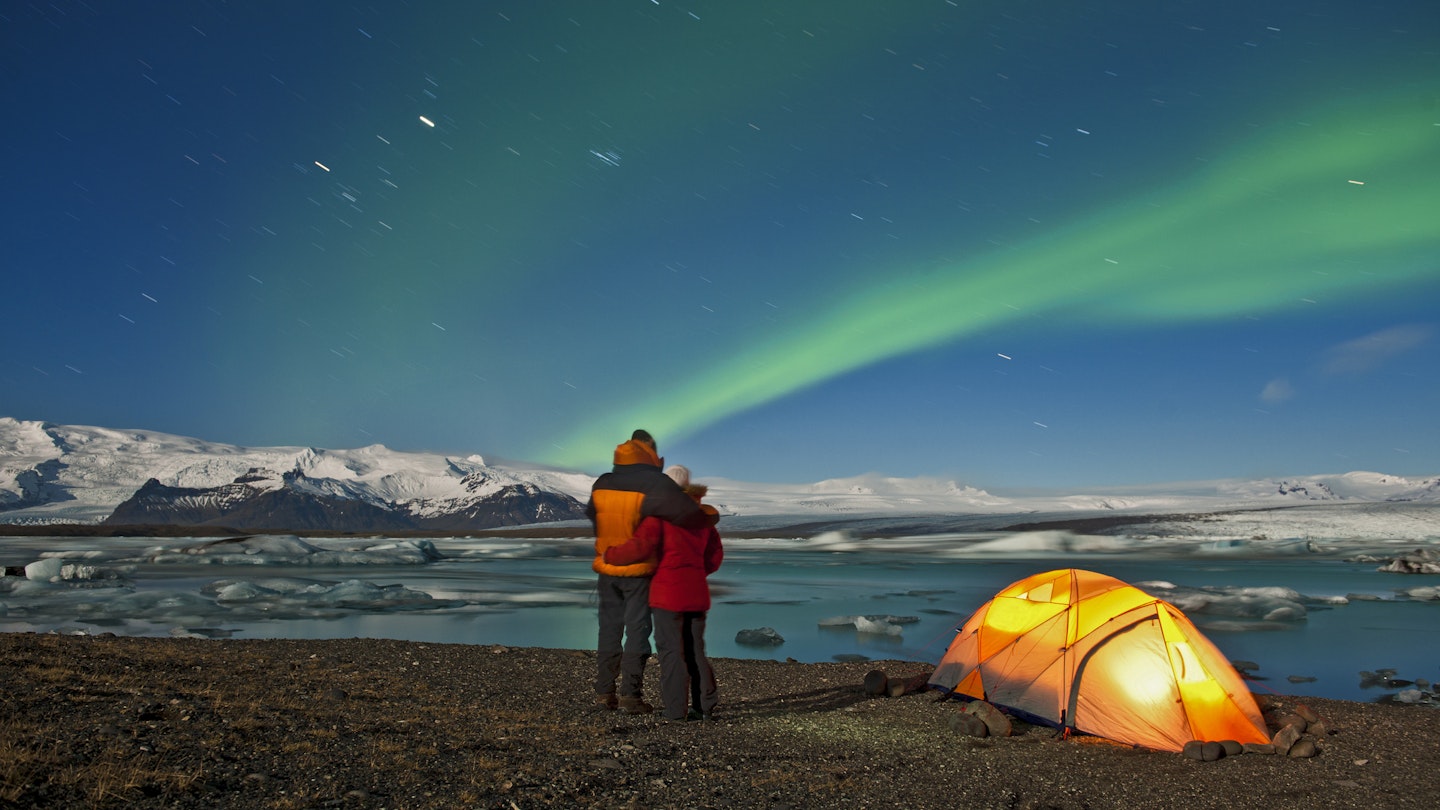
Here's everything to consider when planning your trip to Iceland © Cavan Images / Getty Images
The number of visitors to small, ravishingly beautiful Iceland is soaring.
But this tiny country wasn't always so popular, and there are many important things to be aware of ahead of your visit. In these wild landscapes, small errors can lead to life-threatening situations for both the visitor and the search and rescue operations mounted to save them.
This handy guide will help first-time visitors avoid social embarrassment, travel responsibly and have a safe and informed trip.

1. Keep up-to-date on Iceland's volcanic eruptions
Travelers heading to Iceland in 2024 will be aware there has been a series of volcanic eruptions on the Reykjanes Peninsula in south-west Iceland, not far from Keflavik International Airport, the main entry point to the capital Reykjavik . No flights have been affected so far, and the rest of Iceland is safe to visit.
The volcanic activity has only affected the town of Grindavik and the local area. All roads to Grindavik and the surrounding area are closed due to danger related to new crevasse openings. Hiking in the area is also prohibited. Icelanders have asked "lava chasers" to respectfully stay away.
The Blue Lagoon , one of Iceland's most popular attractions, also closed for a series of days due to seismic activity in the area but has since reopened.
The UK Foreign Office recommends checking alerts and advice from Icelandic Met Office and Safe Travel Iceland .
2. Use common sense to stay safe in the wild
Some tourists have been a little foolish in Iceland's incredible landscapes. Visitors have been seen strolling onto the Sólheimajökull glacier in sneakers and light jackets; a family attempted to drive across Langjökull glacier in a small SUV. We've also watched a teenager jump into 2°C (35°F) waters at Þingvellir National Park for a dare and witnessed tourists being sucked into the waves at black-sand Djúpalónssandur beach, one of Iceland's best .
Though Iceland's dramatic terrain can be perilous, there are usually no safety rails beside cliff edges and no ropes alongside plummeting waterfalls. Icelanders prefer not to mar beauty with obvious signs, or railings, instead they rely on people to be smart. If there are signs or barriers, heed them!

3. Plan ahead when hitting the road
Having your own wheels in Iceland is a wonderful treat: it allows you to roam the grand countryside at your leisure. Always prepare before setting out: investigate driving times and road conditions (via the Icelandic Road Administration ), weather forecasts, safety issues and, if you're walking in nature, trail conditions and requirements.
Plan an itinerary that's realistic for you. Ask locals, who will know the tricks and troubles of each place. You don't want to be caught on a hillside in fog or sleet (whether on foot or in your car) with no food and water and no idea how to get back to safety.
Safe Travel is a site run by ICE-SAR (Icelandic Search & Rescue), with travel and weather alerts and information, a smartphone app (useful in emergencies) and procedures for filing a travel plan.
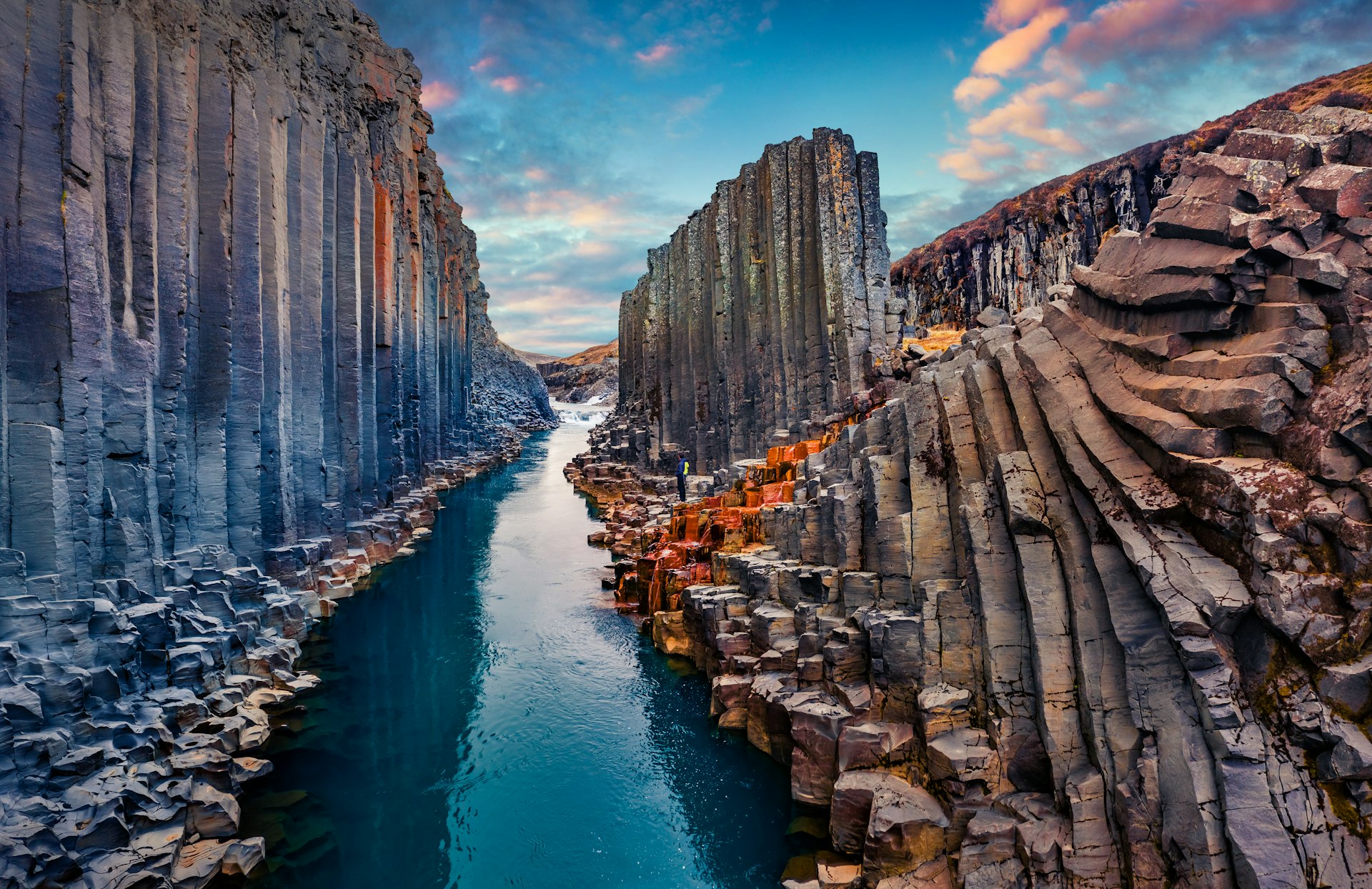
4. Do not drive off-road
Never drive off-road. It's illegal and incredibly damaging to the fragile environment. Cavalier tourists leave tracks where they've flouted the rule, and those tracks entice others to do the same. Even with a 4WD, stick to marked roads.
5. Always shower with soap before taking a dip in hot springs
Part of the unique gift of Iceland's volcanic landscape is the excellent natural hot springs you'll find from the town center to the fjord side. It's practically a national pastime to hit the local hotpot, soak and gossip. It is, however, an absolute mandatory hygiene and etiquette rule to wash thoroughly with soap before donning your swimsuit to enter the hot springs and pools.
Most pools are untreated with chemicals, so cleanliness is a real factor. Whether you're at the famous Blue Lagoon or the remote Krossneslaug, there's no quicker way to disgust an Icelander than to jump in dirty. You should also take your shoes off and put them on the rack provided as you enter the changing room.
6. Dress appropriately for hikes and pack proper outdoor gear
Bring good maps and appropriate gear, plus (you've heard it before): common sense. Consult a proper hiking or cold-weather packing list. Consider this – if you had no access to a car or building, would you be warm and dry enough in what you are wearing?
Never go hiking in jeans. Don't climb on glaciers without proper guidance. Don't try fording rivers in subcompact cars. And don't go camping without hardcore waterproof tents. With proper gear you can relax and enjoy all that beauty, no fear required.
Being prepared can open up great wilderness areas such as the Westfjords' beautiful Hornstrandir Nature Reserve , known for its Arctic foxes, spectacular birding cliffs and unspoiled hiking and camping.
If you need additional equipment once in Iceland, Reykjavík has a bevy of suppliers for gear purchase or rental, including Fjallakofinn .
Another good information source is Ferðafélag Íslands (the Icelandic Touring Association), which runs many huts, campgrounds and hiking trails.
7. When driving, stick to the right road for your vehicle
Know which roads are accessible in the type of vehicle you're driving. Beyond Iceland's main Ring Road (Route 1), fingers of sealed road or gravel stretch out to most communities until you reach the F Roads, bumpy tracks only passable by 4WD.
F roads are truly unsafe for small cars. If you travel on them in a hired 2WD, you will also invalidate your insurance. Steer clear, hire a 4WD or take a 4WD bus or super-Jeep tour. Similarly, trying to ford a river in a 2WD vehicle or low-slung 4WD is asking for trouble.

8. Take a tour of the more remote or dangerous landscapes
Iceland's tour operators are a professional and knowledgeable bunch and can get you out into rugged country via super-Jeep, amphibious bus, snowmobile, helicopter and more. Going on a tour can offer insights and guidance through dangerous landscapes you shouldn't tackle alone.
9. Understand the impact of tourism on Iceland
Iceland has a population of around 366,000. Before travelers started arriving in droves (with numbers that topped 2 million per year in 2019), most Icelandic sights , from thundering waterfall Skógafoss and basalt beach Reynisfjara to the wild interiors at Landmannalaugar & Þórsmörk, had no need for big car parks, safety placards or hordes of park rangers.
Developing an infrastructure that can cope with its appreciative new visitors while maintaining the untouched feeling of one of the world's most unique landscapes has been a major challenge for Iceland.
10. Travel responsibly and sustainably
Remember the basics of responsible travel: don't litter, reduce your environmental footprint, leave places better than you found them, and protect wild animals and natural flora. This applies to popular sights like the Golden Circle as well as the wild interior where it's just you, the glaciers and volcanoes.
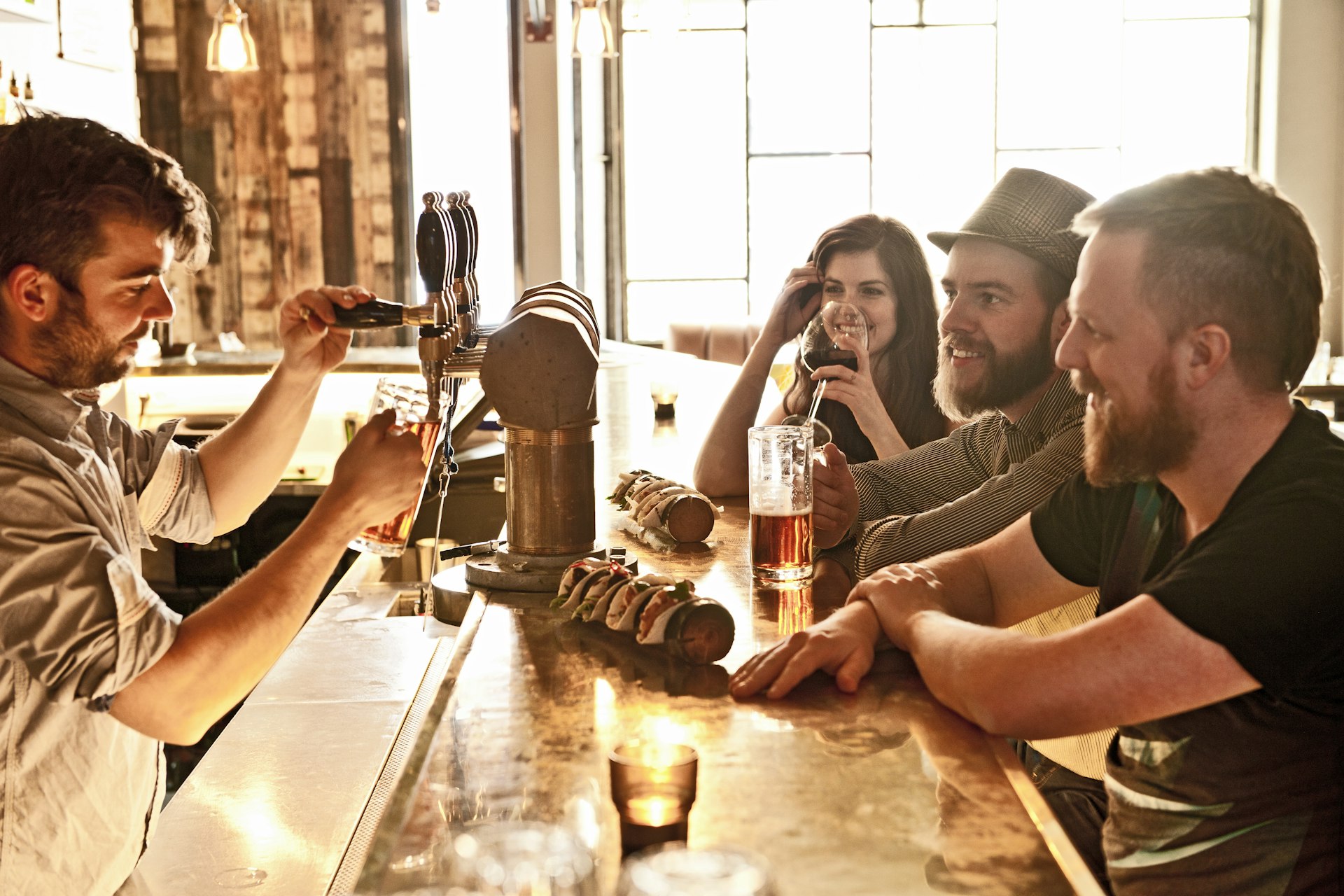
11. Appreciate the open-minded creativity of Icelanders
Icelanders are a generally hardy and open-minded group with a dry but vibrant sense of humor. They tend to speak impeccable English and are game for a chat, or to tell you about their favorite places to go. Respecting local etiquette and laws (along with not whingeing about the weather, or how hard it is to get to the natural wonders) will go a long way in endearing you to them and open opportunities for local connections.
They are also broad in their curiosities – it seems like half of Icelanders are in a band or making some sort of art or craft. They're used to thinking big and having fun. Why not get out there and join them.
12. Take the weather seriously
You may encounter bus tours and droves of visitors in popular places, but Icelandic weather is highly volatile, no matter where you are. A sunny day can quickly turn to snow flurries, and the stakes get even higher as you head into the true wilds. Never underestimate the weather – plan ahead with forecasts from the Icelandic Met Office .
13. Remove your shoes indoors
Icelanders often remove their shoes when they head inside. Pack flip-flops or slippers for indoors.
14. Yes, you can drink the tap water
It's pure and wonderful; Icelanders will look at you askance if you ask for bottled water.
This article was first published Jul 8, 2015 and updated Feb 6, 2024.
Explore related stories
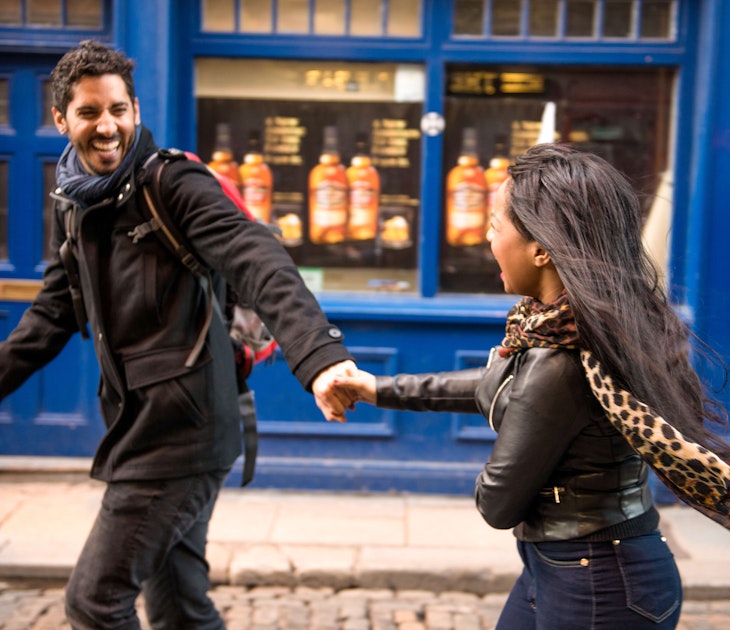
Destination Practicalities
Mar 30, 2024 • 4 min read
Who wouldn't jump at the chance to visit the Emerald Isle? Here’s how to check if you need a visa before setting off on your Irish adventure.
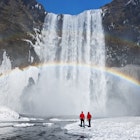
Mar 28, 2024 • 17 min read
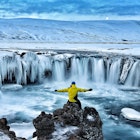
Mar 12, 2024 • 8 min read

Mar 7, 2024 • 5 min read

Jan 2, 2024 • 8 min read
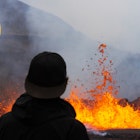
Dec 19, 2023 • 6 min read
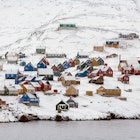
Dec 1, 2023 • 6 min read
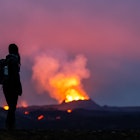
Nov 13, 2023 • 5 min read
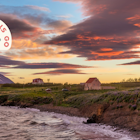
Nov 3, 2023 • 4 min read

Jan 2, 2023 • 12 min read
Helpful Words and Phrases
Best Tours in Iceland
Top Northern Lights Tours
Seven-Day Iceland Itinerary
48 Hours in Reykjavik
Day Trips From Reykjavik
Top Things to Do in Iceland
Best Beaches in Iceland
Hiking in Iceland
How to See the Northern Lights
Best Icelandic Hot Springs
Skiing in Iceland
Top Things to Do in Reykjavik
Free Things to Do in Reykjavik
Reykjavik's Best Museums
Shopping in Reykjavik
Guide to the Blue Lagoon
Food to Try in Iceland
Best Restaurants in Reykjavik
Top Reykjavik Bars
Craft Beer in Iceland
Best Time to Visit
Weather & Climate
Top Places to Visit in Iceland
Keflavik International Airport Guide
Driving in Iceland
Tipping in Iceland
Staying Safe in Iceland
Is It Safe in Iceland?
Iceland is not only one of the safest countries in the world, but it is the safest country in the world and has been every year from 2008 through 2020, according to the Global Peace Index. Petty crime like pickpocketing and robbery is rare, and violent crime is almost non-existent. With a population of about 350,000 people in the whole country, there's a sense that everyone knows everybody. Visitors are often taken aback by the directness of Icelanders and even think of them as rude, but once you get to know the culture, you'll feel welcomed into their tight-knit community.
Even though you don't have to worry much about the people when you're in Iceland, the country does experience extreme weather . Whether you're driving through the rural interior, exploring glaciers, or scuba diving in the frigid waters, be sure to do so safely and following advice from local guides.
Travel Advisories
- The U.S. Department of State currently recommends that visitors to Iceland "reconsider travel" due to the COVID-19 pandemic. Travel advisories have been changing frequently so get the most up-to-date information directly from the U.S. State Department.
- Prior to the pandemic, the U.S. State Department advised travelers bound for Iceland to "exercise normal precautions," its lowest-level travel advisory.
Is Iceland Dangerous?
Travelers have little to worry about when visiting Iceland in terms of crime. Even pickpocketing in Iceland is out of the ordinary, and Icelanders typically leave their doors unlocked and windows open—when the weather permits—because the country is so safe. But just because Iceland isn't dangerous doesn't mean that crime doesn't exist. Don't forget common sense and keep an eye on your belongings. You aren't likely to have any problems, but a potential thief can always tell who has their guard down.
What you do need to worry about in Iceland is Mother Nature. Storms can cause flooding, blizzards, landslides, and avalanches, so be wary when you're traveling about the country, especially through the sparsely populated interior. If you're driving , only a third of Iceland's roads are paved and many of them are closed for several months of the year due to icy or muddy conditions. Carry a flashlight with you, keep your headlights turned on at all times ( it's the law ), and don't go off-road.
Is Iceland Safe for Solo Travelers?
Whether you've traveled solo around the world or it's your first trip alone, Iceland is an ideal destination. The overall safety of the country makes it easy to go out and meet locals without having to worry about the dangers of venturing out alone, especially if you're staying around the capital city of Reykjavik .
If you're traveling alone around the island, it's best to do with a clear itinerary. Share your plans with someone before setting off in case of an emergency, since cellphone coverage can be spotty and response teams may have trouble getting to you. If you haven't done an "outdoors trip" before or it's your first time in Iceland, it may be better to join an organized group instead of attempting to rough it on your own.
Is Iceland Safe for Female Travelers?
Iceland isn't just the safest country in the world, but it also ranks number one in gender equality. Even though there is always room to improve, Iceland has been a pioneer in women's rights for decades, notably in 1980, when Icelanders elected the first female president of any country in history. While past elections and academic rankings may seem irrelevant to females traveling in Iceland, these are just examples of how gender equality is ingrained into the local culture. Women, especially women traveling alone, should take normal precautions when out in Iceland, just as they would at home.
Safety Tips for LGBTQ+ Travelers
Unsurprisingly, Iceland is also considered one of the most friendly countries in the world to LGBTQ+ individuals. Twenty-nine years after Iceland elected the first female president in the world, the Icelandic legislature selected the first openly LGBTQ+ head of state. The country's national church, the Christian Church of Iceland, allows same-sex weddings in its places of worship. And even though Reykjavik would be considered a small town compared to other capital cities—the population is roughly 130,000 people —it has a thriving gay scene with several bars and cafes that cater to the LGBTQ+ crowd. Outside of Reykjavik, there are virtually no spaces exclusively for LGBTQ+ individuals, but the country as a whole is accepting, even in rural areas.
In cities, it's common for bathrooms to be single-stall and gender-neutral, but if the restrooms are separated by males and females, you are allowed to use the bathroom that corresponds with your gender identity.
Safety Tips for BIPOC Travelers
In terms of danger, Iceland is just as safe for BIPOC travelers as it is for everyone else and the locals are welcoming to all. However, Iceland is also one of the most insular places on Earth and cultural diversity is a relatively recent development in the country. BIPOC travelers may have to endure stares, comments, or questions that would be considered offensive microaggressions back home, especially when traveling outside of Reykjavik. If that happens, the comments hopefully come from a place of benign curiosity instead of antipathy, but if you feel uncomfortable you should immediately remove yourself from the situation.
Safety Tips for Travelers
Even with a low risk of crime and helpful locals, visitors to Iceland should use common sense and take precautions to prevent problems, especially during the coldest months of the year .
- Road closures may be necessary because of winter weather, wind, and mudslides, so check conditions before getting in the car.
- If you are hiking or planning on being outside, make sure you bring the proper equipment. This includes a compass, phone, GPS, maps, and more.
- If you have an emergency, dial 112 from any phone in Iceland to reach emergency services.
- Read warning signs and follow their instructions. They are there for your protection, so if a sign says to stay on the path, keep away from the ocean, or anything else, there's a reason.
- Storms can appear quickly and with little warning, so frequently check the weather to make sure you aren't caught unaware.
The Institute for Economics and Peace. " Global Peace Index. " June 2020.
U.S. Department of State. " Iceland International Travel Information. " August 6, 2020.
World Economic Forum. "Global Gender Gap World Report 2020." Retrieved December 31, 2020.
Asher and Lyric Fergusson. " LGBTQ+ Danger Index. " November 12, 2019.
Grapevine. "From Iceland- Icelandic People Are Not Racist, but..." February 2015. Retrieved December 31, 2020.
Is It Safe in Sweden?
Is It Safe in Peru?
Is It Safe in Germany?
Is It Safe in Guatemala?
Is It Safe in Barbados?
Is It Safe in Mexico?
Is It Safe in Egypt?
Is It Safe in Puerto Rico?
Is It Safe in Rio de Janeiro?
Is It Safe in Denmark?
Is It Safe in Colombia?
How to Stay Safe on a Trip to the Dominican Republic
Is It Safe in Jamaica?
Is It Safe in Ireland?
Is It Safe in Thailand?
Is It Safe in Finland?

Iceland Travel Restrictions Continue to Change—Here’s Everything You Need to Know
Vaccinated americans can still travel to iceland with no quarantine, but testing requirements and social-distancing measures are back due to a spike in covid-19 cases this summer..
- Copy Link copied

Entrance of an ice cave inside Vatnajökull glacier in southern Iceland
Photo by Albert Russ/Shutterstock
Ever since April 6, 2021, all travelers (regardless of origin) who can show proof of a full COVID-19 vaccination or prior COVID-19 infection have had permission to enter Iceland. But just a month after all social-distancing rules were lifted on June 26, a rise in new cases of coronavirus—even among its highly vaccinated population—has prompted the Icelandic government to reinstate testing requirements for all travelers en route to Iceland. Before you start plotting your trip to see the still-erupting Fagradalsfjall volcano , here’s what you need to know about Iceland’s new travel restrictions.
Before you book your ticket . . .
Make sure you can show proof of one of two things: a full COVID-19 vaccination—be it Pfizer-BioNTech, Moderna, AstraZeneca, or Johnson & Johnson (Janssen)—via one of the official accepted forms , or an accepted document that shows prior COVID-19 infection (for example, a positive PCR test that’s older than 14 days). Note that for proof of prior infection, you need documented laboratory results; clinical diagnoses and rapid diagnostic tests (antigen or antibody tests) are not accepted.
As of July 27 , vaccinated travelers and those who can prove previous infection born in 2004 or earlier must also now provide proof of a negative PCR or antigen test that is no more than 72 hours old before departing for Iceland.
While both vaccinated and unvaccinated travelers without proof of prior infection can visit, the vaccinated and those who had COVID previously won’t have to quarantine. The unvaccinated face a host of other tests and restrictions (see below).
Children born in 2005 or later are allowed to enter Iceland with their parents and do not have to be tested at the border or be subject to quarantine.
All visitors to Iceland born in 2004 or earlier need to preregister on this website before entering the country.
Even with these new travel restrictions, don’t expect to have the plane to yourself on the way over. Between the excitement of Iceland’s volcano tourism, its reopening to international travelers, and the country’s perennial appeal, AFAR’s trusted travel advisors are reporting a flood of interest and bookings.
Do I need to quarantine on arrival?
Vaccinated travelers: If you’re vaccinated or can provide proof of a previous COVID infection, you won’t have to quarantine.
Unvaccinated travelers: However, unvaccinated travelers without proof of prior infection must present negative PCR test results on arrival and take another PCR test upon arrival then quarantine for five days at an approved accommodation and test again at the end of quarantine to be released.
What are the COVID counts and vaccine rates in Iceland?
Iceland has been lauded as one of the more successful countries at containing spring 2020’s COVID-19 infections. After the country managed to contain a larger wave of infections in fall 2020, a spike in new coronavirus cases this summer has led to a tightening of restrictions once again in July 2021.
Iceland has approved several COVID-19 vaccinations for use, including Pfizer-BioNTech, Moderna, AstraZeneca, or Johnson & Johnson (Janssen), and is currently providing free, nonmandatory vaccinations to citizens. As of 2019, Iceland has 356,991 residents; according to official Iceland vaccination statistics updated in early August, more than 255,322 residents have been fully vaccinated, and more than 275,173 have received at least one dose. That means roughly 71 percent of Iceland’s population has been fully vaccinated—one of the highest rates in the world .
On August 9, 2021, the CDC added Iceland to its “Avoid Travel” list and issued a Level 4: Very High Level of COVID-19 in Iceland alert. The U.S. State Department also issued a Level 4: Do Not Travel advisory to Iceland on the same day “due to COVID-19 related restrictions,” indicating a “very high level of COVID-19 in the country.”
The country has reported 30 coronavirus-related deaths since February 2020. The CDC warns: If you must travel to Iceland, get fully vaccinated before travel. All travelers need to stay six feet from others, avoid crowds, wear a mask in public spaces where distancing isn’t possible, and wash their hands. By comparison, the U.S. State Department currently lists Israel, France, and Aruba as Level 4 (Do Not Travel) while Mexico and Italy are Level 3.
What kind of mitigation rules are in place?
Being fully vaccinated doesn’t ensure you can’t catch or spread variants of the virus, so heeding the country’s social-distancing and masking rules remains paramount.
The Icelandic government reimposed social-distancing rules again on July 25. They will remain in effect until at least August 27 , when they’ll be updated on the country’s official COVID-19 page . You must keep one meter (roughly three feet) between people who are not “closely linked” to you and wear a mask when social distancing isn’t possible. Face masks that cover the nose and mouth are still required on public transport (all operating as normal), and in taxis, stores, salons, as well as at sports events, movie theaters, and concerts. While restaurant owners can decide their own masking rules, there are also limits to the number of people allowed inside restaurants and bars, as well as theaters, grocery stores, pharmacies, and museums to help ensure social distancing.
Iceland is extremely dependent on tourism (2.3 million visitors arrived there in 2018, according to the Icelandic Tourist Board ). If you follow Iceland’s protocols and laws, it’s safe to say you will be welcomed.
How much is actually open (museums, bars, restaurants)?
From museums to outdoor tours, expect to find most things open and operating across Iceland, albeit under new COVID-19 norms, with reservations often required and reduced hours and capacity possible.
Bars, nightclubs, and restaurants that serve alcohol are open but have an 11 p.m. curfew and allow a maximum of 100 guests. While mask use isn’t mandated at these venues, all guests are required to leave their tracing information including name, ID number, and telephone number. Swimming pools and hot springs, including the famous Blue Lagoon attraction, are open but operating at a 75 percent limited capacity.
To be safe, call ahead of time to make sure whatever you’re planning to do is available. (Most Icelanders speak excellent English, but you can always request your hotel call for you.)
What are the requirements for returning to the United States?
Negative COVID-19 tests are required to enter the United States from a foreign country, including Iceland. This applies to everyone, including all U.S. citizens and fully vaccinated travelers. Both viral antigen tests or nucleic acid amplification tests (NAAT), such as a polymerase chain reaction (PCR) test, are accepted. The test must be taken within three days of your return to the U.S.
You can book an advance appointment for a COVID-19 antigen test in Keflavík and Reykjavík through testcovid.is. Expect to pay 6,900 ISK (about US$55) and results will be emailed to you in 15–25 minutes, so you can book this test on your way to the Keflavík airport. The Keflavík site is open every day from 7 a.m. to 4 p.m., and the Reykjavík site is open Monday through Friday between 5 a.m. and 1 p.m.
In May, the CDC also approved the use of at-home tests with a telehealth video call for international arrivals. So you can pack one of those—which range from $25 to $50—and complete the test in the comfort of your own accommodations up to three days before your return flight home.
There’s no need to quarantine in Iceland while you wait for your test results. Upon arrival in the U.S. with your negative COVID-19 test result, there’s also no need to quarantine.
What about old-school things like “needing a visa”–does that apply here?
Americans don’t need a visa to visit Iceland and can stay for up to 90 days for tourist or business purposes. A full list of nationalities that require visas to travel to Iceland can be found here .
What airlines have flights to Iceland right now?
Icelandair flies year-round from Boston daily, and it restarted daily service from New York (JFK and EWR), Washington, D.C., Chicago, Denver, and Seattle last May through this December. You can also book flights from Minneapolis (five times a week) or Orlando (four times a week) now through December. Seasonal flights four times a week depart from Portland, Oregon, now through October 31.
Delta’s daily service to Reykjavík–Keflavík from JFK started back up on May 1 and resumed from Boston on May 20 and from Minneapolis/St. Paul on May 27.
United started daily service from Chicago to Reykjavík July 1 to run through October 3. United’s daily flights from Newark to Reykjavík resumed June 3 through October 29.
A recent search on Google Flights for nonstop round trips from New York were about $350, about $430 from Boston, and about $650 with one layover from Los Angeles.
Any suggestions on places to stay or tour operators?
Some of our favorite places to stay and tour operators in Iceland include:
Hidden Iceland
AFAR’s digital content director Laura Dannen Redman flew via Icelandair out of JFK in May and traveled with Hidden Iceland, a bespoke travel company that specializes in small group and private tours with an emphasis on active travel. “My husband and I had a guided tour with Hidden Iceland’s Ryan Connolly—it was like road tripping with a (very knowledgeable) friend. The late-May trip started in dramatic fashion with a twilight hike the day we landed to watch the Fagradalsfjall volcano erupt, which is now one of my top travel experiences of all time. We then went on a two-day Jökulsárlón Glacier Lagoon tour and glacier hike in the UNESCO protected Vatnajökull National Park . The nature was stunning—next level—and the adventures across the country were made for social distancing.”
G Adventures
Founded in 1990 by Bruce Poon Tip, an AFAR 2018 Travel Vanguard winner, small adventure tour operator G Adventures has more than a dozen Iceland itineraries departing as soon as August 20, 2021, all the way through summer 2022 for those who like to plan ahead.
For a last-minute trip, the three-day Classic Reykjavik Summer Mini Adventure is $899 per person for its August 20 departure; it takes you through Iceland’s capital, the Kerid Crater, and Videy Island, with Blue Lagoon and whale watching excursions. For a more comprehensive itinerary, the seven-day Best of Iceland — Plus trip is $2,799 per person for its September 11 departure. During the guided trek, you’ll get to hike a glacier at Skaftafell National Park, visit the black-sand Reynisfjara beach near Vík, and more.
All G Adventure bookings made now through December 31, 2021, for travel departing now through December 31, 2022, can be canceled and rebooked up to 14 days prior to departure date to allow travelers a little more peace of mind in case they have to reschedule.
Classic Journeys
You can’t go wrong with a Classic Journeys guide —locals who are handpicked by the company founders based on their knowledge, skill, and ability to make you feel welcome, wherever you are. In Iceland, you may be led by a descendent of 9th-century Vikings. Its Iceland Culture + Walking itinerary is a great bet: “Guided by dyed-in-the-wool Icelanders, you’ll enjoy the captivating chaos of Iceland’s nature, interwoven with fascinating Norse mythology. Walk some of the most cinematic paths on the planet—over ancient glaciers, vivid moss fields and black-sand beaches—to Viking ruins, waterfalls, and fishing villages for lunch with local families.”
The Retreat at Blue Lagoon is an AFAR favorite spa hotel that gives you private access to the famed lagoon, while the minimalist-chic Silica Hotel provides easy access to the Blue Lagoon and Silica Lagoon.
Hotel Ranga , about 60 miles south of Reykjavík on the island’s south coast, where the suites are themed after the seven continents, has an onsite observatory for stargazing and offers tours through Southcoast Adventure to ice caves, volcanoes, and glaciers as well as horseback adventures.
Rental cars
Holdur , the largest rental car company in Iceland, has rental locations across the island and minivans, cargo vans, campers, and motor homes in its fleet. However, as in the United States, there’s also a rental car shortage in Iceland this summer. If you’re lucky enough to find one available, you’ll likely be faced with sky-high prices . A recent search on Kayak showed prices starting at $997 for a one-week rental on small economy vehicles in August. If you wait until mid-September, starting prices drop to a more reasonable $367.
With additional reporting by Laura Dannen Redman.
This story was originally published on May 4, 2021; it was updated on August 13, 2021, with current information.
>>Next: How to Have Your Dream Vacation in Iceland

Update April 12, 2024
Information for u.s. citizens in the middle east.
- Travel Advisories |
- Contact Us |
- MyTravelGov |
Find U.S. Embassies & Consulates
Travel.state.gov, congressional liaison, special issuance agency, u.s. passports, international travel, intercountry adoption, international parental child abduction, records and authentications, popular links, travel advisories, mytravelgov, stay connected, legal resources, legal information, info for u.s. law enforcement, replace or certify documents.
Before You Go
Learn About Your Destination
While Abroad
Emergencies
Share this page:
Travel Advisory July 26, 2023
Iceland - level 1: exercise normal precautions.
Last Update: Reissued with updates to health information.
Exercise normal precautions in Iceland.
Read the country information page for additional information on travel to Iceland.
If you decide to travel to Iceland:
- Enroll in the Smart Traveler Enrollment Program ( STEP ) to receive Alerts and make it easier to locate you in an emergency.
- Follow the Department of State on Facebook and Twitter .
- Review the Country Security Report for Iceland.
- Visit the CDC page for the latest Travel Health Information related to your travel.
- Prepare a contingency plan for emergency situations. Review the Traveler’s Checklist .
Embassy Messages
View Alerts and Messages Archive
Quick Facts
Three months required, six months recommended beyond your planned date of departure from the Schengen area.
Two pages required for entry stamp
Not required for stays less than 90 days
Any amount over 10,000 Euros or equivalent must be declared
Embassies and Consulates
U.s. embassy reykjavik.
Engjateigur 7 105 Reykjavik Iceland Telephone: +(354) 595-2200 Emergency Telephone: +(354) 595-2248 Fax: +(354) 562-9118 Email: [email protected]
Destination Description
Learn about the U.S. relationship to countries around the world.
Entry, Exit and Visa Requirements
COVID-19 Requirements There are no COVID-related entry requirements for U.S. citizens.
Visit the Icelandic Directorate of Immigration website for the most current visa information.
Traveling Through Europe: If you are planning to visit or travel through European countries, you should be familiar with the requirements of the Schengen Agreement.
- Your passport should be valid for at least three months beyond the period of stay if you plan on transiting a Schengen country review our U.S. Travelers in Europe page .
- You will need sufficient proof of funds and a return plane ticket.
- For additional information about visas for the Schengen area, see the Schengen Visa page.
The U.S. Department of State is unaware of any HIV/AIDS entry restrictions for visitors to or foreign residents of Iceland.
Find information on dual nationality , prevention of international child abduction and customs regulations on our websites.
Safety and Security
Terrorism: Terrorist groups and those inspired by such organizations are intent on attacking U.S. citizens abroad. Terrorists are increasingly using less sophisticated methods of attack – including knives, firearms, and vehicles – to more effectively target crowds. Frequently, their aim is unprotected or vulnerable targets, such as:
- High-profile public events (sporting contests, political rallies, demonstrations, holiday events, celebratory gatherings, etc.)
- Hotels, clubs, and restaurants frequented by tourists
- Places of worship
- Shopping malls and markets
- Public transportation systems (including subways, buses, trains, and scheduled commercial flights)
Crime: Iceland has a low crime rate with rare instances of violent crime. Using common sense will go a long way in ensuring you do not become a victim.
- Do not put bags containing valuables, such as your passport, on the floor in bars or nightclubs.
- Do not leave your valuables in parked vehicles, even if the vehicle is locked.
- Be aware that downtown Reykjavik can become disorderly in the late night to early morning hours as people are leaving bars and clubs.
International Financial Scams: See the Department of State and the FBI pages for information on scams.
Victims of Crime: Report crimes to the local police by dialing 112 and contact the U.S. Embassy at [email protected] . After working hours, call +(354)595-2248. Remember that local authorities are responsible for investigating and prosecuting crime.
See our webpage on help for U.S. victims of crime overseas .
- Help you find appropriate medical care
- Assist you in reporting a crime to the police
- Contact relatives or friends with your written consent
- Explain the local criminal justice process in general terms
- Provide a list of local attorneys
- Provide our information on victim’s compensation programs in the U.S.
- Provide an emergency loan for repatriation to the United States and/or limited medical support in cases of destitution
- Help you find accommodation and arrange flights home
- Replace a stolen or lost passport
Domestic Violence : U.S. citizen victims of domestic violence should dial 112 for immediate emergency assistance and may contact the Embassy for non-emergency assistance.
The Icelandic Red Cross has a helpline that is open 24 hours a day, every day, for anyone needing assistance with grief, anxiety, fear, depression, or suicidal thoughts. Dial 1717 to reach Red Cross volunteers in Iceland.
Tourism: The tourism industry is generally regulated, and rules are regularly enforced; and professional staff is typically on hand in support of organized activities. Hazardous areas/activities are not always identified with appropriate signage. In the event of an injury, appropriate medical treatment is sporadic due to limited hours and geographic distance from care. Outside of a major metropolitan center, it may take more time for first-responders and medical professionals to stabilize a patient and provide life-saving assistance. U.S. citizens are strongly encouraged to purchase medical evacuation insurance .
Local Laws & Special Circumstances
Criminal Penalties: You are subject to local laws. If you violate local laws, even unknowingly, you may be expelled, arrested, or imprisoned. Individuals establishing a business or practicing a profession that requires additional permits or licensing should seek information from the competent local authorities, prior to practicing or operating a business.
- Importation of whale products to the United States: All persons are barred from importing whale products to the United States.
- The Marine Mammal Protection Act makes it illegal to bring back whale products to the United States.
- Any importation of products containing whale to the United States will result in the seizure of the goods and possible criminal prosecution. Penalties include jail time and fines of up to $10,000.
Furthermore, some laws are also prosecutable in the U.S., regardless of local law. For examples, see our website on crimes against minors abroad and the Department of Justice website.
Arrest Notification: If you are arrested or detained, ask police or prison officials to notify the U.S. Embassy immediately. See our webpage for further information.
Counterfeit and Pirated Goods: Although counterfeit and pirated goods are prevalent in many countries, they may still be illegal according to local laws. You may also pay fines or have to give them up if you bring them back to the United States. See the U.S. Department of Justice website for more information.
Faith-Based Travelers:
See the following webpages for details:
- Faith-Based Travel Information
- International Religious Freedom Report – see country reports
- Human Rights Report – see country reports
- Hajj Fact Sheet for Travelers
- Best Practices for Volunteering Abroad
LGBTI Travelers: There are no legal restrictions on same-sex sexual relations or the organization of LGBTI events in Iceland.
See our LGBTI Travel Information page and section 6 of our Human Rights report for further details.
Travelers with Disabilities : The law in Iceland law prohibits discrimination against persons with disabilities and requires that public accommodations and government buildings, including elevators, be accessible to individuals with disabilities. All government buildings in Iceland are wheelchair accessible, as are most museums, malls, and large shopping centers in the capital area. The public bus system and taxis provide transportation services for individuals with disabilities.
- Many stores in the old downtown area in Reykjavik, such as around the popular shopping street of Laugavegur, are not wheelchair accessible.
- Many sidewalks in downtown Reykjavik lack curb ramps, and the streets are steep.
- Hotels outside Reykjavik and smaller hotels in the capital are not all accessible to individuals with disabilities.
- There are very few paths or marked trails at natural attractions found outside urban areas.
Students: See our Students Abroad page and FBI travel tips .
Women Travelers: See our travel tips for Women Travelers .
COVID-19 Testing: COVID PCR and antigen tests are available for U.S. citizens in Iceland and results are available within 72 hours. PCR tests that are not conducted upon request are at the citizen’s expense and average 7000ISK or $54. Antigen rapid tests are provided by private companies and the price varies between them. Test results are provided via text message or via e-mail.
COVID-19 Vaccines: The COVID-19 vaccine is available for U.S. citizens to receive in Iceland. Visit the FDA's website to learn more about FDA-approved vaccines in the United States.
Medical care in Iceland is of high quality, but limited services are available outside large, urban areas. The Icelandic medical system offers coverage only for people who live in Iceland. Non-residents are expected to pay their own medical costs, and you should be prepared to pay your bill in full before leaving the hospital or clinic.
For emergency services in Iceland, dial 112 . For non-emergency medical assistance in the Reykjavik metropolitan area, dial 544-4114 during business hours. During non-business hours, dial 1770.
Ambulance services are:
- Not present throughout the country or have long response times except in or near major population areas such as Reykjavik. Iceland does have air ambulance services, but they are limited by weather and distance to the patient.
- We do not pay medical bills . Be aware that U.S. Medicare does not apply overseas. Most hospitals and doctors overseas do not accept U.S. health insurance.
Medical Insurance : Make sure your health insurance plan provides coverage overseas. Most care providers overseas only accept cash payments, though most hospitals and clinics in Iceland do accept credit cards. See our webpage for more information on insurance coverage overseas. Visit the U.S. Centers for Disease Control and Prevention for more information on type of insurance you should consider before you travel overseas.
We strongly recommend supplemental insurance to cover medical evacuation.
Always carry your prescription medication in original packaging, along with your doctor’s prescription. Check with the government of Iceland to ensure the medication is legal in Iceland. Please review the CDC guidance on purchasing medicine overseas.
Vaccinations: Be up-to-date on all vaccinations recommended by the U.S. Centers for Disease Control and Prevention.
Further health information:
- World Health Organization
- U.S. Centers for Disease Control and Prevention (CDC)
Air Quality: Visit AirNow Department of State for information on air quality at U.S. Embassies and Consulates. The U.S. Embassy maintains a list of doctors and hospitals. We do not endorse or recommend any specific medical provider or clinic.
Health facilities in general:
- Adequate health facilities are available in the Reykjavik area and other major cities but health care in rural areas may be limited or unavailable.
- Patients bear all costs for transfer to or between hospitals if the patient is not a permanent resident or citizen of Iceland.
- Psychological and psychiatric services are available but in-patient care is frequently operating at capacity, and patients may require a wait-time for admission. Hospital-based care is only available in larger cities.
Assisted Reproductive Technology and Surrogacy
Surrogacy is illegal in Iceland.
Adventure Travel
Visit the U.S. Centers for Disease Control and Prevention website for more information about Adventure Travel .
General Health Language
Visit the U.S. Centers for Disease Control and Prevention website for more information about Resources for Travelers regarding specific issues in Icerland
Travel and Transportation
Road Conditions and Safety: Driving in Iceland is on the right side of the road, as in the United States.
- All travelers in Iceland are strongly encouraged to monitor weather and road safety year-round through safetravel.is and road.is through the web or smart device applications.
- While in Iceland, you may encounter road conditions that differ significantly from those in the United States . Less than one-third of Iceland’s total road network is paved , and many roads outside the capital, especially those that run through the center of the country, are impassable in winter (October through April).
- Many bridges are only one lane wide (marked with a sign “Enibreid bru”) so drivers must be alert to oncoming traffic. There are also one-lane tunnels with pullout zones to yield to oncoming traffic.
- Extreme care should be taken when driving in rural areas during the winter when daylight hours are limited and the weather and road conditions can change rapidly.
- Many routes in the interior of the country are impassable until July due to muddy conditions and swollen rivers caused by snowmelt.
- Always inform someone of your travel plans .
For information on current road conditions throughout the country please consult The Icelandic Road and Coastal Administration (Vegagerdin) website. This website can show you in real time the status of most roads in Iceland, color-coded by status.
Traffic Laws: You can use a valid U.S. driver’s license for up to 90 days while visiting Iceland, but you must be at least 17 years old to drive.
- Icelandic law requires drivers to keep headlights on at all times .
- Talking on cell phones while driving is prohibited , except when using a hands-free system, and is subject to a fine of 5,000 Icelandic Kronur (approximately $45).
- Driving under the influence of alcohol is a serious offense in Iceland . Drivers can be charged with Driving Under the Influence with a blood alcohol level as low as .05%.
- Unless otherwise posted, the speed limit is 50 km/h in urban areas and 30 km/h in residential areas.
- In rural areas, the speed limit depends on the type of road: on dirt and gravel roads, the speed limit is 80 km/h (50 mph) ; on paved highways, the speed limit is 90 km/h (55 mph) .
- It is illegal to turn right on a red light.
- In traffic circles , always yield to cars coming from the left/ the inside lane.
- The use of seatbelts is mandatory in both the front and rear seats.
- Children under the age of six must be secured in a size and weight appropriate car seat.
- Drivers are held responsible for any passenger under the age of 15 not wearing a seatbelt.
- No one shorter than 140 centimters, lighter than 40 kilograms (or 88 pounds), or younger than 12 years of age is allowed to ride in a front seat equipped with an airbag.
Public Transportation: Public transportation in Iceland is safe and reliable.
See our Road Safety page for more information.
Aviation Safety Oversight: The U.S. Federal Aviation Administration (FAA) has assessed the government of Iceland’s Civil Aviation Authority as being in compliance with International Civil Aviation Organization (ICAO) aviation safety standards for oversight of Iceland’s air carrier operations. Further information may be found on the FAA’s safety assessment page .
Maritime Travel: Mariners planning travel to Iceland should also check for U.S. maritime advisories and alerts on the Maritime Administration website. Information may also be posted to the websites of the U.S. Coast Guard and the National Geospace Intelligence Agency (select “broadcast warnings”).
For additional travel information
- Enroll in the Smart Traveler Enrollment Program (STEP) to receive security messages and make it easier to locate you in an emergency.
- Call us in Washington, D.C. at 1-888-407-4747 (toll-free in the United States and Canada) or 1-202-501-4444 (from all other countries) from 8:00 a.m. to 8:00 p.m., Eastern Standard Time, Monday through Friday (except U.S. federal holidays).
- See the State Department’s travel website for the Worldwide Caution and Travel Advisories .
- Follow us on Twitter and Facebook .
- See traveling safely abroad for useful travel tips.
Review information about International Parental Child Abduction in Iceland . For additional IPCA-related information, please see the International Child Abduction Prevention and Return Act ( ICAPRA ) report.
Travel Advisory Levels
Assistance for u.s. citizens, iceland map, learn about your destination, enroll in step.

Subscribe to get up-to-date safety and security information and help us reach you in an emergency abroad.
Recommended Web Browsers: Microsoft Edge or Google Chrome.
Make two copies of all of your travel documents in case of emergency, and leave one with a trusted friend or relative.
Afghanistan
Antigua and Barbuda
Bonaire, Sint Eustatius, and Saba
Bosnia and Herzegovina
British Virgin Islands
Burkina Faso
Burma (Myanmar)
Cayman Islands
Central African Republic
Cote d Ivoire
Curaçao
Czech Republic
Democratic Republic of the Congo
Dominican Republic
El Salvador
Equatorial Guinea
Eswatini (Swaziland)
Falkland Islands
France (includes Monaco)
French Guiana
French Polynesia
French West Indies
Guadeloupe, Martinique, Saint Martin, and Saint Barthélemy (French West Indies)
Guinea-Bissau
Isle of Man
Israel, The West Bank and Gaza
Liechtenstein
Marshall Islands
Netherlands
New Caledonia
New Zealand
North Korea (Democratic People's Republic of Korea)
Papua New Guinea
Philippines
Republic of North Macedonia
Republic of the Congo
Saint Kitts and Nevis
Saint Lucia
Saint Vincent and the Grenadines
Sao Tome and Principe
Saudi Arabia
Sierra Leone
Sint Maarten
Solomon Islands
South Africa
South Korea
South Sudan
Switzerland
The Bahamas
Timor-Leste
Trinidad and Tobago
Turkmenistan
Turks and Caicos Islands
United Arab Emirates
United Kingdom
Vatican City (Holy See)
External Link
You are about to leave travel.state.gov for an external website that is not maintained by the U.S. Department of State.
Links to external websites are provided as a convenience and should not be construed as an endorsement by the U.S. Department of State of the views or products contained therein. If you wish to remain on travel.state.gov, click the "cancel" message.
You are about to visit:
Planning on visiting Iceland soon?
Iceland Travel is working within guidelines set forth by the Icelandic health, safety, and tourism authorities during the covid-19 pandemic. Information can be found on the Directorate of Health and on Icelandic Tourist Board .
Information on traveling to and within Iceland, as well as rules at the border can be found on covid.is .
Some countries may require a negative rapid antigen test or PCR test for travelers to return home. Please check if these rules apply for your home country. From 1st of April 2022 there is a charge for all asymptomatic tests.
For testing and results, It is necessary to have a smart phone (or tablet) and to be able to access your email account while in Iceland. You will receive a barcode for the test to be used at the testing locations and to receive the results of your test via SMS and/or email.
We strongly recommend that you / your clients have appropriate health and travel insurance and are aware of what is covered and included before traveling to Iceland. This is a good precaution in case you / your clients test positive for COVID 19 before traveling, upon arrival or during the trip in Iceland.
We recommend that all our guests bring their own personal protective equipment they are most comfortable using, such as a mask, gloves and sanitizer.
Covid-19 Q&A
As always, we strongly recommend that our guests obtain appropriate health and travel insurance and are aware of what is covered and included in their policies before they depart home.
If a guest on a tour has any Covid-19 symptoms, it is important to notify the guide/staff on tour and think carefully of your own personal protection and that of your travel companions.
As of February 24, 2022, all COVID restrictions in Iceland will be lifted. However, if health authorities or government recommend or implement restrictions, we will make necessary alterations to the tour for the safety and enjoyment of our guests.
Some countries now require passengers to present a negative COVID-19 test on arrival. You can find more information about how to order a test in Iceland here in the section “Testing of Asymptomatic Individuals for Travel Abroad.” You should book your RAPID ANTIGEN COVID test in advance of your desired test date. Most authorities do not accept SMS results and will require a certificate of your COVID-19 test. You should check whether authorities in your home country will accept an electronic certificate or require a printed one.
Rapid Antigen COVID testing is available in Reykjavík, Akureyri, and the town of Keflavík on the way to the airport. Test results are available within 15 minutes. You can book a test here or here .
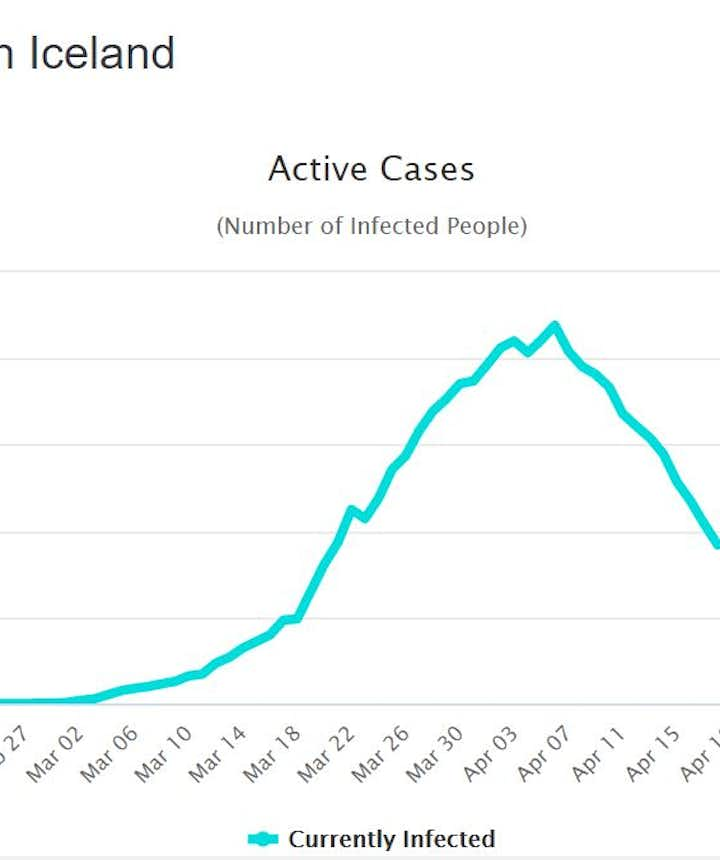
How Iceland Became Safe from the COVID-19 Coronavirus

Iceland Welcomes the World
How did covid-19 get to iceland.
- Iceland’s First Response
Quarantines, Lockdowns, and Restrictions
How iceland flattened the curve, how tourism companies survived, the second wave arrives, the first covid-19 vaccine is authorized, iceland reopens its borders, frequently asked questions by tourists about covid-19 in iceland, which countries are allowed to travel to iceland, which airlines are flying to iceland, is there a lockdown or a ban on public gatherings in iceland, is everything in iceland open.
Did COVID-19 reach Iceland, and is it safe to travel to Iceland now? Has everything re-opened, and is life back to normal? How did the government of Iceland respond, and do you have to quarantine? Read on to find out everything you want to know about traveling to Iceland now.
After a year of global pandemic restrictions, Iceland has announced that it will be opening its borders to all travelers who have been fully vaccinated or have completely recovered from the virus on March 26, 2021. It’s a monumental step toward the return of normalcy in global travel, but it did not come without months of precautions and a nationwide dedication to containing the spread of the COVID-19 virus.
Popular tours
Best ice cave tour in vatnajokull glacier starting from jokulsarlon glacier lagoon, inside the volcano thrihnukagigur tour with transfer from reykjavik, small group tour of snaefellsnes national park with transfer from reykjavik.
Now that you’re able to safely plan your trip to the beauty and wonder of Iceland be sure to check out our dedicated COVID-19 information page , which is updated daily and has the latest details about entering the country.
But before you do, read on to discover how a tiny island in the North Atlantic was able to remain open to travelers and control the spread of a pandemic that shut down the rest of the world.

The first case of COVID-19 in Iceland was discovered on February 28, 2020 . The patient was an Icelandic man in his 40s who had recently returned from a ski trip in the Andalo region of Northern Italy . He developed symptoms a week after his return before being quarantined at Landspitali hospital in Reykjavik. In response, the government officially declared an ‘Alert Phase.’ The virus had arrived in Iceland.
Iceland’s First Response

Aware of the COVID-19 situation developing abroad, the Icelandic government issued an ‘Uncertainty Phase’ on January 31, before the virus was even discovered in the country. This phase was an acknowledgment the virus would possibly make its way to the island, and Iceland began targeted testing for travelers returning from places deemed to be ‘High Risk.’
During this phase, few other countries were testing as many people as Iceland . Over six weeks, the country tested 50,000 people, over 13% of the total population. Every plane arriving from high-risk areas screened passengers, and they were immediately placed into quarantine until negative tests cleared them.
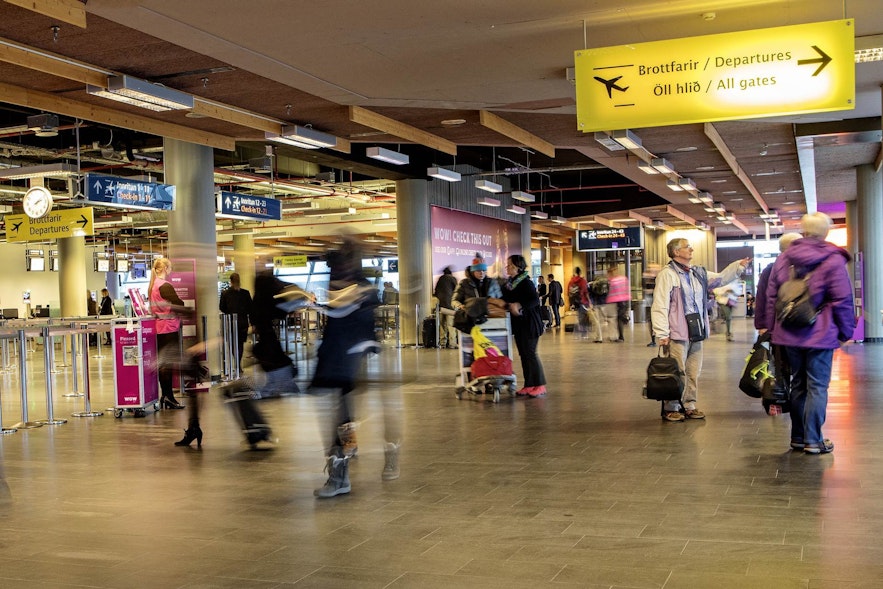
On March 1, testing confirmed two more cases of COVID-19. Both patients were in their 50s and had returned home to Iceland via Italy. Later, six more cases were diagnosed, and the list of ‘high-risk areas’ increased to include parts of Austria and Germany. The Icelandic government issued an official statement that detailed severe penalties for those who violated quarantine protocols, including three months' imprisonment.
Within a week, approximately 400 people were in home-quarantine, and healthcare workers had tested 330 people. The testing confirmed that 35 people had contracted the virus. The next day Iceland recorded the first four transmissions of the virus within the country. The first patient to be hospitalized happened three days later, on March 11, when the total number of infections had risen to 90.
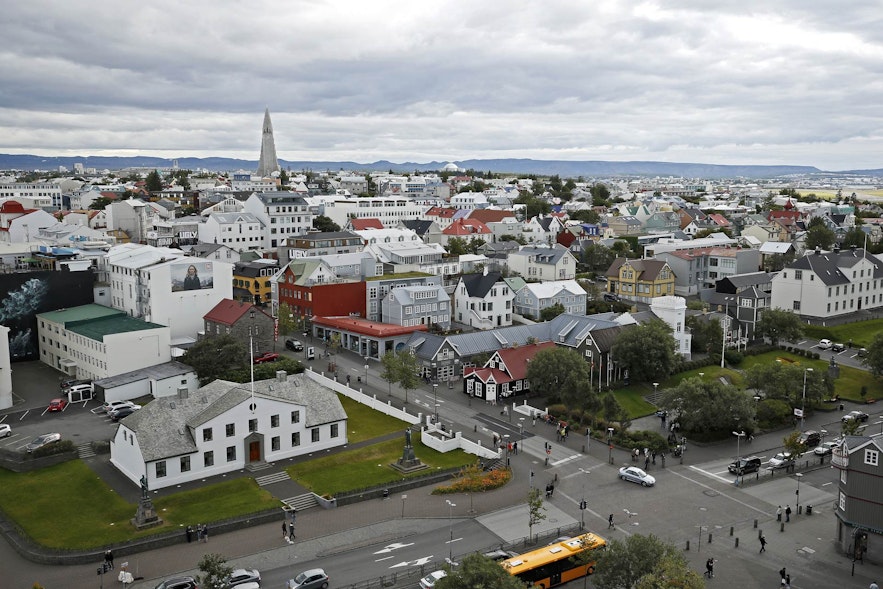
The government then called a press conference where representatives announced that schools and universities would close along with the beginning of a ban on gatherings of over 100 people.
By the time the public gathering ban went into effect, the Icelandic response to the pandemic had begun to focus on early detection, contact tracing, and social distancing.
By mid-March, the entire world had been declared a ‘high-risk area,’ and residents of Iceland were discouraged from traveling abroad unless absolutely necessary. The Icelandic government also encouraged Icelanders outside of the country to return home as soon as possible.
On March 24, a ban on public assembly of more than 20 people went into place at midnight. The new guidelines required any business that wasn’t able to keep a tight 2-meter distance between all people at all times to close.
Many businesses that could operate without face-to-face contact allowed employees to work from home, and almost overnight, the way locals went about their daily lives changed. Like in the rest of the world, airlines canceled flights, and the nation’s border authorities put strict quarantine procedures into place.
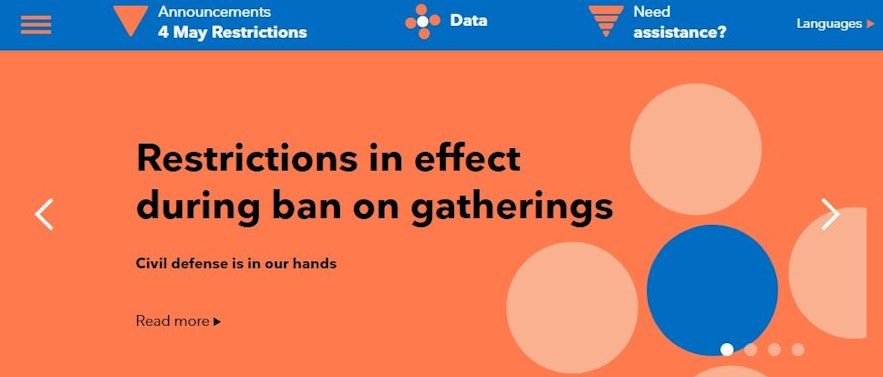
Iceland’s small population and community-minded spirit made social distancing incredibly manageable compared to larger nations. People simply adapted almost overnight to their new way of life.
There was a calm among the people in Iceland compared to news reports from around the globe. People arrived at the grocery store, maintained a social distance from everyone else as best they could, and patiently waited for a security guard to let them know when it was their turn to enter the store.
There were few complaints from people, and Icelanders simply accepted that these procedures were needed to slow the spread of the virus.
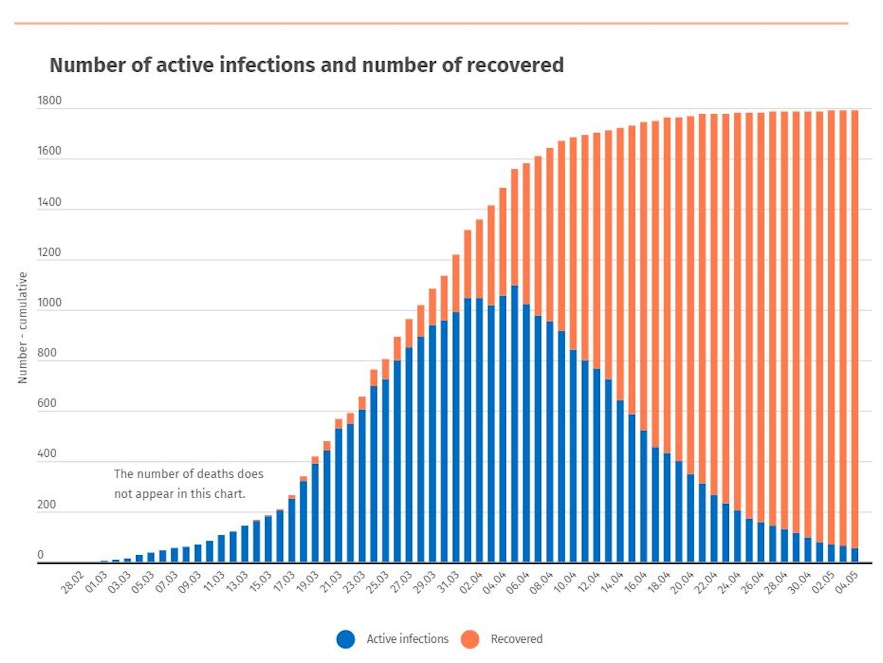
Iceland was one of the first countries in the world to begin flattening the curve. Flattening the curve of infection rate, preventing an overwhelming of the nation’s healthcare services, leading to fewer deaths. Flattening the curve meant that the pandemic would last longer, but the mortality rate would be much lower because hospitals could treat patients more effectively.
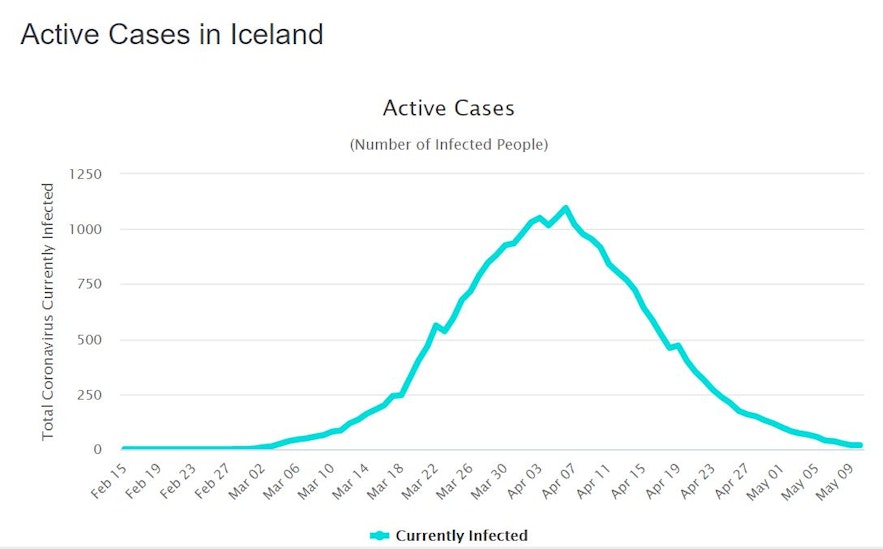
By the beginning of April 2020 , the Icelandic government had released the Rakning C-19 app for smartphones, which would trace its user’s movements. This app was one of the first in the world, and it enabled professionals to track possible infections of COVID-19 more effectively. Almost 40% of the population downloaded it within days of its release.
By mid-April, Decode Genetics was working tirelessly with the Icelandic government to provide free voluntary testing . Decode also collated their data into a study that helped show that most infections were being spread by ‘silent carriers,’ or those who showed no symptoms.
The testing results in Iceland helped the world understand the virus and how to slow the rate of infection to flatten the curve.
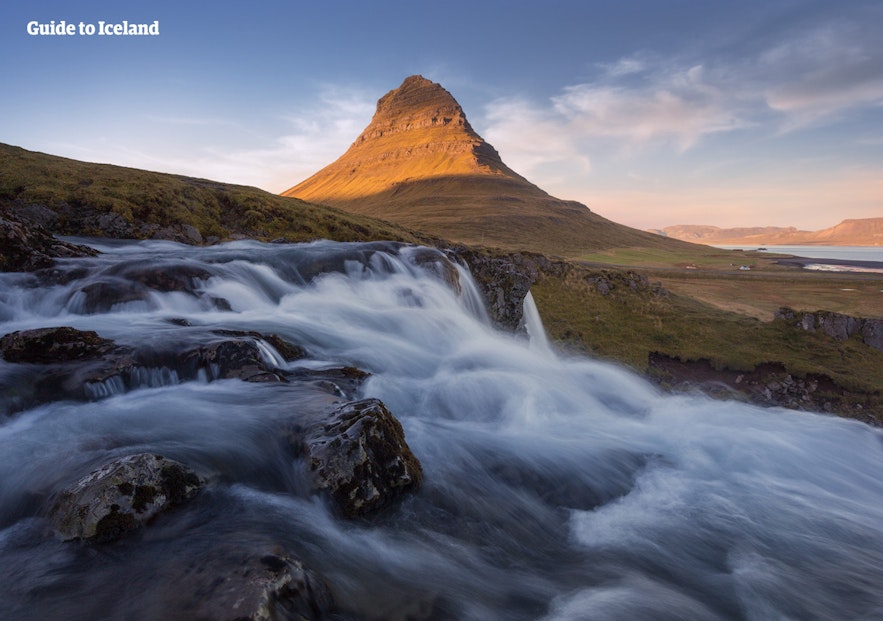
Although many countries closed their borders completely, Iceland never officially did. Even at the peak of infection, travelers from places outside the ‘High Risk’ areas could self-quarantine for 14 days on arrival and enter the country.
At the end of March 2020, the Icelandic government acknowledged that the tourism industry would suffer in response to travel bans worldwide. Parliament announced a $1.6 billion response package to ensure the survival of one of the most valuable sectors in the country.
A large part of this package ensured the wages of those who work in the tourism industry. The government allowed businesses to reduce staff hours to 25%, effectively cutting operational costs of tourism-based companies. The remaining 75% of wages were to be paid by the government so businesses could cope with the temporary loss of income.
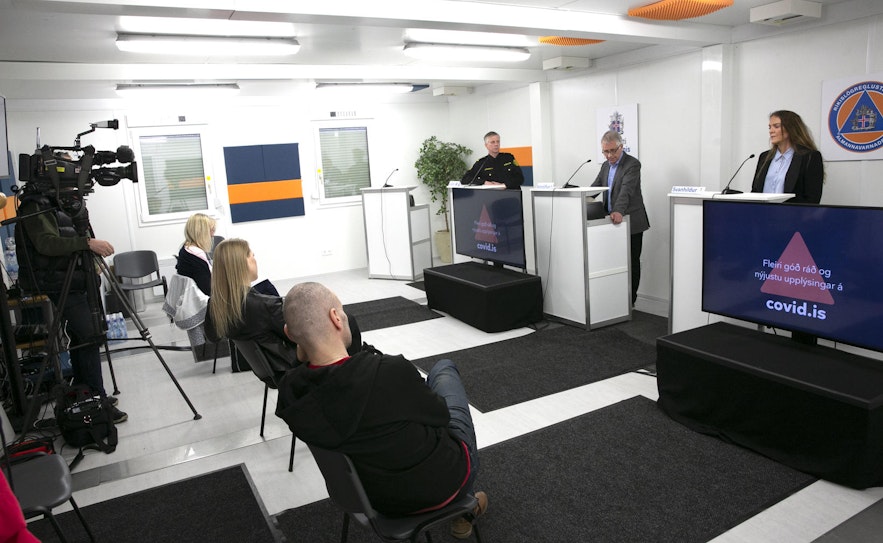
While the pause of this crucial industry meant some people lost their jobs, Iceland’s robust social welfare system afforded unemployment benefits to all permanent residents. Compared to larger nations, the quality of life for those affected by the business impact of COVID-19 was much better during this period.
Many Icelandic companies successfully transitioned their employees to working remotely during the heaviest restrictions on gatherings, allowing many jobs to continue during even the most stringent health guidelines.
The Icelandic government also applied measures to ensure travelers dealing with Icelandic tourism companies wouldn’t lose money. The tourism board insurance covered the small number of bankruptcies that happened.
Icelandair has been offering refunds to travelers who are unable to come to Iceland because of COVID-19 . Guide to Iceland likewise honored all refunds and rescheduling for trips that travelers had booked before the pandemic. Most people who were planning to visit Iceland simply opted to change their travel plans to a later date, a time that is fortunately now on the horizon.

Svandís Svavarsdóttir heilbrigðisráðherra Image Credit: Stjórnarráðið
As anticipated by scientists, a second wave of increasing COVID-19 infections began in August after a summer of low infection rates and mild social restrictions. Many of these infections were traced back to tourists who did not follow all the rules of quarantine.
The Icelandic health authorities immediately began implementing tighter restrictions in response to this second wave, ultimately limiting public gatherings to a maximum of 10 people and capping business hours and capacity usage for cultural events and health and fitness facilities. Likewise, border authorities tightened conditions for entry by implementing double-testing and quarantine.
These measures and nationwide compliance with the recommended health guidelines allowed the nation to quickly regain control of the spread of COVID-19, preventing numerous infection cases and deaths.
To the relief of the world, Pfizer-BioNTech filed for FDA approval for Emergency Use Authorization on November 20, 2020. They were the first pharmaceutical partnership to complete the Phase III clinical trials needed to provide the data proving their vaccine’s safety and efficacy.
Since this announcement, national health authorities have approved multiple vaccines for emergency use and are administering them worldwide. Iceland received its first vaccine shipment on December 28 and began vaccinating its residents on December 29. By the spring of 2021, the country had fully vaccinated almost all of its most vulnerable age groups and frontline healthcare workers and projects the rest of the population will have access to the vaccine by July.

As Iceland’s population worked diligently to control its infection rate during 2020 and the beginning of 2021, the government also put into effect a rigorous screening process at the border. Entry into the country in the second half of 2020 required a recent negative test obtained before departure, followed by a test at the border, a five-day quarantine, and then a second negative test result before visitors could travel freely within the country.
This procedure remains in effect for unvaccinated visitors. However, the Ministry of Health announced on March 16th that beginning on March 26, 2021 , travelers from all countries who are able to present certified proof of being fully vaccinated against COVID-19 or had already recovered from the virus and now have the necessary antibodies can now forgo this process.
As Iceland’s Chief Epidemiologist, Thórólfur Gudnason, explained, “When people are protected against the same disease, with the same vaccines that are produced by the same companies, there is no medical reason to discriminate on the basis of the location where the jab is administered.”
With this announcement, Iceland has made it clear that it is once again ready to welcome the world to one of the most incredible and safest places to visit. As the global population begins its recovery from a year lost to the pandemic, it can feel secure in making Iceland’s unique culture and stunning natural splendor the first stop on its new travels.
The time to explore the world safely and inexpensively is now, so start planning your trip to the Land of Fire and Ice today.
Below are some frequently asked questions about COVID-19 in Iceland and guidelines for those traveling here.
Image Credit: covid.is
On March 16, 2021, Iceland announced that it would lift restrictions on March 26 for visitors from all countries who could provide proof of complete vaccination or COVID-19 antibodies.
Travelers who are citizens of EEA/EFTA countries who have not been vaccinated or recovered from COVID-19 may still enter the country by submitting to the border’s dual-testing process, including a five-day quarantine between tests.
On May 1, 2021, the Icelandic border will begin applying the European Centre for Disease Control’s color-coded system to incoming visitors. Travelers arriving from European nations deemed “low-risk” and coded green or yellow will be able to forgo quarantine procedures by presenting a negative PCR test result.
Iceland’s flag carrier airline, Icelandair, has been consistently running flights throughout COVID-19 to and from destinations such as Amsterdam, Boston, Copenhagen, Paris, and London. Other airlines, such as Wizz Air, Lufthansa, EasyJet, and Air Baltic, have already started flying again or are planning to soon.
You can visit Keflavik International Airport's Airlines and Destinations page for the most current information on airlines and flights traveling to Iceland.
There is no lockdown in Iceland; however, there are limits on the number of people allowed to gather in public and at cultural events. Any gathering must happen in a place where people who are not related or closely connected can maintain a distance of at least 6.5 feet (2 meters). Face masks are obligatory when people cannot maintain this distance.
For the latest information on the public gathering limits, visit our page dedicated to daily COVID-19 updates to help you monitor the current guidelines of local health authorities.
Iceland has successfully managed to remain open to travelers throughout the pandemic with varying levels of preventative restrictions. On January 13, 2021 , the Icelandic health authorities began cautiously easing these COVID-19 guidelines in progressive phases, starting the process of returning society and business to normalcy.
In addition to the social-distancing protocols, local businesses, restaurants, accommodations, and tour operators continue to follow disinfection best practices to ensure that the public’s health and safety remain the top priority.
The Icelandic Ministry of Health is monitoring the infection rate while the vaccination process continues and will adjust the guidelines as needed.
Popular articles
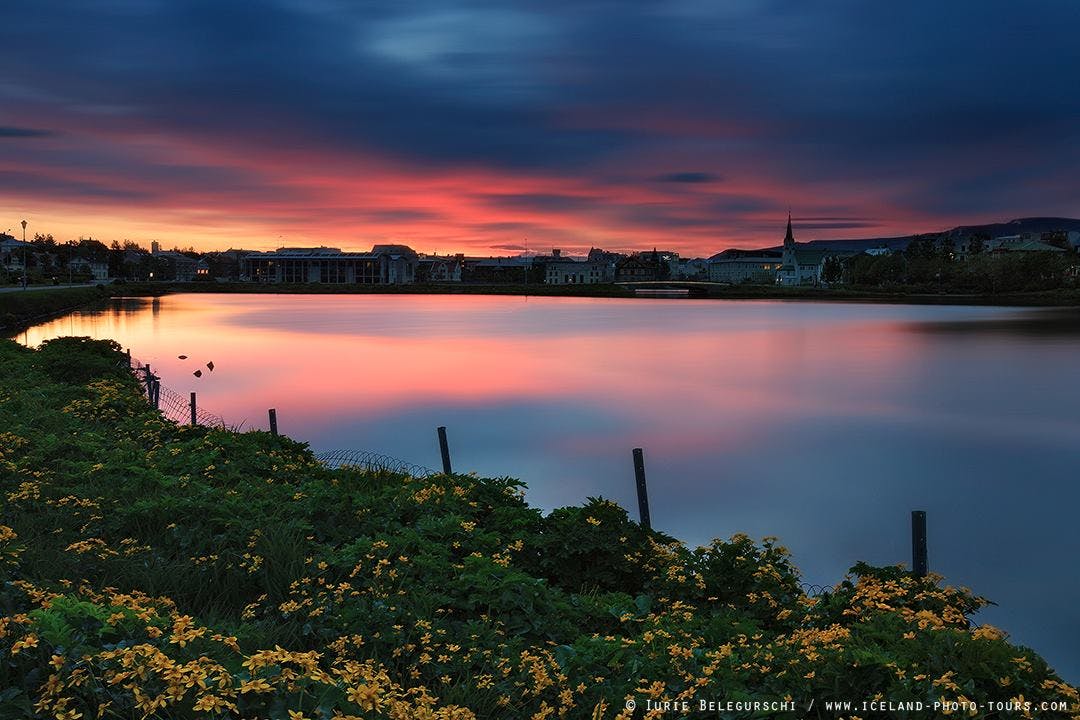
Guide to Iceland | The Story of the Leading Travel Agency of Iceland
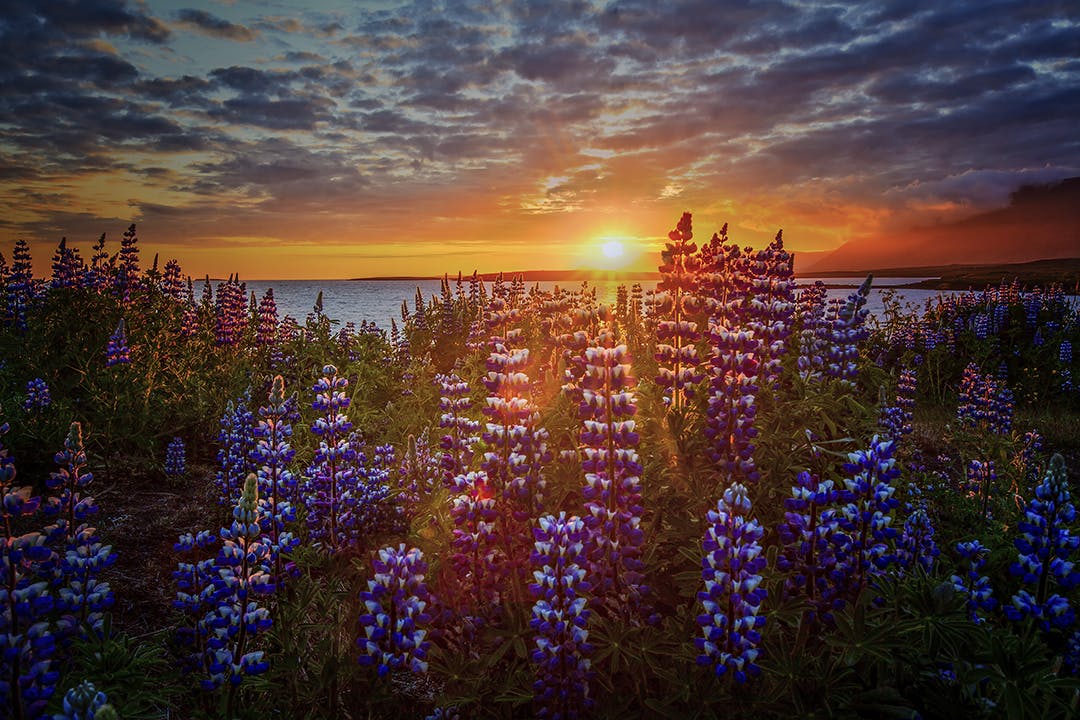
The Complete Guide to the Midnight Sun in Iceland
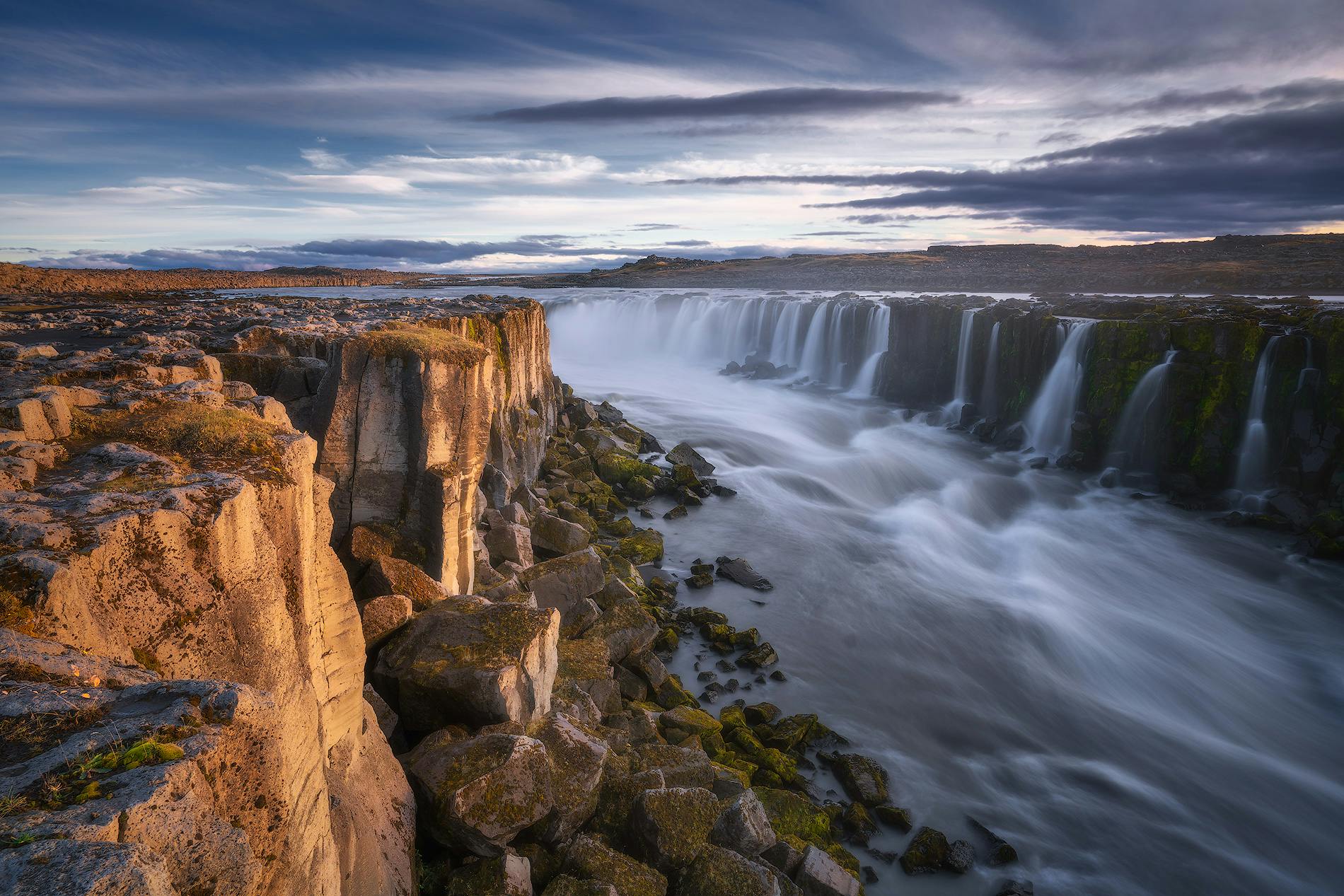
Top 20 Most Beautiful Waterfalls in Iceland
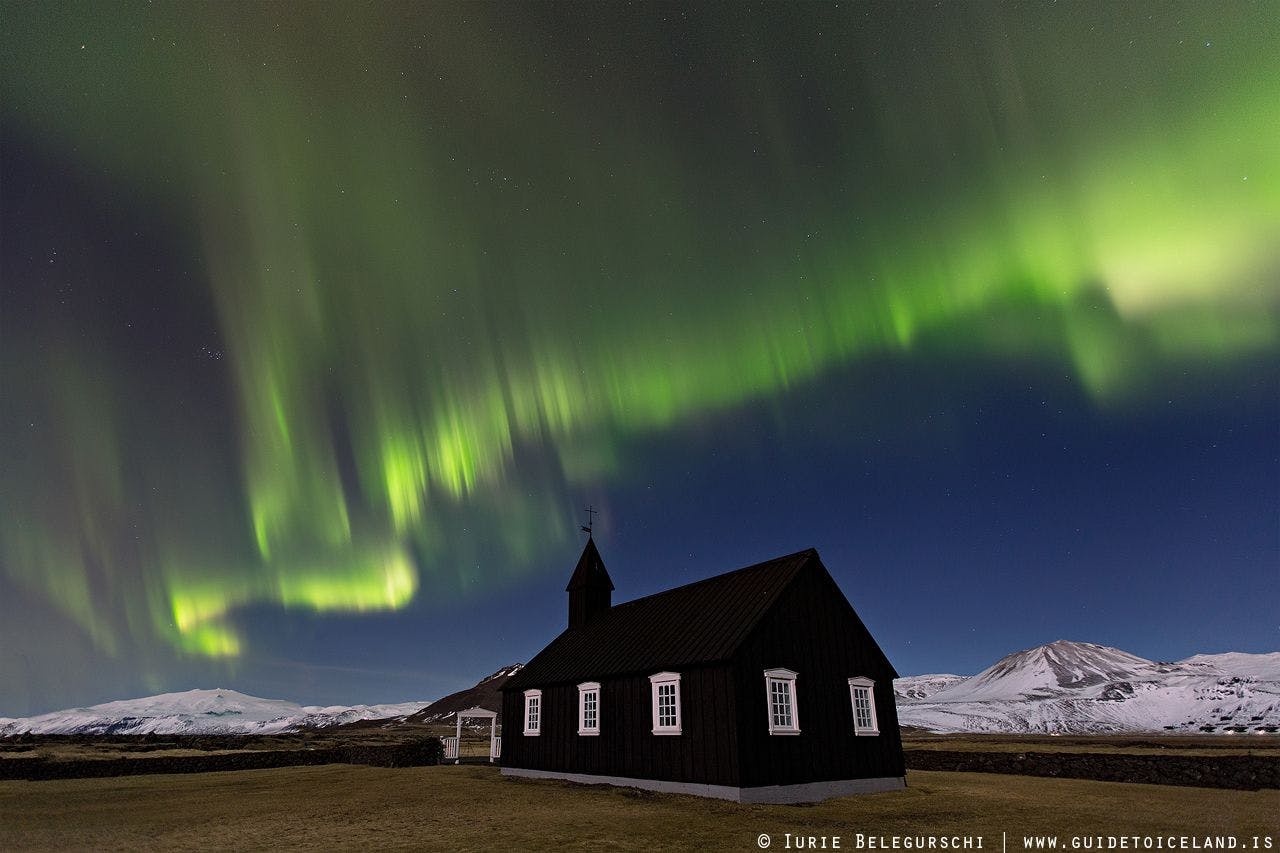
22 Photos of the Aurora in Iceland
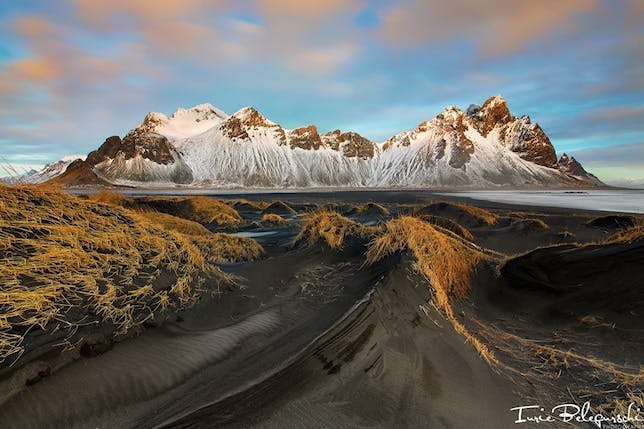
Mountains in Iceland
Other interesting articles.
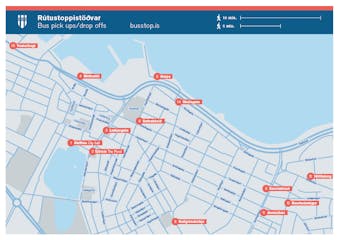
Tour Bus Stops & Pick-Up Locations in Reykjavik | All You Need to Know
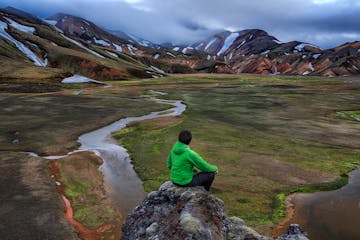
Is Iceland Overcrowded?
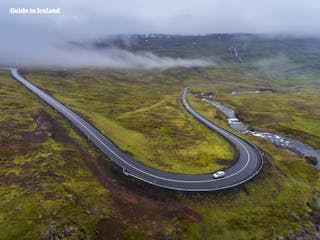
The Ultimate Guide to Transportion in Iceland
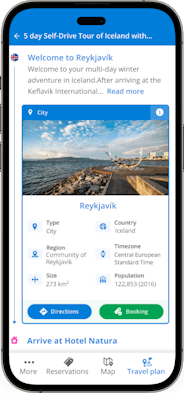
Download Iceland’s biggest travel marketplace to your phone to manage your entire trip in one place
Scan this QR code with your phone camera and press the link that appears to add Iceland’s biggest travel marketplace into your pocket. Enter your phone number or email address to receive an SMS or email with the download link.
Top things to do in Iceland
Book your complete trip with the best companies only
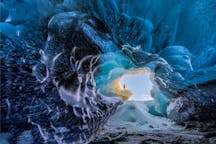
Explore an Ice Cave
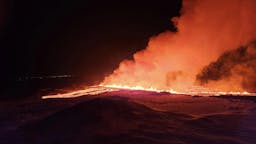
Visit a Live Volcano
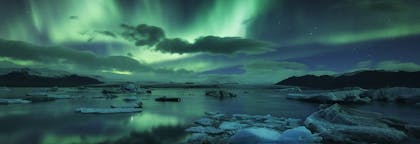
Find the Northern Lights
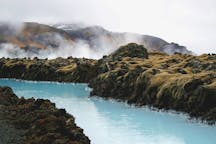
Visit the Blue Lagoon
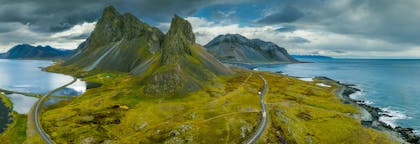
Go on a Road Trip
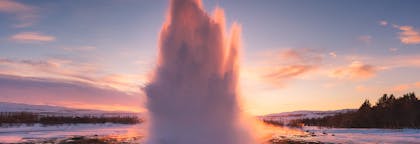
Do the Golden Circle
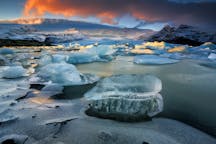
See the Glacier Lagoon

South Coast Tours
- English (EN)
- Español (ES)
- Português (BR)
Is Iceland Safe? Crime Rates & Safety Report
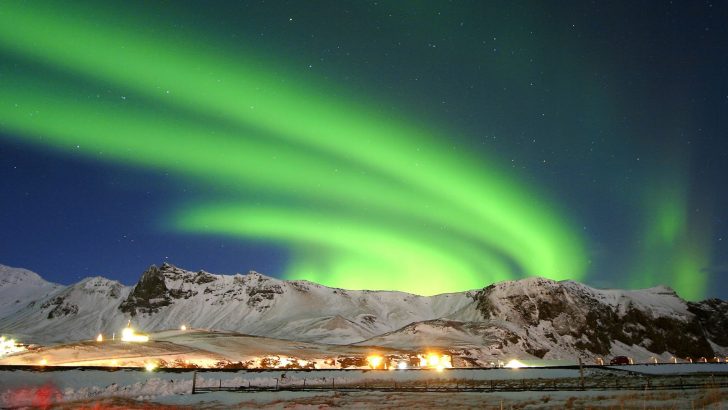
- Iceland : Safety by City
Iceland is a country in the North Atlantic Ocean, located between Europe and North America and as such, considered Nordic European.
Its name though, is a bit misleading, because although 10% of it is covered in glaciers, its climate is surprisingly mild and it boasts a number of geothermal hot-spots and hot springs.
Iceland’s unique landscape is not only gorgeous and, well, a bit unconventional year-round, it also allows for many different adventures: it flaunts a diverse marine life, you can actually go whale watching or ice climbing and if that’s not enough, it offers an exploring trip to magma chambers.
Another interesting fact about Iceland is that, because it is so close to the Arctic Circle, the amount of daylight varies, and sometimes the sun sets only for a couple of hours, and it doesn’t even get fully dark before it rises again!
Iceland is an immensely interesting country and very safe to visit.
- Warnings & Dangers in Iceland
OVERALL RISK: LOW
Iceland is a very safe country to visit. It is actually considered the safest country in the world, which still doesn't mean that you should completely relax: petty crime has recently been on the rise in the capital city, Reykjavik.
TRANSPORT & TAXIS RISK: LOW
Taxis and other means of transportation are very safe and reliable in Iceland.
PICKPOCKETS RISK: LOW
There is almost no pickpocketing in Iceland, it is a country that boasts extremely low crime rates. Avoid flashing your valuables in public, or leaving them in plain sight and you should encounter no problems.
NATURAL DISASTERS RISK: LOW
The biggest threats for tourists in Iceland actually lie in nature. The most important thing for tourists and visitors is to monitor local news for information on the weather (since it can change very quickly) and follow the advice of authorities as well as the signs you see on the road, or anywhere in nature.
MUGGING RISK: LOW
Mugging is uncommon in Iceland, and so is kidnapping. However, as in any country, it is recommended that you remain vigilant at all times. Be wary of people trying to distract you, as it might be a trick to try to steal from you.
TERRORISM RISK: LOW
There haven't been any terrorist attacks in Iceland's recent history. However, they shouldn't be ruled out, so remain aware of your surroundings at all times.
SCAMS RISK: LOW
Scams are also not common in this country, but you should use your common sense and double-check everything. Be wary of people offering you help with anything or giving you unsolicited advice or directions.
WOMEN TRAVELERS RISK: LOW
Iceland is very safe for women traveling solo, probably one of the safest countries for female travelers. Just follow the rules of common sense such as avoiding deserted and poorly lit streets and areas, and your trip should go smoothly.
- So... How Safe Is Iceland Really?
Iceland is considered to be one of the safest places in the world, so if there’s any tourist destination where you can relax, this is it, because there are very low chances that you will get mugged or robbed.
Crime rates are generally low, excluding Reykjavík where, recently, there have been reports of petty theft and night-time violence.
The greatest threats for tourists in Iceland are actually risks of natural disasters.
It is very important to do exactly what the signs in your nearest vicinity tell you to do.
So, follow the signs, and if there are no signs, follow your common sense.
There have been tourists getting hurt or even killed up in the mountains or on the sea usually after not following safety advice.
You should be careful when approaching glaciers, big waves or big waterfalls, and actually, avoid them unless you know what you’re doing.
You can also get caught up in a volcanic eruption, even though the chances of that happening are really low.
You should also be very careful when skiing as sudden weather shifts are very common in Iceland.
Since Reykjavik is a big party town and nightlife begins around 1 AM, clubs still being crowded at 4 AM, a violent altercation at night is always a possibility.
- How Does Iceland Compare?
- Useful Information
Many countries do not need a visa to enter Iceland, just make sure that your passport is valid during the duration of your stay: no additional validity is needed. Since Iceland is part of the Schengen Agreement, a Schengen visa is valid. However, if you are not sure about your visa status, visit www.doyouneedvisa.com which will let you know whether or not you need a visa based on your nationality and the country you want to visit.
Icelandic króna is the official currency in Iceland. ATMs are widely used and available, and credit cards are accepted and used throughout the country.
Iceland is gorgeous to visit year-round. Despite its name, the climate in Iceland is rather mild. Generally, the southern part of the country has a somewhat wetter and warmer climate than the north part, and the coldest part of Iceland is the Central Highlands.
Keflavík International Airport also known as Reykjavík–Keflavík Airport, is the largest airport in Iceland and located about 50 km southwest of Reykjavik.
Travel Insurance
Just like anywhere else, we recommend getting travel insurance when traveling to Iceland, since it covers not only medical problems but also theft and loss of valuables.
Iceland Weather Averages (Temperatures)
- Average High/Low Temperature
Iceland - Safety by City
Explore iceland.
- Are There Snakes in Iceland? Should You Be Worried?
- 10 Most Dangerous Locations in Iceland
- 8 Best Zoos & Aquariums in Iceland
- 2 Most Beautiful Castless in Iceland
- Are There Sharks in Iceland?
- 10 Safest Cities in Iceland
- 16 Pros and Cons of Living in Iceland
- Best Campsites in Iceland
- Iceland Hiking: Guide + Best Routes
- Where to Next?
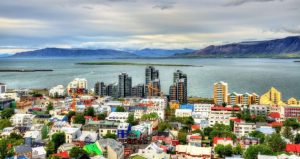
28 Reviews on Iceland
Safest country.
Iceland I Would Go To
Lived in Hofn and Keflavik a long time ago (1976-1977) as a USAF military member. Icelandics are not the friendliest people I have ever met but they are professional and usually tolerant of annoyances like tourists. The hot dogs were out of this world. The women were quite beautiful. The biggest problem at the time there was the negative publicity the US, in particular, received. The second biggest problem was the Icelandic police. They were the gestapo and spared no opportunity to search your person, handbag or jacket.
there are no such thing as iceland police or iceland military
iceland has police and milltary
Not true again.
Yes there is police in iceland but they don’t hold guns and THERE IS NO MILITARY IN ICELAND
There is US military presence in Iceland
The U.S. Military holds a presence in Iceland, including air force.
no there isnt
Good Place?
I think Iceland is safe
Definitely! I lived here my entire life, an awesome place and kind people overall.
Not safe Iceland one day they shoot a person
Hi Leah, this is completely taken out of proportion. In 2017, Iceland investigated its first (!) potential abduction/murder case. Domestic violence (e.g., within the family) can be found in the safest countries. But this does not affect anybody traveling there as a tourist. The only thing killing you in Iceland: prices for food and hotels.
That’s true but it is safer than usa
I have lived in Iceland for 15 years, and let me say, IT IS FILLED WITH GANGS!! All reviews are faked, please cancel your plans IMETDALLY!!!!!!!
Thanks for your tip. I suspect every tourist who has ever visited Iceland has been bribed and sworn to secrecy about the gangs which is why we don’t hear about them.
why would gangs care about what people thought of Iceland?
Iceland is safe
It’s much safer than most countries, I think because it’s a relatively small island (smaller than the U.S. for example), it gets a sort of local charm you just don’t find in most places. I believe you are safer traveling in tourist areas and shopping malls more than in quiet streets at night, but still, overall, very safe.
its the safest country
it is safe because it’s homogenous. multiculturalism never work unless they are integrated (melting pot)
You have no idea what you are talking about. All the Nordics are diversifying. When you have true pride in your culture, you are not threatened by others.
Safe and a pleasure to visit
Iceland was voted one of the safest countries in the world for a reason. We’ve encountered zero issues during our one month stay there. Icelanders seem to be friendly by default, they’re always happy to answer questions.
Great food, friendly hotel staff etc.
Something else entirely - Iceland is amazing!
Iceland is probably one of the safer countries out there. There’s no comparison to the US for example. None whatsoever when it comes to safety. People here generally mind their own business, they might not be the friendliest people out there but they are ok in my book. You won’t hear of pickpockets or any of the things you normally hear in most developed countries and cities. This place is safe. As for the things you can visit and explore, well there are plenty of those here.
One of the things you must absolutely experience is the geothermal spas found near Reykjavik. The water goes up to 39 degrees Celsius and is great for your skin and overall health. Get a mask (of mud) on and just sit in the warm water and you’ll probably feel 10 years younger afterwards. Then you can go to the Strokkur Geysir which is one of more known geysers in Iceland in the world. It shoots water up to 29-30 meters in the air at regular intervals, usually just a few minutes apart.
You can’t come to Iceland and not see the Aurora Borealis. This is such a spectacular sight, like nothing else you’ve seen for sure. These lights are not predictable so you will need to be on the lookout for them. Hotels around the area will try to help out by predicting when they can be seen. You can also take a tour to the countryside and have a better chance at experiencing the Northern Lights in their full splendor.
If you are more adventurous try to do some hiking in Landmannalaugar Nature Reserve. You will love it! There’s also the Skaftafell Ice Cave (covered in blue light), Askja Caldera (a huge geothermal pool in the middle of a live volcano) or the Gullfoss Waterfall (a spectacular waterfall where you’ll have to be careful not to get too close and fall over).
Iceland is amazing...
I originally only went to Iceland because it was a dream of my daughter’s to go. I was so pleasantly surprised by the super warm, kind hearted nature of the locals. Our car broke down, and we had several people help us until we were back on the road. Iceland is a stunningly beautiful country, full of natural wonders to see. T he calm, kind and trusting people of this country make it my all time favourite country to visit. This was a suprise to both my daughter and I… I will go again as soon as I can… Brilliant!?
New york new york!!!!!!!
Soooo dangerous got robbed 20 times in 2 days New york is soooo much safer and its best state ever every state is bad compared to New york
this is Iceland not america
recently volcano eruption, and earthquake in Iceland 🧐🧐🧐, so cautious visit necessary
I’m confused is this country as safe as people say it is or not? I don’t mind going to iceland. I’ve been thinking about moving there.
Safest Country been there too
It’s safe people are liars police don’t even have guns
Share Your Experience Cancel reply
Your Review
Title of your review
Article Contents
- Overall Risk
- Transport & Taxis Risk
- Pickpockets Risk
- Natural Disasters Risk
- Mugging Risk
- Terrorism Risk
- Women Travelers Risk
- Weather Averages (Temperatures)
- User Reviews
- Share Your Experience
Popular Destinations

Safety Index
Recent reviews & comments.
- Carlo Jones on Snellville
- Erwin Cole on Kalamazoo
- Anthony Jackson on Kalamazoo
- Toby York on Kalamazoo
- Jackie Hughes on Council Grove
Popular US States
- Pennsylvania
You are using an outdated browser. Upgrade your browser today or install Google Chrome Frame to better experience this site.
Iceland Traveler View
Travel health notices, vaccines and medicines, non-vaccine-preventable diseases, stay healthy and safe.
- Packing List
After Your Trip
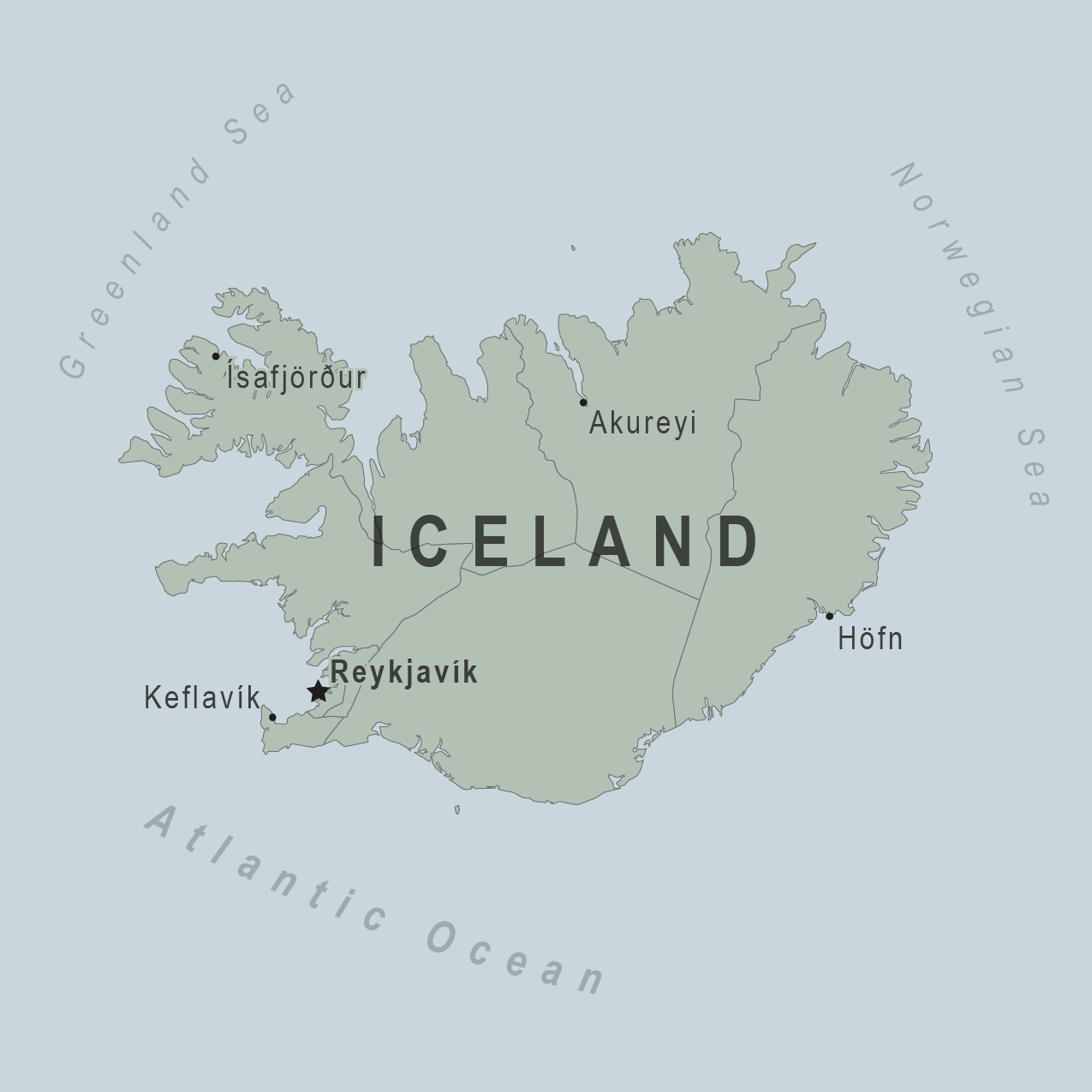
There are no notices currently in effect for Iceland.
⇧ Top
Check the vaccines and medicines list and visit your doctor at least a month before your trip to get vaccines or medicines you may need. If you or your doctor need help finding a location that provides certain vaccines or medicines, visit the Find a Clinic page.
Routine vaccines
Recommendations.
Make sure you are up-to-date on all routine vaccines before every trip. Some of these vaccines include
- Chickenpox (Varicella)
- Diphtheria-Tetanus-Pertussis
- Flu (influenza)
- Measles-Mumps-Rubella (MMR)
Immunization schedules
All eligible travelers should be up to date with their COVID-19 vaccines. Please see Your COVID-19 Vaccination for more information.
COVID-19 vaccine
Hepatitis A
Consider hepatitis A vaccination for most travelers. It is recommended for travelers who will be doing higher risk activities, such as visiting smaller cities, villages, or rural areas where a traveler might get infected through food or water. It is recommended for travelers who plan on eating street food.
Hepatitis A - CDC Yellow Book
Dosing info - Hep A
Hepatitis B
Recommended for unvaccinated travelers of all ages traveling to Iceland.
Hepatitis B - CDC Yellow Book
Dosing info - Hep B
Cases of measles are on the rise worldwide. Travelers are at risk of measles if they have not been fully vaccinated at least two weeks prior to departure, or have not had measles in the past, and travel internationally to areas where measles is spreading.
All international travelers should be fully vaccinated against measles with the measles-mumps-rubella (MMR) vaccine, including an early dose for infants 6–11 months, according to CDC’s measles vaccination recommendations for international travel .
Measles (Rubeola) - CDC Yellow Book
Iceland is free of dog rabies. However, rabies may still be present in wildlife species, particularly bats. CDC recommends rabies vaccination before travel only for people working directly with wildlife. These people may include veterinarians, animal handlers, field biologists, or laboratory workers working with specimens from mammalian species.
Rabies - CDC Yellow Book
Avoid contaminated water
Leptospirosis
How most people get sick (most common modes of transmission)
- Touching urine or other body fluids from an animal infected with leptospirosis
- Swimming or wading in urine-contaminated fresh water, or contact with urine-contaminated mud
- Drinking water or eating food contaminated with animal urine
- Avoid contaminated water and soil
Clinical Guidance
Airborne & droplet.
- Breathing in air or accidentally eating food contaminated with the urine, droppings, or saliva of infected rodents
- Bite from an infected rodent
- Less commonly, being around someone sick with hantavirus (only occurs with Andes virus)
- Avoid rodents and areas where they live
- Avoid sick people
Tuberculosis (TB)
- Breathe in TB bacteria that is in the air from an infected and contagious person coughing, speaking, or singing.
Learn actions you can take to stay healthy and safe on your trip. Vaccines cannot protect you from many diseases in Iceland, so your behaviors are important.
Eat and drink safely
Food and water standards around the world vary based on the destination. Standards may also differ within a country and risk may change depending on activity type (e.g., hiking versus business trip). You can learn more about safe food and drink choices when traveling by accessing the resources below.
- Choose Safe Food and Drinks When Traveling
- Water Treatment Options When Hiking, Camping or Traveling
- Global Water, Sanitation and Hygiene | Healthy Water
- Avoid Contaminated Water During Travel
You can also visit the Department of State Country Information Pages for additional information about food and water safety.
Prevent bug bites
Although Iceland is an industrialized country, bug bites here can still spread diseases. Just as you would in the United States, try to avoid bug bites while spending time outside or in wooded areas.
What can I do to prevent bug bites?
- Cover exposed skin by wearing long-sleeved shirts, long pants, and hats.
- Use an appropriate insect repellent (see below).
- Consider using permethrin-treated clothing and gear if spending a lot of time outside. Do not use permethrin directly on skin.
What type of insect repellent should I use?
- FOR PROTECTION AGAINST TICKS AND MOSQUITOES: Use a repellent that contains 20% or more DEET for protection that lasts up to several hours.
- Picaridin (also known as KBR 3023, Bayrepel, and icaridin)
- Oil of lemon eucalyptus (OLE) or para-menthane-diol (PMD)
- 2-undecanone
- Always use insect repellent as directed.
What should I do if I am bitten by bugs?
- Avoid scratching bug bites, and apply hydrocortisone cream or calamine lotion to reduce the itching.
- Check your entire body for ticks after outdoor activity. Be sure to remove ticks properly.
What can I do to avoid bed bugs?
Although bed bugs do not carry disease, they are an annoyance. See our information page about avoiding bug bites for some easy tips to avoid them. For more information on bed bugs, see Bed Bugs .
For more detailed information on avoiding bug bites, see Avoid Bug Bites .
Stay safe outdoors
If your travel plans in Iceland include outdoor activities, take these steps to stay safe and healthy during your trip:
- Stay alert to changing weather conditions and adjust your plans if conditions become unsafe.
- Prepare for activities by wearing the right clothes and packing protective items, such as bug spray, sunscreen, and a basic first aid kit.
- Consider learning basic first aid and CPR before travel. Bring a travel health kit with items appropriate for your activities.
- If you are outside for many hours in the heat, eat salty snacks and drink water to stay hydrated and replace salt lost through sweating.
- Protect yourself from UV radiation : use sunscreen with an SPF of at least 15, wear protective clothing, and seek shade during the hottest time of day (10 a.m.–4 p.m.).
- Be especially careful during summer months and at high elevation. Because sunlight reflects off snow, sand, and water, sun exposure may be increased during activities like skiing, swimming, and sailing.
- Very cold temperatures can be dangerous. Dress in layers and cover heads, hands, and feet properly if you are visiting a cold location.
Stay safe around water
- Swim only in designated swimming areas. Obey lifeguards and warning flags on beaches.
- Do not dive into shallow water.
- Avoid swallowing water when swimming. Untreated water can carry germs that make you sick.
- Practice safe boating—follow all boating safety laws, do not drink alcohol if you are driving a boat, and always wear a life jacket.
Keep away from animals
Most animals avoid people, but they may attack if they feel threatened, are protecting their young or territory, or if they are injured or ill. Animal bites and scratches can lead to serious diseases such as rabies.
Follow these tips to protect yourself:
- Do not touch or feed any animals you do not know.
- Do not allow animals to lick open wounds, and do not get animal saliva in your eyes or mouth.
- Avoid rodents and their urine and feces.
- Traveling pets should be supervised closely and not allowed to come in contact with local animals.
- If you wake in a room with a bat, seek medical care immediately. Bat bites may be hard to see.
All animals can pose a threat, but be extra careful around dogs, bats, monkeys, sea animals such as jellyfish, and snakes. If you are bitten or scratched by an animal, immediately:
- Wash the wound with soap and clean water.
- Go to a doctor right away.
- Tell your doctor about your injury when you get back to the United States.
Reduce your exposure to germs
Follow these tips to avoid getting sick or spreading illness to others while traveling:
- Wash your hands often, especially before eating.
- If soap and water aren’t available, clean hands with hand sanitizer (containing at least 60% alcohol).
- Don’t touch your eyes, nose, or mouth. If you need to touch your face, make sure your hands are clean.
- Cover your mouth and nose with a tissue or your sleeve (not your hands) when coughing or sneezing.
- Try to avoid contact with people who are sick.
- If you are sick, stay home or in your hotel room, unless you need medical care.
Avoid sharing body fluids
Diseases can be spread through body fluids, such as saliva, blood, vomit, and semen.
Protect yourself:
- Use latex condoms correctly.
- Do not inject drugs.
- Limit alcohol consumption. People take more risks when intoxicated.
- Do not share needles or any devices that can break the skin. That includes needles for tattoos, piercings, and acupuncture.
- If you receive medical or dental care, make sure the equipment is disinfected or sanitized.
Know how to get medical care while traveling
Plan for how you will get health care during your trip, should the need arise:
- Carry a list of local doctors and hospitals at your destination.
- Review your health insurance plan to determine what medical services it would cover during your trip. Consider purchasing travel health and medical evacuation insurance for things your regular insurance will not cover.
- Carry a card that identifies, in the local language, your blood type, chronic conditions or serious allergies, and the generic names of any medicines you take.
- Bring copies of your prescriptions for medicine and for eye glasses and contact lenses.
- Some prescription drugs may be illegal in other countries. Call Iceland’s embassy to verify that all of your prescription(s) are legal to bring with you.
- Bring all the medicines (including over-the-counter medicines) you think you might need during your trip, including extra in case of travel delays. Ask your doctor to help you get prescriptions filled early if you need to.
Many foreign hospitals and clinics are accredited by the Joint Commission International. A list of accredited facilities is available at their website ( www.jointcommissioninternational.org ).
Select safe transportation
Motor vehicle crashes are the #1 killer of healthy US citizens in foreign countries.
Be smart when you are traveling on foot.
- Use sidewalks and marked crosswalks.
- Pay attention to the traffic around you, especially in crowded areas.
- Remember, people on foot do not always have the right of way in other countries.
Riding/Driving
Choose a safe vehicle.
- Choose official taxis or public transportation, such as trains and buses.
- Make sure there are seatbelts.
- Avoid overcrowded, overloaded, top-heavy buses and minivans.
- Avoid riding on motorcycles or motorbikes, especially motorbike taxis. (Many crashes are caused by inexperienced motorbike drivers.)
- Choose newer vehicles—they may have more safety features, such as airbags, and be more reliable.
- Choose larger vehicles, which may provide more protection in crashes.
Think about the driver.
- Do not drive after drinking alcohol or ride with someone who has been drinking.
- Consider hiring a licensed, trained driver familiar with the area.
- Arrange payment before departing.
Follow basic safety tips.
- Wear a seatbelt at all times.
- Sit in the back seat of cars and taxis.
- When on motorbikes or bicycles, always wear a helmet. (Bring a helmet from home, if needed.)
- Do not use a cell phone or text while driving (illegal in many countries).
- Travel during daylight hours only, especially in rural areas.
- If you choose to drive a vehicle in Iceland, learn the local traffic laws and have the proper paperwork.
- Get any driving permits and insurance you may need. Get an International Driving Permit (IDP). Carry the IDP and a US-issued driver's license at all times.
- Check with your auto insurance policy's international coverage, and get more coverage if needed. Make sure you have liability insurance.
- Avoid using local, unscheduled aircraft.
- If possible, fly on larger planes (more than 30 seats); larger airplanes are more likely to have regular safety inspections.
- Try to schedule flights during daylight hours and in good weather.
Helpful Resources
Road Safety Overseas (Information from the US Department of State): Includes tips on driving in other countries, International Driving Permits, auto insurance, and other resources.
The Association for International Road Travel has country-specific Road Travel Reports available for most countries for a minimal fee.

Maintain personal security
Use the same common sense traveling overseas that you would at home, and always stay alert and aware of your surroundings.
Before you leave
- Research your destination(s), including local laws, customs, and culture.
- Monitor travel advisories and alerts and read travel tips from the US Department of State.
- Enroll in the Smart Traveler Enrollment Program (STEP) .
- Leave a copy of your itinerary, contact information, credit cards, and passport with someone at home.
- Pack as light as possible, and leave at home any item you could not replace.
While at your destination(s)
- Carry contact information for the nearest US embassy or consulate .
- Carry a photocopy of your passport and entry stamp; leave the actual passport securely in your hotel.
- Follow all local laws and social customs.
- Do not wear expensive clothing or jewelry.
- Always keep hotel doors locked, and store valuables in secure areas.
- If possible, choose hotel rooms between the 2nd and 6th floors.
Healthy Travel Packing List
Use the Healthy Travel Packing List for Iceland for a list of health-related items to consider packing for your trip. Talk to your doctor about which items are most important for you.
Why does CDC recommend packing these health-related items?
It’s best to be prepared to prevent and treat common illnesses and injuries. Some supplies and medicines may be difficult to find at your destination, may have different names, or may have different ingredients than what you normally use.
If you are not feeling well after your trip, you may need to see a doctor. If you need help finding a travel medicine specialist, see Find a Clinic . Be sure to tell your doctor about your travel, including where you went and what you did on your trip. Also tell your doctor if you were bitten or scratched by an animal while traveling.
For more information on what to do if you are sick after your trip, see Getting Sick after Travel .
Map Disclaimer - The boundaries and names shown and the designations used on maps do not imply the expression of any opinion whatsoever on the part of the Centers for Disease Control and Prevention concerning the legal status of any country, territory, city or area or of its authorities, or concerning the delimitation of its frontiers or boundaries. Approximate border lines for which there may not yet be full agreement are generally marked.
Other Destinations
If you need help finding travel information:
Message & data rates may apply. CDC Privacy Policy
File Formats Help:
- Adobe PDF file
- Microsoft PowerPoint file
- Microsoft Word file
- Microsoft Excel file
- Audio/Video file
- Apple Quicktime file
- RealPlayer file
- Zip Archive file
Exit Notification / Disclaimer Policy
- The Centers for Disease Control and Prevention (CDC) cannot attest to the accuracy of a non-federal website.
- Linking to a non-federal website does not constitute an endorsement by CDC or any of its employees of the sponsors or the information and products presented on the website.
- You will be subject to the destination website's privacy policy when you follow the link.
- CDC is not responsible for Section 508 compliance (accessibility) on other federal or private website.
- Meet the Team
- Work with Us
- Czech Republic
- Netherlands
- Switzerland
- Scandinavia
- Philippines
- South Korea
- New Zealand
- South Africa
- Budget Travel
- Work & Travel
- The Broke Backpacker Manifesto
- Travel Resources
- How to Travel on $10/day
Home » Europe » Travel Safety
Is Iceland Safe for Travel? (Insider Tips)
Hanging out in huge hot springs, hiking through fantasy landscapes to cascading waterfalls, seeing the actual Northern Lights, and even the chance to get a glimpse of some whales… Iceland is so many shades of awesome.
You’re probably coming here for nature. It’s actually the nature that’s the most dangerous thing about Iceland. Freezing conditions and unpredictable weather make everything from hiking to driving pretty dangerous. There also are volcanoes, too…
So we totally get it if you’re now asking, “Is Iceland safe?” We’re here with an epic guide to staying safe in Iceland so that you can travel around this incredible country with confidence. We’re all about smart travel – and we think you should be as well!
In our insider’s guide, we’ll be tackling everything from whether or not it’s safe to drive in Iceland to whether the food in Iceland is safe.
You may be concerned as a solo female traveller wondering if it’s alright to visit Iceland, or you may be wondering if it’s safe to visit Iceland right now. Whatever your worries, we’ve got travel tips for Iceland to help you have a safe (and awesome) time!

Unlock Our GREATEST Travel Secrets!
Sign up for our newsletter and get the best travel tips delivered right to your inbox.
How Safe is Iceland? (Our take)
Is iceland safe to visit (the facts.), is it safe to visit iceland right now, iceland travel insurance, 11 top safety tips for traveling to iceland, keeping your money safe in iceland, is iceland safe to travel alone, is iceland safe for solo female travellers, is iceland safe to travel for families, is it safe to drive in iceland, is uber safe in iceland, are taxis safe in iceland, is public transportation in iceland safe, is the food in iceland safe , can you drink the water in iceland, is iceland safe to live, how is healthcare in iceland, helpful iceland travel phrases, faq about staying safe in iceland, final thoughts on the safety of iceland.
With stuff to do for everyone from Game of Thrones fans to super keen hikers – and even the Northern Lights to marvel at – there’s just about a zillion reasons you would want to go to Iceland. It’s awesome! Wherever you stay in Iceland it’s awesome!
And thankfully, backpacking Iceland is really safe.
It’s one of the safest if not the safest country in the world. Crime is pretty much nothing here, especially for tourists.
Getting into difficulties when you’re in the great outdoors can be more dangerous than you think. The weather can change quickly. And because of that driving in Iceland can be hazardous.
There’s seismic activity here too. With a few earthquakes. And volcanoes erupting can (obviously) be an issue.
But generally, Iceland is super safe.
There is no such thing as a perfect safety guide, and this article is no different. The question of “Is Iceland Safe?” will ALWAYS have a different answer depending on the parties involved. But this article is written for savvy travellers from the perspective of savvy travellers.
The information present in this safety guide was accurate at the time of writing, however, the world is a changeable place, now more than ever. Between the pandemic, ever-worsening cultural division, and a click-hungry media, it can be hard to maintain what is truth and what is sensationalism.
Here, you will find safety knowledge and advice for travelling Iceland. It won’t be down to the wire cutting edge info on the most current events, but it is layered in the expertise of veteran travellers. If you use our guide, do your own research, and practise common sense, you will have a safe trip to Iceland.
If you see any outdated information in this guide, we would really appreciate it if you could reach out in the comments below. We strive to provide the most relevant travel information on the web and always appreciate input from our readers (nicely, please!). Otherwise, thanks for your ear and stay safe!
It’s a wild world out there. But it’s pretty damn special too. 🙂
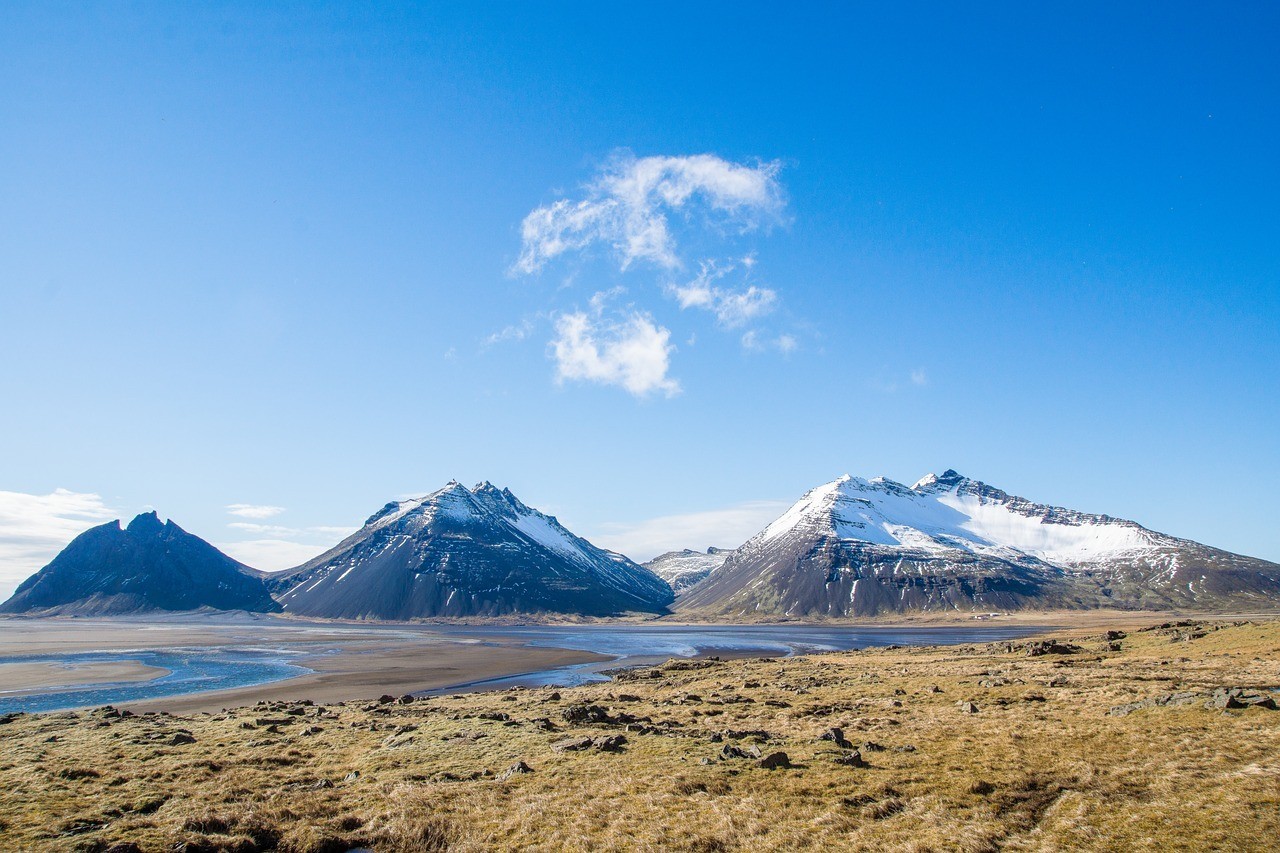
The Broke Backpacker is supported by you . Clicking through our links may earn us a small affiliate commission, and that's what allows us to keep producing free content 🙂 Learn more .
100%. Iceland really is safe to visit.
Naturally, it’s a super popular place to visit and tourism is increasing. The number of visitors in 2017 was over 2 million. That’s more than six times the population of Iceland!
Things can go wrong because people don’t know the extremities of the environment.
The crazy thing about Iceland is that according to the Global Peace Index it’s the most peaceful country on the planet . A title its held for over ten years!
Crime is very low. To give you an example: the first time ever that someone died due to an armed police response was in 2013.
The homicide rate is ultra-low. In 2016 there was 1 murder in the whole country.
Three tourists died in 2018 when their car crashed over the side of a bridge. So like we said, driving can be dangerous.
But honestly, Iceland is safe to visit. Definitely.
Right now the main issue of travelling to Iceland isn’t other people but it’s nature itself.
And if you’re heading anywhere, nature is so volatile, it can never be 100% safe. Especially if you head out into that nature.
The landscape is harsh. Wide-open spaces and adverse weather. Even on a sunny day, the weather can change rapidly .
Floods and avalanches are a threat -, especially in the Highlands.
Exposure to extreme cold can mean hypothermia.
Volcanoes can and do pose a threat in Iceland. The 2010 eruption of Eyjafjallajökull literally grounded hundreds of flights all across Europe.
Not only is it inconvenient, but it can also be pretty bad for people with respiratory conditions.
Iceland is safe, but you’ve got to be careful with nature.
ALWAYS sort out your backpacker insurance before your trip. There’s plenty to choose from in that department, but a good place to start is Safety Wing .
They offer month-to-month payments, no lock-in contracts, and require absolutely no itineraries: that’s the exact kind of insurance long-term travellers and digital nomads need.

SafetyWing is cheap, easy, and admin-free: just sign up lickety-split so you can get back to it!
Click the button below to learn more about SafetyWing’s setup or read our insider review for the full tasty scoop.
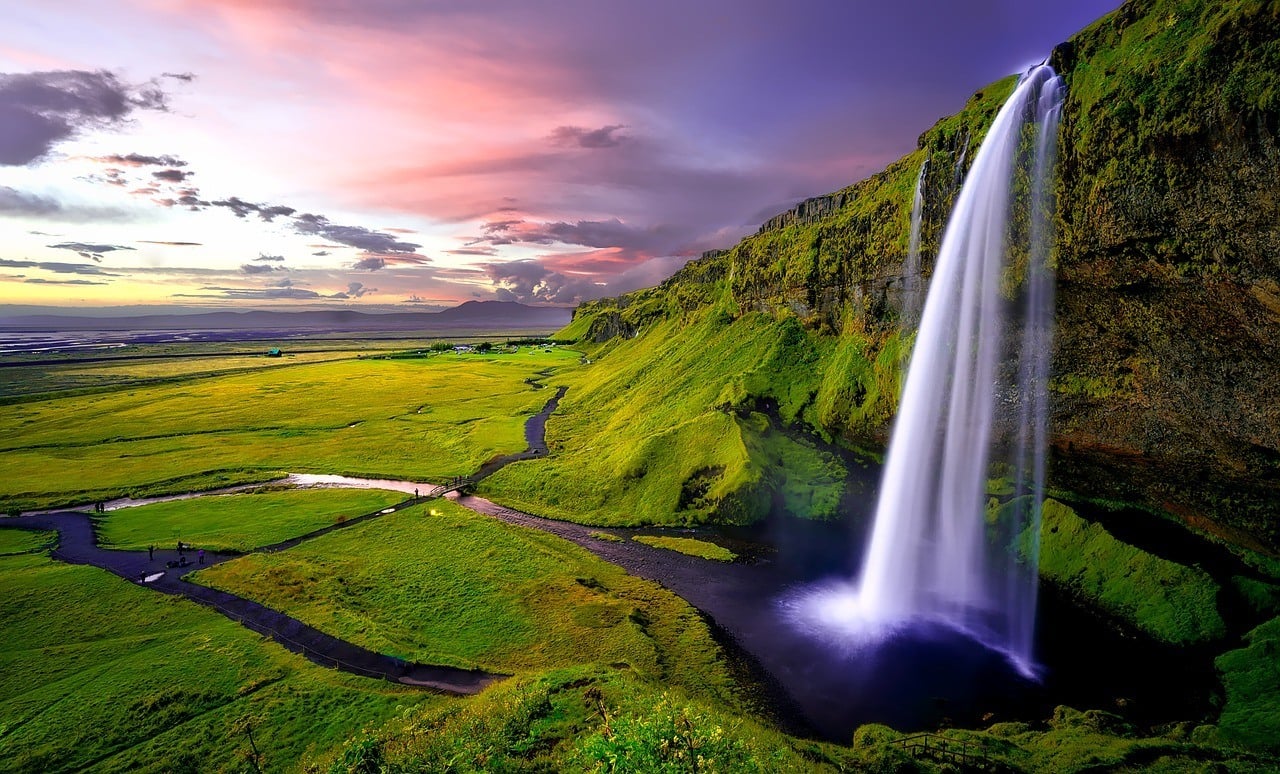
Iceland is mad safe. There’s virtually no crime that’s going to be affecting visitors anytime soon. But like we said nature is the thing you should be concerned about when you’re visiting Iceland. Being unprepared, or not knowing what you’re doing, is really going to cause problems when you’re in the midst of it all. So here are some pro tips for staying safe in Iceland to help you out…
- The weather can change super quickly – make sure you stay up to date with local weather reports.
- Download the 112 Iceland App – this can help you in case you need assistance (of any kind) when you’re travelling Iceland.
- Make sure you book accommodation ahead of time – in the summer months hotels in Iceland can be fully booked There’s a shortage.
- Choose trails that suit your ability – hiking routes can be a lot harder than you’re used to.
- Dress appropriately – we recommend layers. But definitely, research some properly good hiking gear – you’ll need it.
- Be prepared – GPS, maps, supplies, water… make sure you prepare for a worst-case scenario outside any urban area.
- Don’t go too close to cliff edges and hot springs – it’s a good way to lose your footing, fall and get seriously hurt.
- Don’t do drugs of any kind – possession can end up with a hefty fine or even imprisonment.
- Know where emergency huts are – do some research: you’ll find these in the wilderness.
- Make sure your car is prepared – with blankets, all-weather tyres, food, water – there’s often long stretches of road with no way to get help.
- Always ask locals for advice about hiking – there won’t be warning signs or fences to keep you away from volcanoes!
There aren’t a load of safety tips for Iceland. But the ones we’ve shared are the essential ones you should definitely know about. For everything else, it’s all about being prepared. Basically, walking out into nature without any clue of where you’re going, what areas are dangerous, or any knowledge of potentially bad weather is a good way to get into big trouble. Use your common sense and have an enjoyable time!
Iceland is a super safe place. But losing your money – for any reason whatsoever – is still super annoying. This can be down to a pickpocket of course, but it could also just down to you being forgetful.
It happens. But there’s a good way to keep your money safe in Iceland, one that’s a good way to keep your money safe anywhere in the world, and that is to use a travel money belt .

Simple, right? But what’s not so simple is the sheer amount of choice out there. You’ll find literally a ton of different money belts to choose from that it can make your head spin. The Pacsafe Money Belt is our best bet. It’s affordable, it looks and acts like a belt, and it’s sturdy – what more could you ask for out of a money belt!
Mainly we like this one because of how simple it is. It’s a belt with a secret bit for your cash that’s also sturdy and affordable.
When you’re out hiking in Iceland, the last thing you want is another contraption strapped across your chest with a million pockets. By using the Pacsafe Money Belt, you get a 2-in-1: an actual belt and a place to safely stash your cash. So if you forget your wallet, lose some money, or whatever, you’ll always have money to fall back on.
If you need a little more room for your passport and other travel valuables, have a look at a full-size money belt that tucks under your clothes instead.
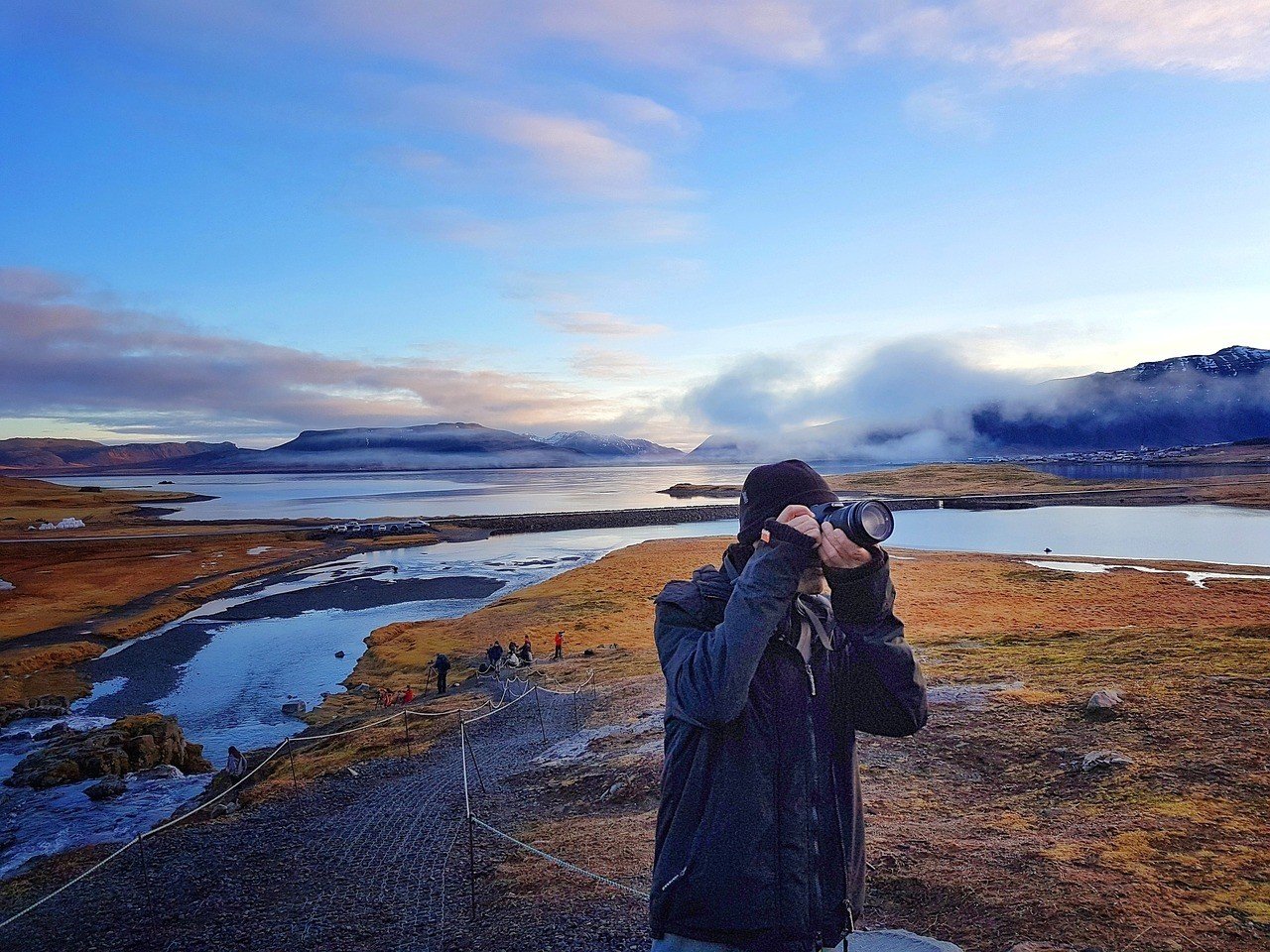
Iceland is definitely safe to travel alone. It’s the safest country in the world! But what you will have to watch out for is not pushing yourself. You won’t have a buddy to help you out if you get into trouble hiking. So knowing your limits is a good first step.
That said, solo travel is just awesome anyway. You can challenge yourself without embarking on some foolhardy hike that’s way out of your comfort zone, and you’ll reap the rewards. But to help you have the best time ever, here are some tips for solo travellers in Iceland .
- Tell people about your travel plans. Friends, relatives, whoever: just letting somebody know where you are and what you’re up to any given day is going to help if something bad happens. Going off the grid is never a good idea.
- And to make sure you actually have a place to stay, don’t just wing it. You’ll definitely have to book your accommodation in advance. That means having a pretty strict itinerary compared to other travel destinations.
- Speaking of which plan in advance. Not just where you’re going to stay, but what you’ll be doing. It will just save you a whole load of time that you probably don’t want to be spending sitting there in your hostel trawling the internet or intently studying your guidebook.
- Stash your money in different places. Pickpocketing may not be a threat but you losing your stuff is always going to be a risk! And it might also be a good idea to have an emergency credit card – you never know when you might be stuck for money.
- If you’re heading out hiking by yourself think about wearing distinctive clothing. A bright jacket, something patterned… Whatever it is, the more you stand out, the more you’ll be able to be identified if you get lost and/or need rescuing. Simple.
- Have emergency numbers saved into your phone just in case something goes wrong (hint: it’s 112).
- Chat with locals at your hostel or when you’re out and about. It’s a good way to get some tips about the safety of hiking trails and things like that, but also good places to eat!
- Keep copies of important documents like passports and bus tickets. You know, just in case they go missing.
- And if you’re heading out on a road trip or hiking by yourself, make you’re off the road well before the sun goes down . Being lost in the dark is not fun at all.
- With fun in mind, meet people! Traveling solo can get lonely, so it’s a good idea to book yourself into a social hostel where plenty of other backpackers stay. Read reviews and find the best place for you. Alternatively, head out to the bars of Reykjavik, get involved with an activity at your Icelandic hostel , or book yourself onto a tour (always a good way to meet likeminded travelers).
- If you go seriously off the trail, do consider bringing a Satelite Phone in case of an emergency.
Basically, Iceland is a really good place to go as a solo traveller. And it’s so safe that it’s probably a good place to go for your first-time solo travelling adventure. Making sure that you’re not just travelling around like a lone wolf is a good way to go, too. So get out there and meet some other people doing what you’re doing. It’s definitely going to make your epic trip to Iceland even more awesome!
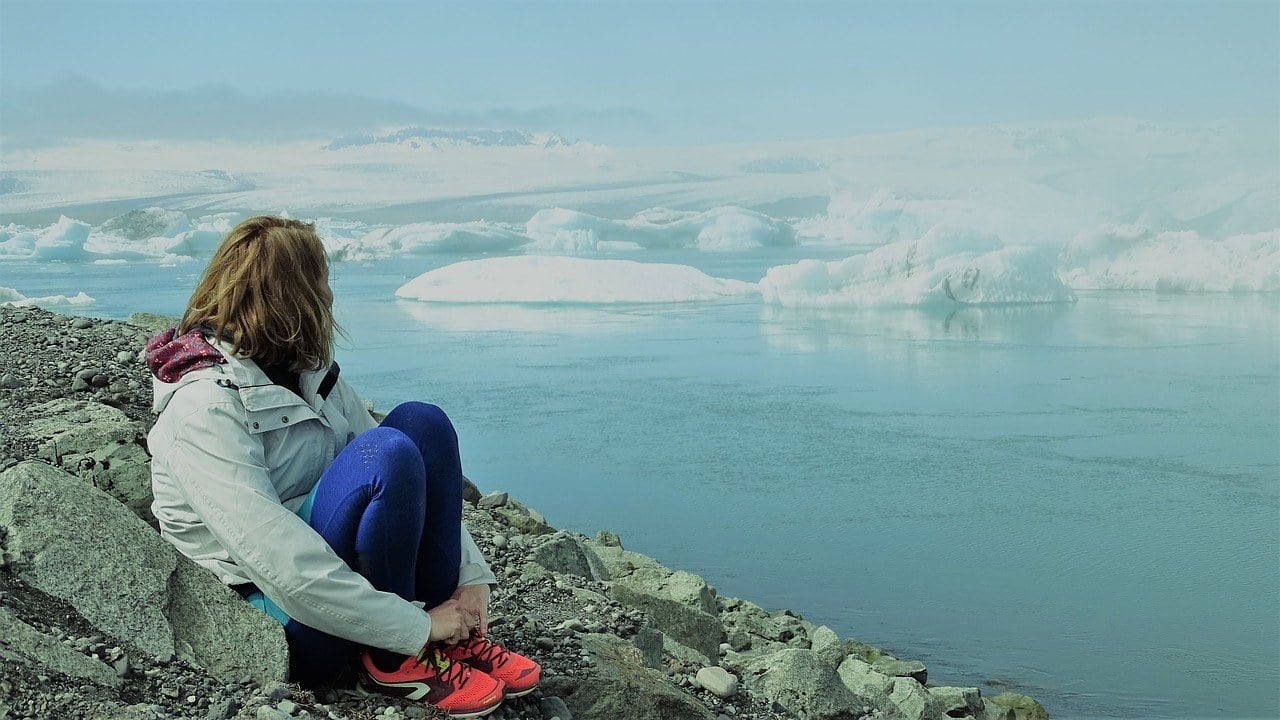
Given how safe Iceland is anyway, it’s the perfect place to go for a solo female traveller. There’s pretty much nothing stopping you from packing your bags and catching a flight to this amazing country.
Sexual harassment in Iceland is really not common. The most rowdiness you’re ever going to find is in Reykjavik when people are getting drunk in bars. You’ll probably get far less hassle than in your own country. Even so, here are our tips for solo female travellers!
- If someone does come up to you in a bar trying to chat you up – don’t worry. Politely declining will usually be enough to get someone away from you, if you’re not feeling comfortable. If someone is being too much, just ask the bar staff for help.
- And you don’t have to tell people you meet what you’re up to the whole time. Your marital status, or the exact location of your hostel, aren’t really appropriate topics of conversation that an Icelandic local should be bringing up.
- Don’t leave your drink unattended. It’s probably unlikely to happen in Iceland, but there are people with bad intentions all over the world. So it’s better to be safe than sorry.
- Hire a guide . Well, if you want. It can be daunting heading out into nature by yourself. So hiring a guide will ensure that you stay safe, stick to well-trodden trails, and will mean that you get to learn about the country you’re in from a local. But you should do your research and read reviews of guides – especially from other women.
- Make friends with other travellers. This is a good way to get rid of the solo travel blues , which can pop up when you’re travelling by yourself. Staying at a social hostel or finding some Facebook groups for female travellers are just two ways you can do this.
We told you Iceland was safe! Seriously, you’re really not likely at all to run into any trouble as a woman in Iceland. Local people are respectful and friendly and will be happy to help you out. No macho culture here – it’s a perfect first-time solo travel destination.
There’s loads of adventure to be had in Iceland, friendly people to meet, Viking history to learn about… And what’s more, it’s actually super easy to travel around as well. You won’t have to worry about sketchy bus terminals here. Everything’s just fine!
That said, you should probably still pay attention to your surroundings. Just because it’s super safe, doesn’t mean you’ll be immune to bad things happening. So trust your gut and use your common sense. However, we’re betting you’ll have an amazing trouble-free trip!
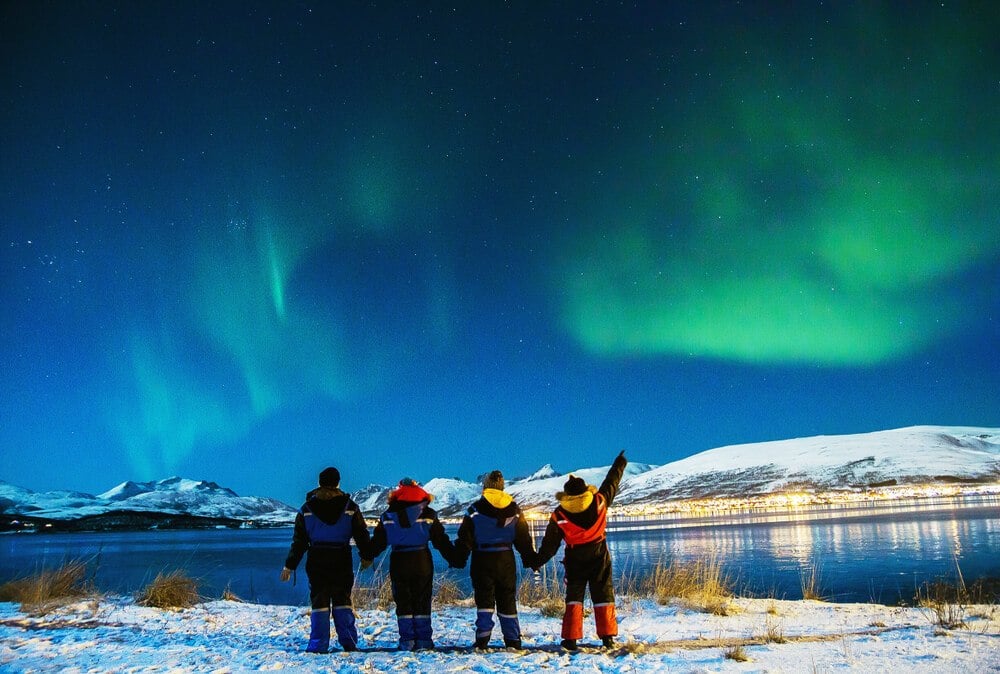
Iceland is most definitely safe to travel for families.
You can easily base yourselves in Reykjavik – along with half of Iceland’s population, too! It also has a load of swimming pools.
There’s lots of dramatic scenery to soak up. Glaciers, waterfalls, mountains… Your children are going to love seeing all this scenery, like something straight out a fantasy videogame!
Even things that you’d have to be careful of at home – like traffic and stranger danger – you won’t really have to worry about in any Icelandic urban area.
If you do want to travel around, the distances between hotspots can be very long, so make sure you plan your itinerary accordingly. To help you do this, grab yourself a Íslandskort barnanna – a map of all the family-friendly stuff you can get up to in Iceland.
Be also aware of the weather and landscape of this country and make sure you’re prepared. If you want to rent a car and go on a family road trip on the Ring Road, know that often there will be no one else on the road for miles around.
A good schedule and plenty of snacks for your kids are what you’ll have to plan for in Iceland.
But you can often get discounts for children at certain attractions, and on tours too. And that’s always a bonus. And children under 10 years old often get to stay for free at hotels. And that’s an added plus on what can be an expensive island.
You can also get things for young children, like nappies and formula, in most places. Restaurants also serve child portions. It’s all good.
Basically, it’s great. You and your family are going to love Iceland!
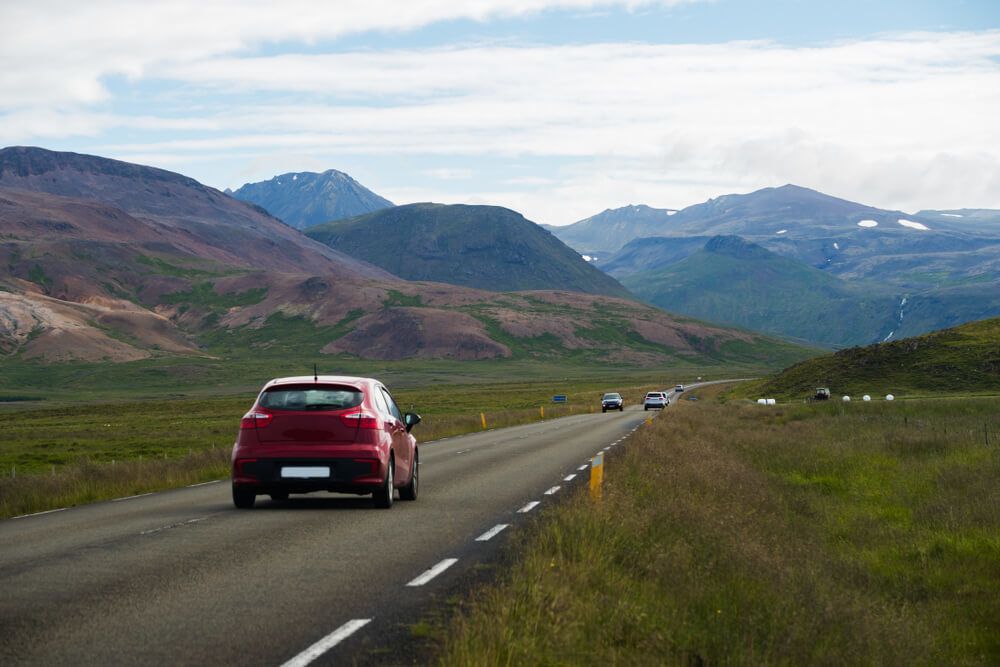
There’s a strong case for driving in Iceland. It’s home to some awesome road trips, like the Ring Road , and often it’s the only way to get to all the places you want to visit.
And vehicle hire can be super expensive. In the summer months, a two-wheeled drive is perfectly fine, but a lot of the time Iceland’s F roads will require a four-wheeled drive. And these are only open in the summer months anyway.
Also open only in the summer months are roads to the Highlands of Iceland. But you’ll still have to check with Icelandic Road Administration. If you visit Iceland in winter , all the roads can be frosty dark.
When you do hire a car, make sure you have the correct vehicle insurance . And you’ll need breakdown recovery – just in case – because you could end up stuck in a remote area.
There are super strong winds that whip up sand and ash storms, which can actually push your car over and damage it. Areas at risk of this are marked with orange warning signs.
Roads can be narrow and winding, so driving fast shouldn’t be an option. The surfaces can be uneven and gravelly and sometimes roads can be completely impassable – especially in the winter months. In fact, from November to April it’s mandatory to have winter tyres; headlights must be dipped at all times, too.
Watch out for a sign that says “Malbik Endar” – that means the road will soon change to gravel and you should slow down so that you don’t skid.
Also, add a pair of sunglasses to your Iceland packing list . A lot of the time the sun is low, which means that you’ll be practically blinded when you’re driving around.
That said, it’s safe to drive in Iceland. As long as you aren’t heading off-road, you shouldn’t have too much trouble at all.
If you’re not confident, you can always get yourself on a tour – or hire a driver.
There is no Uber in Iceland.
There are no taxi-hailing apps at all.
The law in Iceland is actually pretty strict on this.
So you’ll have to stick to taxis the old fashioned way.
Speaking of which…
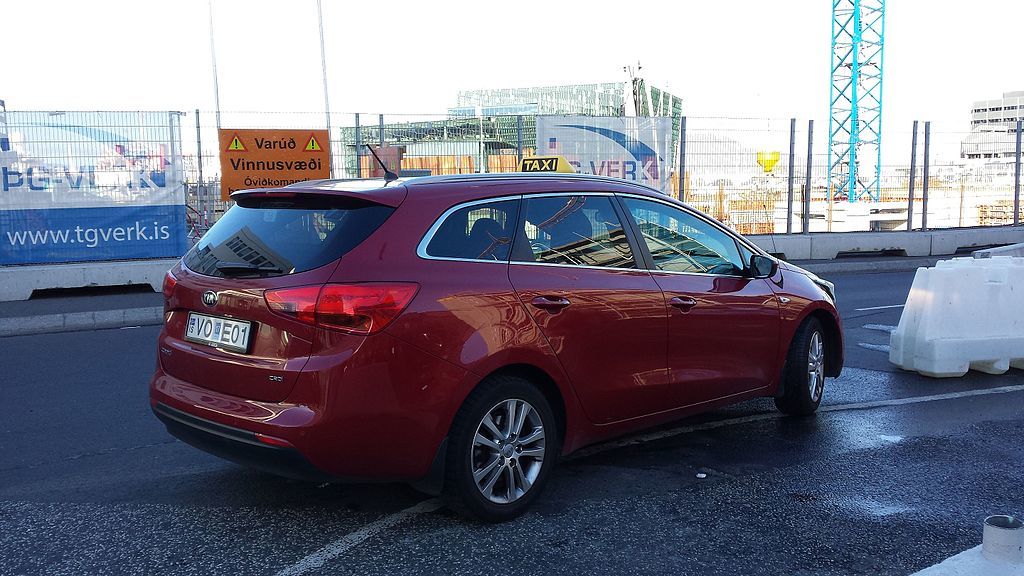
As you can imagine, taxis are safe in Iceland.
The only thing that isn’t safe about taxis in Iceland is their price. Your wallet won’t be safe at all!
You can get them in larger towns, but for the most part, you’ll find it easiest to find a taxi in Reykjavik.
There are a couple of taxi stands in downtown Reykjavik which idle around for people coming off tours, but they’re not always there.
And at the weekend when people are drinking, you’ll find a taxi line in town, too.
Usually, you don’t hail a taxi off the street, instead, you’ll have to call a company. There are two big companies for taxis on the island. And if you ask any local, they’ll know the number of one. Apparently, a strong advertising campaign has stuck it in everyone’s mind!
Taxis have a yellow sign. But in October they have pink signs (for breast cancer awareness!). They look like taxis.
They run by the meter, however, airport taxis have set prices.
All in all, taxis in Iceland are safe. You won’t have to worry about getting scammed or negotiating prices. The drivers like meeting people and having a chat.
Also, they speak English. Of course.
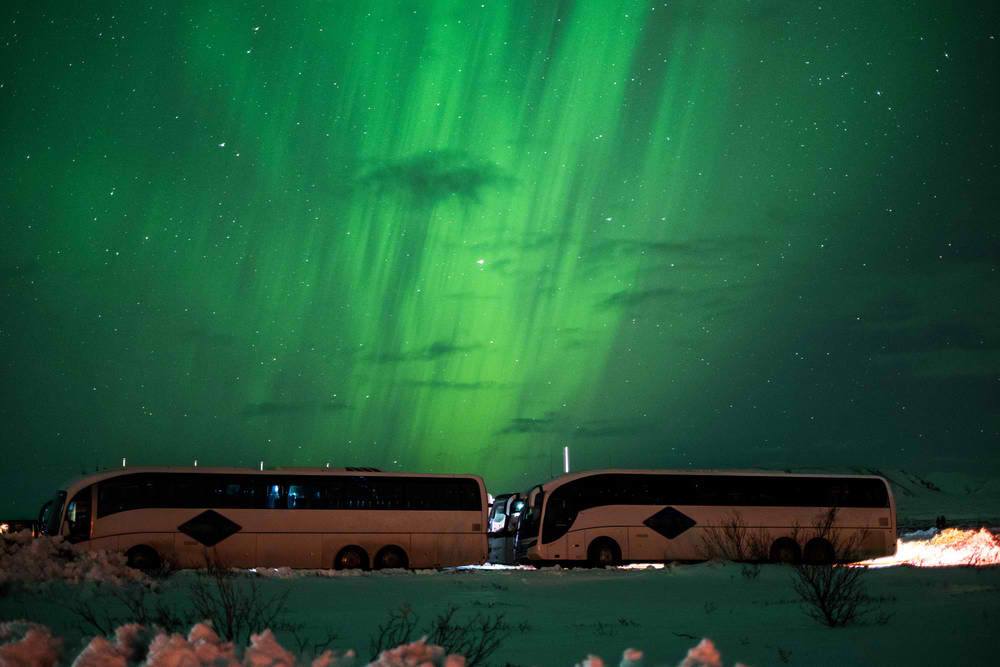
Public transport is safe in Iceland, but there’s not a lot of it.
Buses exist, trains don’t. Also, there’s no metro.
The buses themselves are super safe. And Reykjavik has city buses, which are yellow. They’re the only way (except walking or taxis) to get around the city.
The routes can be really confusing. Even locals don’t know what’s going on sometimes.
These local buses also run from Reykjavik to basically all the areas nearby you could want to go to. Selfoss, Borgarnes and Hveragerði, for example.
If you want to plan your journey and not get lost en route, head to the Straeto.is site for their handy journey planner. That’ll tell you how long buses will take, their schedules, where they go and more.
There are screens on buses that show where you are and what the next stop is, though.
Note: buses are limited at the weekend. Plan ahead.
And you cannot eat or drink on buses. You’ll get told off if you do. Even if it’s a cup of coffee, you might not be let on!
If you want to go further there is a long-distance bus network, too. Most buses stop at the biggest destinations along the Ring Road. It’s basically a much less stressful way to travel around the island than hiring a car. Plus the buses even have wi-fi!
Safe. But limited. Case closed.

Let’s face it: food in Iceland isn’t exactly appetizing. Dried fish, a fermented shark, boiled lamb’s head… we’re looking at you. Whilst it is true that people subsisted on whatever they could get their hands on , the Icelandic diet has moved away from just fish and lamb.
Before the 19th century, even grain was hard to come by. Today, it’s a different story. Most restaurants have a fish of the day and there’s stew to try. Also, there’s bread and you can even get lobster pizza! But to help you eat like a pro in Iceland, here are some foodie tips.
- Bear in mind: things can be expensive in Iceland. A lot of stuff has to be imported. This also means that options can be quite limited at times. But food in Iceland is delicious and you should still try it out.
- Don’t be freaked out by things like h arðfiskur . This is basically Iceland’s national snack. It’s a dried fish that’s often spread with butter on it and eaten pretty much like popcorn or crisps. It’s crazy.
- That said, you may not be used to all the fish. If you’re not, and you have a delicate stomach then maybe it’s not the best idea to.
- With all the fish and stuff on offer, it can be tricky if you’re a picky eater and you just don’t like seafood. Or if you’re actually just allergic to it.
- There are cultural differences in what Icelandic people eat. We’re talking whale, shark and even puffin. Whilst it’s not really your place to judge, we’d also say steer clear of tourist restaurants that purposely serve these things up. Do you want to try them? Go somewhere local. But growing the trade of animals like this for food is not something you may want to support by eating at tourist places.
- Things can be pricey in Iceland. That’s just a fact. So if you don’t want to starve and want to eat relatively healthily, most hostels will have a kitchen where you can cook for yourself. Get down to the local supermarket, buy some ingredients and cook up a storm!
- But for cheap snacks, go for a hot dog stall. For some reason, these are everywhere. For comparison: hot dog = $3.50 / sandwich = $13. Ish. You do the maths.
- It may be Iceland and it may be safe, but you could still get food poisoning. Or ill from food. So whatever you do, make sure wherever you’re going is recommended. That it’s busy with locals. Or even that it looks clean.
- Wash your hands. It’s the simplest things that are often most effective. So make sure your mitts aren’t grubby before you start tucking into your dinner.
See? It’s not all pickled ram’s testicles and sheep’s innards. There’s more choice than there’s ever been in Iceland. And for the most part, food in Iceland is safe. You’re not very likely at all to get ill from Iceland food. You may get ill just looking at some of it though.
Whale meat is a big issue. Having a small amount for traditional reasons is something that makes sense. But the fact that most whale meat in Iceland is sold to tourist restaurants doesn’t make sense to us at all. Travelling smart doesn’t just mean eating at clean-looking, recommended restaurants: it also means not supporting stuff like this.
Surprise surprise, you can drink the water in Iceland.
In fact, Icelandic people are very proud of their water!
With all those glaciers, Iceland actually has some of the best water on the planet, or at least they claim to.
Buying bottled water just doesn’t make sense here! Evian-quality water comes out the taps!
Geothermal water may smell like sulphur, but the cold stuff is going to be fine.
So pack a refillable bottle and drink away! We even have compared different travel water bottles in this article to help you decide which one is the best for you.
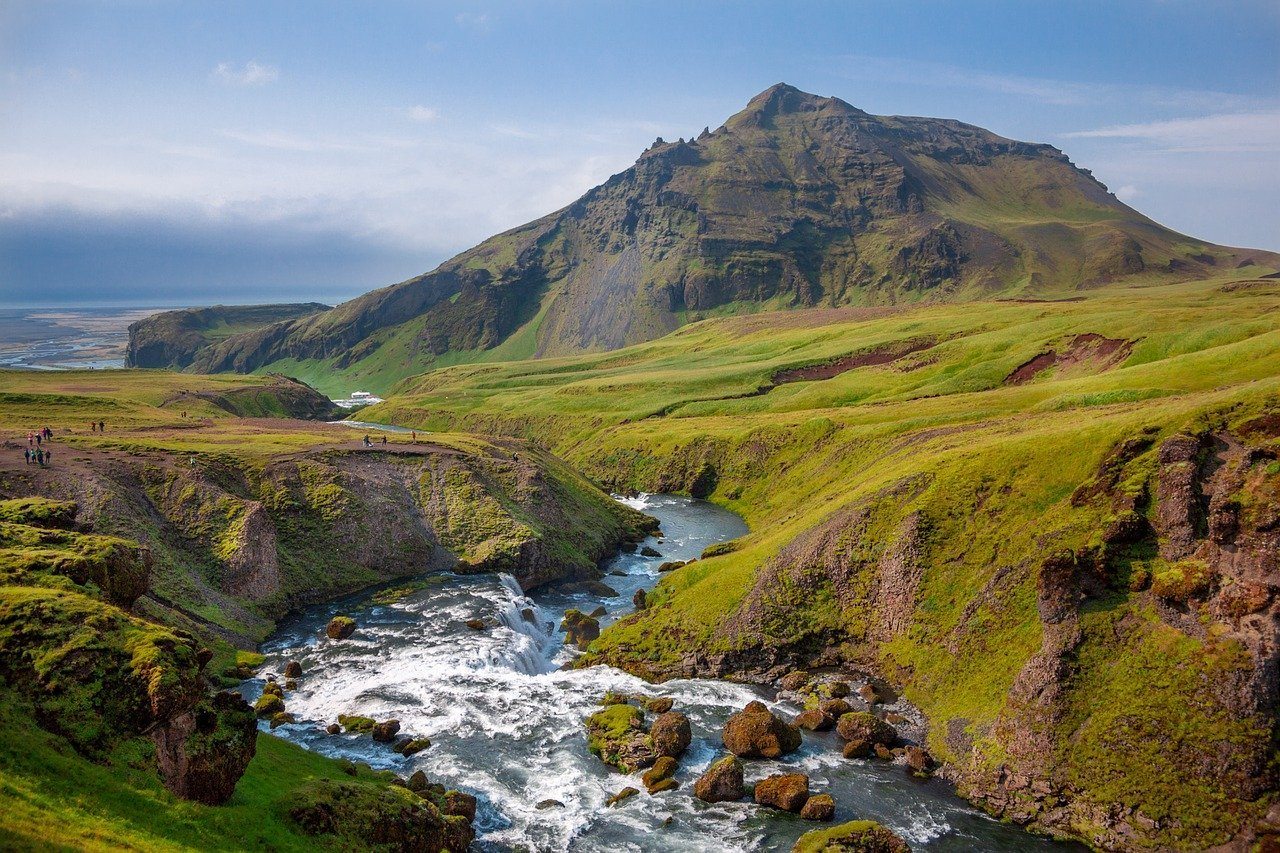
Obviously, Iceland is safe to live in.
But it can actually be pretty complicated figuring it all out.
You’ll also have to get used to living in the Arctic Circle. The good news in summer (long days), bad news in winter (perpetual night).
It’s also not a warm country so make sure you pack warm!
If you’re easily affected by the weather and daylight hours, you might find it tricky living in Iceland.
In fact in the winter, it can be pretty horrific weather-wise. It’s freezing and there’s no sunshine. And moving there without any friends or family to connect with makes it downright depressing.
It can be a challenging place to live, to say the least.
If you do move to Iceland, you’ll probably want to pick a place in Reykjavik. But it’s next level expensive. It’s so popular with tourists and locals that there’s an actual shortage. Everyone wants to live in the 101 district in the centre of the city. Makes sense: this is where the bars and restaurants are.
On the other hand in the west of the city centre is Vesturbær, which is both cheaper and cooler than the touristy centre.
Anywhere outside the centre, the pace of life is pretty slow. If that sounds like you, go for it!
On the plus side, everyone speaks English. Icelandic hikes offer some of the world’s most wonderous views. People are friendly. And you can casually go see the Northern Lights or take a dip in the Blue Lagoon whenever.
It’s safe to live in Iceland, but it can be isolating.

A new country, a new contract, a new piece of plastic – booooring. Instead, buy an eSIM!
An eSIM works just like an app: you buy it, you download it, and BOOM! You’re connected the minute you land. It’s that easy.
Is your phone eSIM ready? Read about how e-Sims work or click below to see one of the top eSIM providers on the market and ditch the plastic .
The healthcare in Iceland is truly of a high standard.
The safest country in the world has a healthcare system to match.
You won’t have a problem trying to find an English-speaking doctor or any other medical staff who can understand you.
In general, it’s easy to access medical services in Reykjavik, and the service is pretty quick: you won’t have to wait much.
However, if you’re somewhere more remote, it can be harder to find medical assistance. And if you’re out hiking it can take hours before a medical team can reach you.
For minor ailments, head to a pharmacy. They can give you free, over-the-counter advice and dispense according medication. Look for the sign that says Apótek.
Remember though, Iceland is expensive . Though it is high quality, you’ll have to pay in full if you need any sort of medical treatment. And it’s super important to have medical insurance. If something happens when you’re somewhere remote, an airlift is very pricey.
But yes. Healthcare in Iceland is good. No problems here!
Okay, it’s no secret that the Icelandic language isn’t easy to learn, let alone pronounce! That said, even though most people speak perfect English if you know a couple of Icelandic travel phrases, your efforts will always be appreciated!
Hello – Sæll
How are you? – Hvað segir þú?
What is your name? – Hvað heitir þú?
Thank you – Takk [tahck]
Where is the bathroom? – Hvar er klósettið? [hvar er kloh-settith]
How much is this? – Hvað kostar þetta?[hvath koster thetta]
Where is? – Hvar er? [kvar er]
Beer – Bjór
Here are some quick answers to common questions about safety in Iceland.
Is Iceland a safe country?
Iceland is one of the safest countries in Europe and worldwide. Most safety issues are caused by nature, such as freezing winters and snowstorms. Crime rates in Iceland are incredibly low.
What should you avoid in Iceland?
Avoid these things in Iceland to stay safe: – Don’t underestimate the weather – Don’t rely on walk-ins when it comes to booking an accommodation – Don’t go too close to cliff edges and hot springs – Don’t go off-trail on hikes
Since Iceland is one of the safest countries worldwide, it’s also incredibly safe for female solo travelllers. Make sure you come prepared for the cold weather and you’ll have a blast.
What are the biggest dangers in Iceland?
Nature, especially during the winter months can be absolutely brutal and dangerous. Be prepared for snowstorms, freezing temperatures and hardly any daylight.
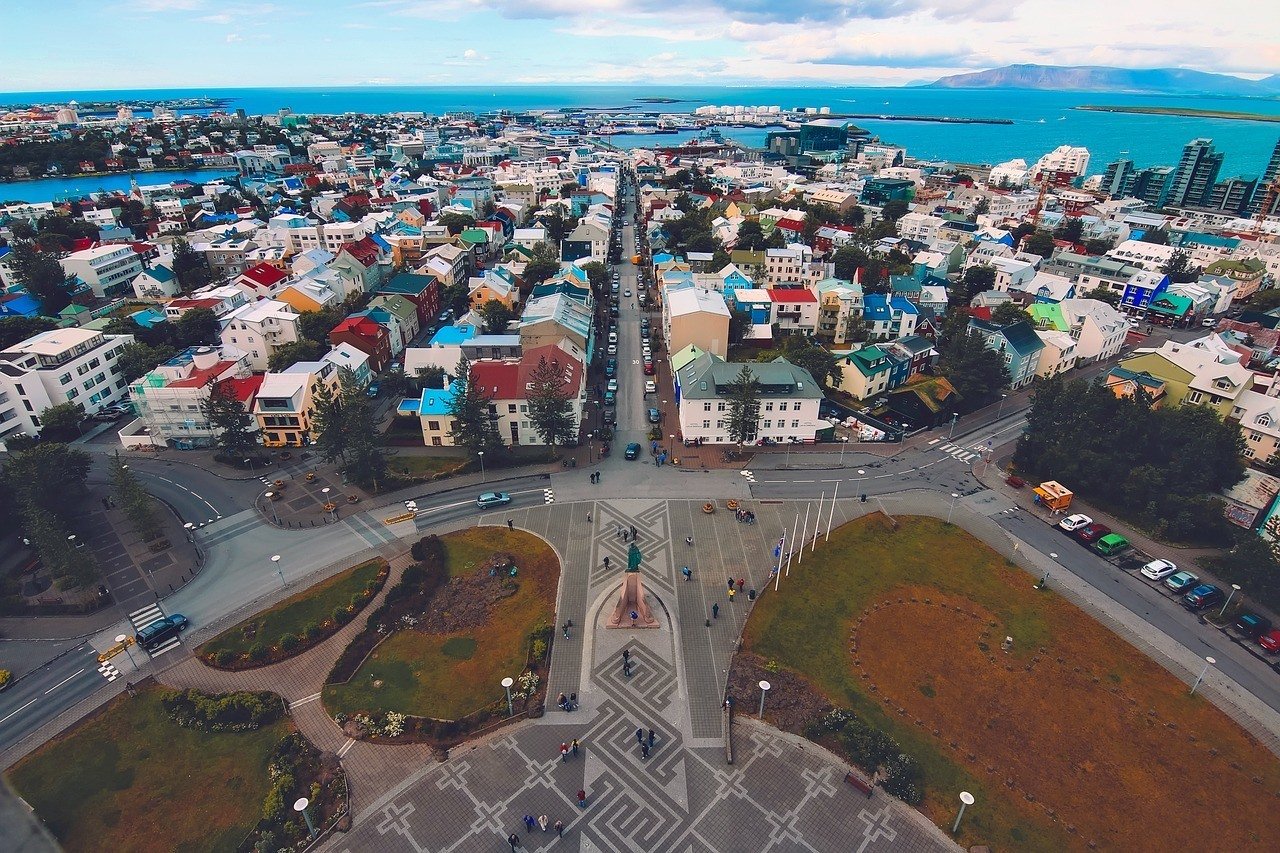
We’re not going to lie, Iceland is ridiculously safe. There is basically nothing unsafe about visiting this country, in terms of people anyway. Petty crime is basically not a thing and neither is violent crimes. You’re unlikely to be parted with your money as a result of a scam. It’s a dream to travel to places as safe as this and it’s a shame that everywhere couldn’t be this safe. But it’s not without its dangers…
There are things to pay attention to if you’re planning on backpacking Iceland. The big, obvious thing will be the seismic credentials of Iceland. There really are some pretty active volcanoes on the island that can blow at any moment and without much warning at all. These could be devastating or they could just disrupt your travel plans. They’re unpredictable and potentially deadly.
But you can’t do much about them. Though a volcano isn’t going to mug you. They’re not an everyday threat. Something that will be more common and applicable to your situation is getting yourself into danger via hiking or otherwise heading on an independent trip around Iceland. It’s safe, but knowing the dangers, being prepared, planning, packing snacks and plenty of water… All things you should do.
Disclaimer: Safety conditions change all over the world on a daily basis. We do our best to advise but this info may already be out of date. Do your own research. Enjoy your travels!

Christina Grayt
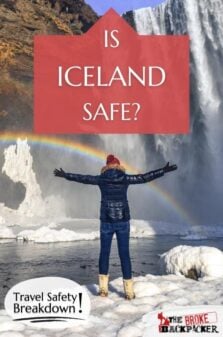
Share or save this post

Yes, It is safe to visit Iceland with kids. I have not visited too many places in Iceland, but amongst the places that I have been to, I would say that Iceland is the most magical and beautiful country that. I have visited Iceland with my family for 10 days. One travel company Discover Iceland provided all the transportation and guided us. There were scenery and views which were breathtaking.
Leave a Reply Cancel reply
Your email address will not be published. Required fields are marked *
Save my name, email, and website in this browser for the next time I comment.
Notify me of followup comments via e-mail.
Cookies on GOV.UK
We use some essential cookies to make this website work.
We’d like to set additional cookies to understand how you use GOV.UK, remember your settings and improve government services.
We also use cookies set by other sites to help us deliver content from their services.
You have accepted additional cookies. You can change your cookie settings at any time.
You have rejected additional cookies. You can change your cookie settings at any time.
- Passports, travel and living abroad
- Travel abroad
- Foreign travel advice
Warnings and insurance
Volcanic eruptions.
Recently there has been a series of volcanic eruptions on the Reykjanes peninsula in south-west Iceland. Stay away from this area.
For more details see Extreme weather and natural disasters .
Before you travel
No travel can be guaranteed safe. Read all the advice in this guide and any specific travel advice that applies to you:
- women travellers
- disabled travellers
- LGBT+ travellers
- solo and independent travel
- volunteering and adventure travel
Travel insurance
If you choose to travel, research your destinations and get appropriate travel insurance . Insurance should cover your itinerary, planned activities and expenses in an emergency.
About FCDO travel advice
The Foreign, Commonwealth & Development Office ( FCDO ) provides advice about risks of travel to help British nationals make informed decisions. Find out more about FCDO travel advice .
Follow and contact FCDO travel on Twitter , Facebook and Instagram . You can also sign up to get email notifications when this advice is updated.
Related content
Is this page useful.
- Yes this page is useful
- No this page is not useful
Help us improve GOV.UK
Don’t include personal or financial information like your National Insurance number or credit card details.
To help us improve GOV.UK, we’d like to know more about your visit today. We’ll send you a link to a feedback form. It will take only 2 minutes to fill in. Don’t worry we won’t send you spam or share your email address with anyone.
- Skip to main content
- Skip to "About this site"
Language selection
Search travel.gc.ca.
Help us to improve our website. Take our survey !
COVID-19: travel health notice for all travellers
Iceland travel advice
Latest updates: The Health section was updated - travel health information (Public Health Agency of Canada)
Last updated: May 6, 2024 10:24 ET
On this page
Safety and security, entry and exit requirements, laws and culture, natural disasters and climate, iceland - take normal security precautions.
Take normal security precautions in Iceland
Back to top
Petty crime
Petty crime, such as pickpocketing and purse snatching, occurs.
Ensure that your belongings, including your passport and other travel documents, are secure at all times.
Violent crime
Although rare, violent crime has occurred in downtown Reykjavik, particularly inside and near nightlife venues including bars and clubs. Incidents include:
- gang violence
- knife attacks
Tourists are usually not targeted. However, you could be at the wrong place at the wrong time.
Demonstrations
Demonstrations may occur. Even peaceful demonstrations can turn violent at any time. They can also lead to disruptions to traffic and public transportation.
- Avoid areas where demonstrations and large gatherings are taking place
- Follow the instructions of local authorities
- Monitor local media for information on ongoing demonstrations
Mass gatherings (large-scale events)
There is a threat of terrorism in Europe. Terrorists have carried out attacks in several European cities. Terrorist attacks could occur at any time.
Targets could include:
- government buildings, including schools
- places of worship
- airports and other transportation hubs and networks
- public areas such as tourist attractions, restaurants, bars, coffee shops, shopping centres, markets, hotels and other sites frequented by foreigners
Always be aware of your surroundings when in public places. Be particularly vigilant if attending sporting events and during religious holidays and other public celebrations, as terrorists have used such occasions to mount attacks.
Coastal waters can be dangerous. Riptides, large waves, and strong ocean currents can catch even experienced swimmers off guard.
Inland waters may also be dangerous. Many of Iceland’s rivers have swift currents and waterfalls. Always check downstream before you swim in a river. Hot springs can be dangerously hot. Always check the water before going into a natural hot spring.
Sneaker waves
Large surges of water between waves known as “sneaker waves” can reach far up the shore and pull you into the ocean. Sneaker waves have killed five people since 2017 at the Reynisfjara and Kikjufjara black sand beaches in southern Iceland, including one in June 2022.
Adventure tourism
If you plan on trekking, biking, visiting natural tourist attractions or remote areas:
- never do so alone and do not leave your companions
- buy travel insurance that includes helicopter rescue and medical evacuation
- ensure that your physical condition is good enough to meet the challenges of your activity
- make sure that you’re well-equipped and informed about weather and any hazardous conditions
- inform a family member or friend of your itinerary, including when you expect to be back
- register your itinerary and contact details with the Icelandic authorities
- always bring a cell phone and keep emergency numbers on hand
- bring an emergency position indicating radio beacon (EPIRB) if you are travelling to remote areas
- always book accommodations or camp in officially authorized campsites
Useful links
- Advice, alerts, and registration of itinerary - Safe Travel Iceland
- 112 Emergency app - Government of Iceland
Natural hazards
The weather conditions, rough terrain, and presence of volcanic activity in Iceland can lead to safety concerns if you don’t adequately prepare for your trip.
The Icelandic authorities maintain a web portal to inform tourists of good practices and hazards. You can register your itinerary and receive safety alerts through SMS. Icelandic emergency services also offer a location-based emergency assistance app called 112 Iceland App.
In 2021 and 2022 the Fagradalsfjall volcano erupted in the Reykjanes Peninsula, around 40km from Reykjavik. While the volcano is no longer actively erupting, visitors are not allowed to walk on the lava for their safety and to protect the natural landscape.
Hiking trails
Trails and natural hazards are not always well-marked or signed. Certain routes cross glaciers that are dangerous to navigate without proper equipment and training. Volcanic and geologically active areas pose a distinct risk to hikers and trekkers. Hazards can be hidden within the landscape.
- Make sure you obtain detailed information on hiking trails or trekking routes before setting out
- Always hire a reputable guide with local knowledge before visiting hazardous areas
- Be particularly careful near volcanoes, geysers, hot springs, craters, and cliffs
Road safety
Road conditions and road safety can vary throughout the country. Most urban roads, as well as Iceland’s national Route 1, the “ring road,” are paved. Many inland roads are unpaved, narrow and lack shoulders.
Most bridges outside of Reykjavik are one-lane. Slow down when approaching bridges to ensure there is no traffic approaching from the other side. If cars are approaching from both sides, the closest car to the bridge has the right of way.
Roads in the highlands and other remote areas are only open during the summer.
Driving can be hazardous, particularly in winter. Wildlife road accidents can occur. Be particularly vigilant if driving at nighttime.
If you plan to drive in a remote area, including the highlands:
- check road conditions
- use a four-wheel-drive vehicle
- share your travel itinerary with a third party
- bring a cell phone and sufficient supplies of fuel , water and food
- Information on road and weather conditions - Icelandic Road and Coastal Administration
- Road and Travel Conditions - Safe Travel Iceland
- Important tips for driving in Iceland - Safe Travel Iceland
Public transportation
Municipal bus services are generally not available outside Reykjavik and the surrounding towns. Bus shuttle services from the international airport to the capital region are available. Long-distance buses also operate throughout the country.
There is no rail service.
Ferries connect the main island to certain remote islands.
Taxis are available in main cities and populated areas.
We do not make assessments on the compliance of foreign domestic airlines with international safety standards.
Information about foreign domestic airlines
Every country or territory decides who can enter or exit through its borders. The Government of Canada cannot intervene on your behalf if you do not meet your destination’s entry or exit requirements.
We have obtained the information on this page from the Icelandic authorities. It can, however, change at any time.
Verify this information with the Foreign Representatives in Canada .
- Schengen area
Iceland is a Schengen area country. Canadian citizens do not need a visa for travel to countries within the Schengen area. However, visa-free travel only applies to stays of up to 90 days in any 180-day period. Stays are cumulative and include visits to any Schengen area country.
If you plan to stay in the Schengen area for a longer period of time, you will need a visa. You must contact the high commission or embassy of the country or countries you are travelling to and obtain the appropriate visa(s) prior to travel.
- Foreign Representatives in Canada
Entry requirements vary depending on the type of passport you use for travel.
Before you travel, check with your transportation company about passport requirements. Its rules on passport validity may be more stringent than the country’s entry rules.
Regular Canadian passport
Your passport must be valid for at least 3 months beyond the date you expect to leave the Schengen area.
Passport for official travel
Different entry rules may apply.
Official travel
Passport with “X” gender identifier
While the Government of Canada issues passports with an “X” gender identifier, it cannot guarantee your entry or transit through other countries. You might face entry restrictions in countries that do not recognize the “X” gender identifier. Before you leave, check with the closest foreign representative for your destination.
Other travel documents
Different entry rules may apply when travelling with a temporary passport or an emergency travel document. Before you leave, check with the closest foreign representative for your destination.
- Foreign Representatives in Canada
- Canadian passports
Tourist visa: not required for stays up to 90 days in any 180-day period Business visa: not required. Student visa: required Student visa: required Work visa: required
Certain workers in Iceland for short-term projects or contracts are exempt from work permit requirements for up to 90 days. This exemption does not apply to travel guides or tour operators. You should contact the Icelandic Directorate of Labour to confirm if you are eligible for exemption.
- Visas and residence permits - Icelandic Directorate of Immigration
- Exemptions of work permit requirement for short-term projects - Icelandic Directorate of Labour
Children and travel
Learn more about travelling with children .
Yellow fever
Learn about potential entry requirements related to yellow fever (vaccines section).
Relevant Travel Health Notices
- Global Measles Notice - 13 March, 2024
- COVID-19 and International Travel - 13 March, 2024
This section contains information on possible health risks and restrictions regularly found or ongoing in the destination. Follow this advice to lower your risk of becoming ill while travelling. Not all risks are listed below.
Consult a health care professional or visit a travel health clinic preferably 6 weeks before you travel to get personalized health advice and recommendations.
Routine vaccines
Be sure that your routine vaccinations , as per your province or territory , are up-to-date before travelling, regardless of your destination.
Some of these vaccinations include measles-mumps-rubella (MMR), diphtheria, tetanus, pertussis, polio, varicella (chickenpox), influenza and others.
Pre-travel vaccines and medications
You may be at risk for preventable diseases while travelling in this destination. Talk to a travel health professional about which medications or vaccines may be right for you, based on your destination and itinerary.
Yellow fever is a disease caused by a flavivirus from the bite of an infected mosquito.
Travellers get vaccinated either because it is required to enter a country or because it is recommended for their protection.
- There is no risk of yellow fever in this country.
Country Entry Requirement*
- Proof of vaccination is not required to enter this country.
Recommendation
- Vaccination is not recommended.
* It is important to note that country entry requirements may not reflect your risk of yellow fever at your destination. It is recommended that you contact the nearest diplomatic or consular office of the destination(s) you will be visiting to verify any additional entry requirements.
About Yellow Fever
Yellow Fever Vaccination Centres in Canada
Measles is a highly contagious viral disease. It can spread quickly from person to person by direct contact and through droplets in the air.
Anyone who is not protected against measles is at risk of being infected with it when travelling internationally.
Regardless of where you are going, talk to a health care professional before travelling to make sure you are fully protected against measles.
Hepatitis B is a risk in every destination. It is a viral liver disease that is easily transmitted from one person to another through exposure to blood and body fluids containing the hepatitis B virus. Travellers who may be exposed to blood or other bodily fluids (e.g., through sexual contact, medical treatment, sharing needles, tattooing, acupuncture or occupational exposure) are at higher risk of getting hepatitis B.
Hepatitis B vaccination is recommended for all travellers. Prevent hepatitis B infection by practicing safe sex, only using new and sterile drug equipment, and only getting tattoos and piercings in settings that follow public health regulations and standards.
The best way to protect yourself from seasonal influenza (flu) is to get vaccinated every year. Get the flu shot at least 2 weeks before travelling.
The flu occurs worldwide.
- In the Northern Hemisphere, the flu season usually runs from November to April.
- In the Southern Hemisphere, the flu season usually runs between April and October.
- In the tropics, there is flu activity year round.
The flu vaccine available in one hemisphere may only offer partial protection against the flu in the other hemisphere.
The flu virus spreads from person to person when they cough or sneeze or by touching objects and surfaces that have been contaminated with the virus. Clean your hands often and wear a mask if you have a fever or respiratory symptoms.
In this destination, rabies may be present in some wildlife species, including bats. Rabies is a deadly disease that spreads to humans primarily through bites or scratches from an infected animal.
If you are bitten or scratched by an animal while travelling, immediately wash the wound with soap and clean water and see a health care professional.
Before travel, discuss rabies vaccination with a health care professional. It may be recommended for travellers who will be working directly with wildlife.
Coronavirus disease (COVID-19) is an infectious viral disease. It can spread from person to person by direct contact and through droplets in the air.
It is recommended that all eligible travellers complete a COVID-19 vaccine series along with any additional recommended doses in Canada before travelling. Evidence shows that vaccines are very effective at preventing severe illness, hospitalization and death from COVID-19. While vaccination provides better protection against serious illness, you may still be at risk of infection from the virus that causes COVID-19. Anyone who has not completed a vaccine series is at increased risk of being infected with the virus that causes COVID-19 and is at greater risk for severe disease when travelling internationally.
Before travelling, verify your destination’s COVID-19 vaccination entry/exit requirements. Regardless of where you are going, talk to a health care professional before travelling to make sure you are adequately protected against COVID-19.
Safe food and water precautions
Many illnesses can be caused by eating food or drinking beverages contaminated by bacteria, parasites, toxins, or viruses, or by swimming or bathing in contaminated water.
- Learn more about food and water precautions to take to avoid getting sick by visiting our eat and drink safely abroad page. Remember: Boil it, cook it, peel it, or leave it!
- Avoid getting water into your eyes, mouth or nose when swimming or participating in activities in freshwater (streams, canals, lakes), particularly after flooding or heavy rain. Water may look clean but could still be polluted or contaminated.
- Avoid inhaling or swallowing water while bathing, showering, or swimming in pools or hot tubs.
Insect bite prevention
Many diseases are spread by the bites of infected insects such as mosquitoes, ticks, fleas or flies. When travelling to areas where infected insects may be present:
- Use insect repellent (bug spray) on exposed skin
- Cover up with light-coloured, loose clothes made of tightly woven materials such as nylon or polyester
- Minimize exposure to insects
- Use mosquito netting when sleeping outdoors or in buildings that are not fully enclosed
To learn more about how you can reduce your risk of infection and disease caused by bites, both at home and abroad, visit our insect bite prevention page.
Find out what types of insects are present where you’re travelling, when they’re most active, and the symptoms of the diseases they spread.
Animal precautions
Some infections, such as rabies and influenza, can be shared between humans and animals. Certain types of activities may increase your chance of contact with animals, such as travelling in rural or forested areas, camping, hiking, and visiting wet markets (places where live animals are slaughtered and sold) or caves.
Travellers are cautioned to avoid contact with animals, including dogs, livestock (pigs, cows), monkeys, snakes, rodents, birds, and bats, and to avoid eating undercooked wild game.
Closely supervise children, as they are more likely to come in contact with animals.
Person-to-person infections
Stay home if you’re sick and practise proper cough and sneeze etiquette , which includes coughing or sneezing into a tissue or the bend of your arm, not your hand. Reduce your risk of colds, the flu and other illnesses by:
- washing your hands often
- avoiding or limiting the amount of time spent in closed spaces, crowded places, or at large-scale events (concerts, sporting events, rallies)
- avoiding close physical contact with people who may be showing symptoms of illness
Sexually transmitted infections (STIs) , HIV , and mpox are spread through blood and bodily fluids; use condoms, practise safe sex, and limit your number of sexual partners. Check with your local public health authority pre-travel to determine your eligibility for mpox vaccine.
Medical services and facilities
Health care is excellent, but services can be limited outside of urban areas. Most doctors and medical staff will speak some English. Upfront payment may be required.
Make sure you get travel insurance that includes coverage for medical evacuation and hospital stays.
Travel health and safety
Keep in Mind...
The decision to travel is the sole responsibility of the traveller. The traveller is also responsible for his or her own personal safety.
Be prepared. Do not expect medical services to be the same as in Canada. Pack a travel health kit , especially if you will be travelling away from major city centres.
You must abide by local laws.
Learn about what you should do and how we can help if you are arrested or detained abroad .
Transfer to a Canadian prison
Canada and Iceland are signatories to the Convention on the Transfer of Sentenced Persons. This enables a Canadian imprisoned in Iceland to request a transfer to a Canadian prison to complete a sentence. The transfer requires the agreement of both Canadian and Iceland authorities.
This process can take a long time, and there is no guarantee that the transfer will be approved by either or both sides.
Penalties for possession, use or trafficking of illegal drugs are severe. Convicted offenders can expect jail sentences or heavy fines.
Drugs, alcohol and travel
Identification
Local authorities may ask for your identification at any time. Keep a photocopy of your passport in case of loss or seizure. Keep your original passport in a safe, dry place.
The recreational and commercial flying of drones is strictly regulated.
You must have permission from the Environment Agency of Iceland to use a drone in several protected areas. If you don’t comply, you may be fined and have your drone confiscated.
It’s illegal to camp outside organized campsites or urban areas unless the landowner has explicitly granted permission.
By law, human waste must be properly disposed of when camping in Iceland. This includes travellers using camper vans or cars to visit remote areas. All human waste must be stored and disposed of at designated sites.
Natural artefacts
It’s illegal to remove and export fossils and certain types of rocks from their natural setting without a permit issued by the Icelandic Institute of Natural History.
- Travel information - Environment Agency of Iceland
- Nature conservation - Environment Agency of Iceland
Dual citizenship
Dual citizenship is legally recognized in Iceland.
If you are a Canadian citizen, but also a citizen of Iceland, our ability to offer you consular services may be limited while you're there. You may also be subject to different entry/exit requirements .
Travellers with dual citizenship
International Child Abduction
The Hague Convention on the Civil Aspects of International Child Abduction is an international treaty. It can help parents with the return of children who have been removed to or retained in certain countries in violation of custody rights. The convention applies between Canada and Iceland.
If your child was wrongfully taken to, or is being held in Iceland, and if the applicable conditions are met, you may apply for the return of your child to the Icelandic court.
If you are in this situation:
- act as quickly as you can
- contact the Central Authority for your province or territory of residence for information on starting an application under The Hague Convention
- consult a lawyer in Canada and in Iceland to explore all the legal options for the return of your child
- report the situation to the nearest Canadian government office abroad or to the Vulnerable Children’s Consular Unit at Global Affairs Canada by calling the Emergency Watch and Response Centre
If your child was removed from a country other than Canada, consult a lawyer to determine if The Hague Convention applies.
Be aware that Canadian consular officials cannot interfere in private legal matters or in another country’s judicial affairs.
- List of Canadian Central Authorities for the Hague Convention
- International Child Abduction: A Guidebook for Left-Behind Parents
- Travelling with children
- The Hague Convention - Hague Conference on Private International Law
- Canadian embassies and consulates by destination
- Emergency Watch and Response Centre
You can drive in Iceland with your Canadian driver’s licence for up to 6 months. After that, you must apply for an Icelandic driver’s licence.
You should also carry an international driving permit.
It’s strictly forbidden to drive off-road and track in Iceland.
You must keep headlights on at all times.
Winter tires are mandatory between November and April. Exact dates are subject to change based on weather conditions. Tires with studs are commonly used in the winter in Iceland. Most car rental services providers outfit their vehicles with studded tires during the winter months.
- Driving in Iceland - Visit Reykjavik
- International Driving Permit
The currency of Iceland is the Icelandic krona (ISK).
If you are carrying €10,000 or more, or the equivalent in other currencies, you must make a declaration to customs when you enter or leave Iceland.
The sum can be in:
- banknotes and coins
- bearer negotiable instruments such as:
- travellers’ cheques
- promissory notes
- money orders
Cash declaration - Iceland Revenue and Customs
Reykjanes Peninsula
On March 16, 2024, a volcanic eruption occurred on the Reykjanes Peninsula in southwest Iceland. The Icelandic authorities have evacuated the surrounding area, including the town of Grindavík and the Blue Lagoon. The eruption is ongoing and has created dangerous lava flows in the immediate area. Further eruptions could happen at any time and without warning.
The Icelandic authorities have closed roads near the eruption site. You should not approach or attempt to view an active eruption.
Clouds of volcanic gas could move across southern Iceland in the following days, which could bring potentially dangerous pollution levels to areas including Þorlákshöfn and Vestmannaeyjar.
If you are in an area affected by volcanic gas:
- monitor the local air quality, particularly if you suffer from respiratory ailments
- keep your windows closed and turn off ventilation systems
- avoid low-lying ground and valleys
Keflavik International Airport has not been affected by the eruptions. Flights to and from the airport continue to run on schedule.
If you are in Iceland:
- avoid areas close to mountains and steep slopes on the Reykjanes Peninsula due to danger of falling rocks and landslides
- monitor local media to stay informed of the situation
- follow the advice of local authorities, including evacuation orders
- Ongoing volcanic unrest in the Reykjanes-Svartsengi volcanic system – Icelandic Meteorological Office
- Ambient air quality – Icelandic Environment Agency
- Safetravel: be safe in Iceland – Icelandic Association for Search and Rescue
Seismic activity
There are several active volcanoes in Iceland. Some have erupted in recent years. Further eruptions could occur at any time and without warning.
Dangerous lava flows can move slowly over land. The Icelandic authorities limit access near active eruption sites by closing roads and issuing evacuation orders. You should not approach an active eruption or walk on recently cooled lava.
Volcanic ash fall may damage vehicles, disrupt domestic and international flights, and cause the closure of roads and bridges. The air quality may deteriorate and affect your breathing, especially if you suffer from respiratory ailments.
Following an eruption, winds can blow clouds of poisonous volcanic gas far from the eruption site. This could bring potentially dangerous pollution levels to areas unaffected by the eruption, including Reykjavik.
There are several geysers around the country. Boiling water and steam from geysers can result in severe burns. Follow safety advice and stay a safe distance from active geological features.
During your stay in Iceland:
- always obey safety rules and advice in the vicinity of volcanoes, geysers, and hot springs
- follow the instructions of local authorities, including any evacuation orders
- monitor local media sources for up-to-date information on volcanic activity
- Map of Icelandic volcanoes - State Volcano Observatory
- Alerts and warnings - Safe Travel Iceland
- Volcanic eruptions - Environment Agency of Iceland
- Contact information - Department of Civil Protection and Emergency Management
Earthquakes and landslides
Iceland is located in an active seismic zone. Earthquakes commonly occur, especially around volcanoes before and during eruptions.
Landslides can occur with little warning following volcanic eruptions and earthquakes. Roads may become impassable.
- Monitor local media for the latest updates, including those on road conditions
- Stay away from flooded areas
- Monitor weather reports
Earthquakes - What to Do?
Severe weather
Iceland’s geographical location makes it prone to severe weather. The climate can be unpredictable regardless of the time of year.
Monitor weather reports closely.
- Climate information and warnings - Icelandic Meteorological Office
- Travel and Road Conditions - Safe Travel Iceland
Local services
Dial 112 for emergency assistance.
Consular assistance
For emergency consular assistance, call the Embassy of Canada to Iceland, in Reykjavik, and follow the instructions. At any time, you may also contact the Emergency Watch and Response Centre in Ottawa.
The decision to travel is your choice and you are responsible for your personal safety abroad. We take the safety and security of Canadians abroad very seriously and provide credible and timely information in our Travel Advice to enable you to make well-informed decisions regarding your travel abroad.
The content on this page is provided for information only. While we make every effort to give you correct information, it is provided on an "as is" basis without warranty of any kind, expressed or implied. The Government of Canada does not assume responsibility and will not be liable for any damages in connection to the information provided.
If you need consular assistance while abroad, we will make every effort to help you. However, there may be constraints that will limit the ability of the Government of Canada to provide services.
Learn more about consular services .
Risk Levels
take normal security precautions.
Take similar precautions to those you would take in Canada.
Exercise a high degree of caution
There are certain safety and security concerns or the situation could change quickly. Be very cautious at all times, monitor local media and follow the instructions of local authorities.
IMPORTANT: The two levels below are official Government of Canada Travel Advisories and are issued when the safety and security of Canadians travelling or living in the country or region may be at risk.
Avoid non-essential travel
Your safety and security could be at risk. You should think about your need to travel to this country, territory or region based on family or business requirements, knowledge of or familiarity with the region, and other factors. If you are already there, think about whether you really need to be there. If you do not need to be there, you should think about leaving.
Avoid all travel
You should not travel to this country, territory or region. Your personal safety and security are at great risk. If you are already there, you should think about leaving if it is safe to do so.
About Iceland
Visa information, geography of iceland, general information, the northern lights, volcanic eruptions, sustainable travel, iceland academy, plan your trip, how to get there, accommodation, things to do, map your journey, getting around, visitor numbers, carbon footprint, destinations, the regions, scenic routes, national parks, trip suggestions, towns & villages, inspiration, food and beverages, lbgt+ travel, escape the ordinary.
Read handpicked articles to get you inspired by Iceland
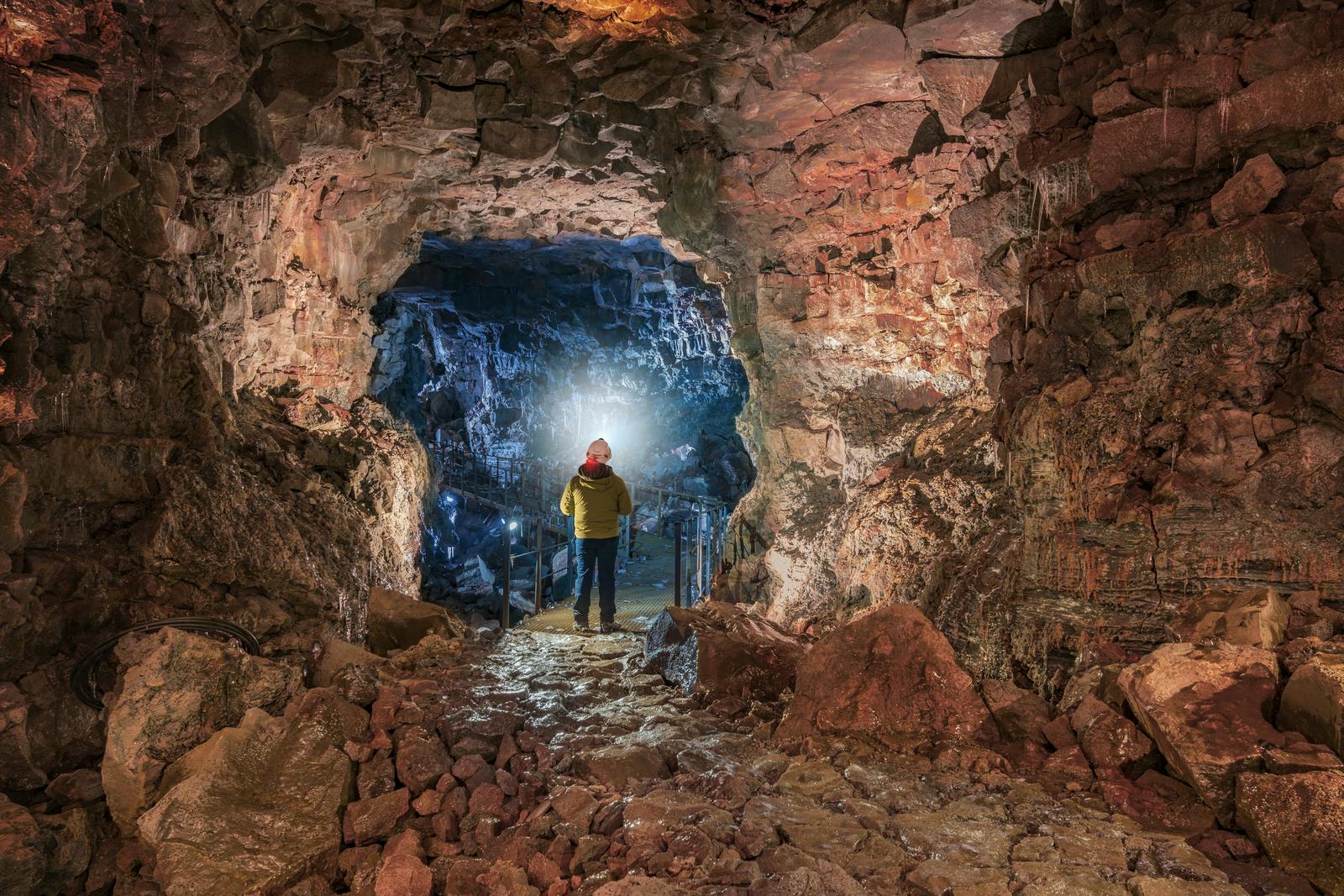
Caving in Iceland
Due to its position on the Mid-Atlantic ridge, Iceland is one of the most active volcanic regions in the world. Its unique geological conditions make for some awe-inspiring rock formations, both beneath the surface as well as above it. Various tube caves—formed by magma flowing underneath the earth's surface after lava has solidified overhead—can safely be explored through guided excursions year-round.
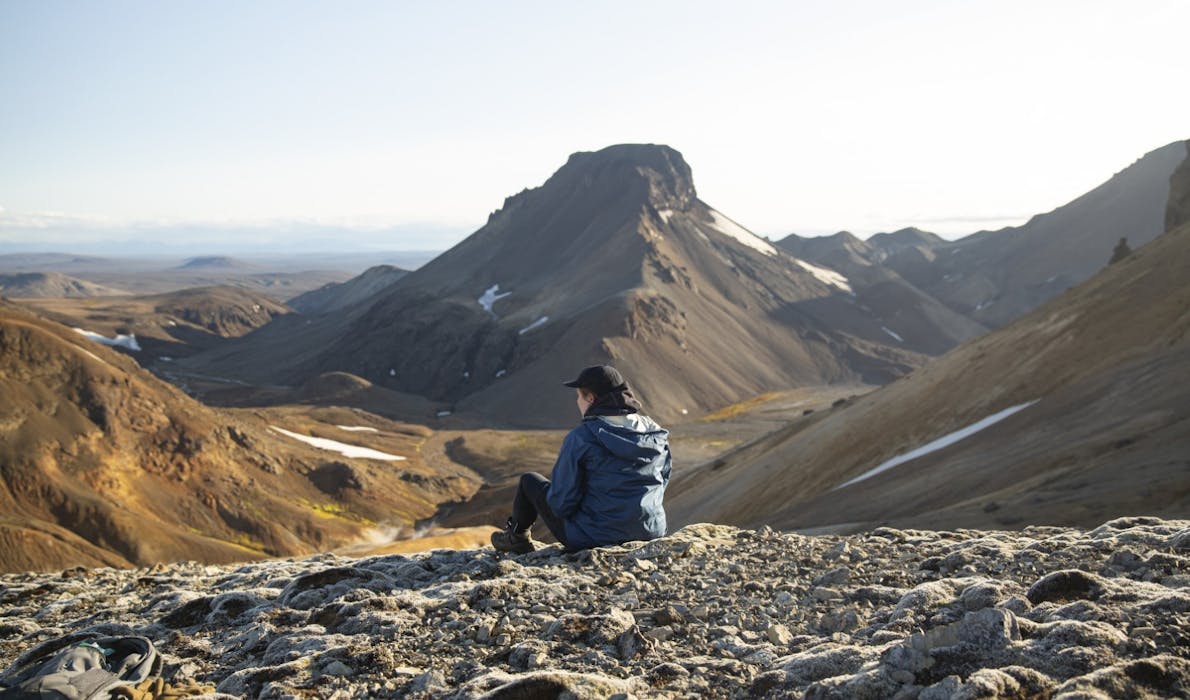
Planning a trip to Iceland
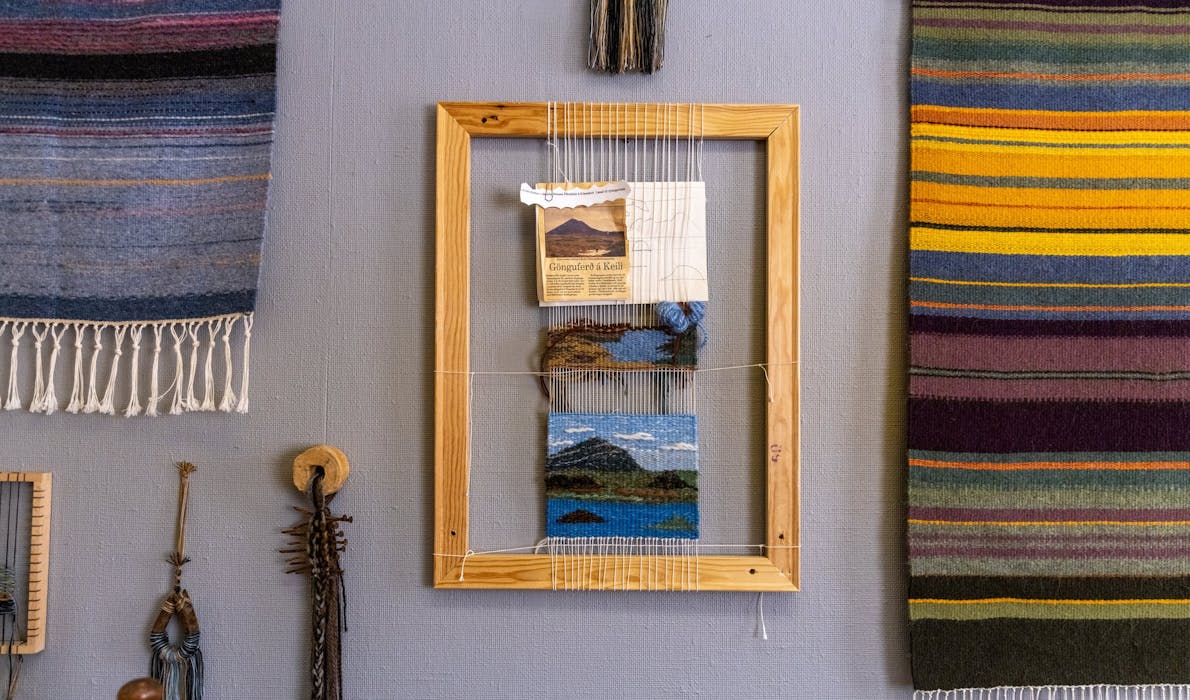
ICELANDIC HANDICRAFT - EVENTS AND PLACES OF INTEREST FOR THE CRAFTY ONES
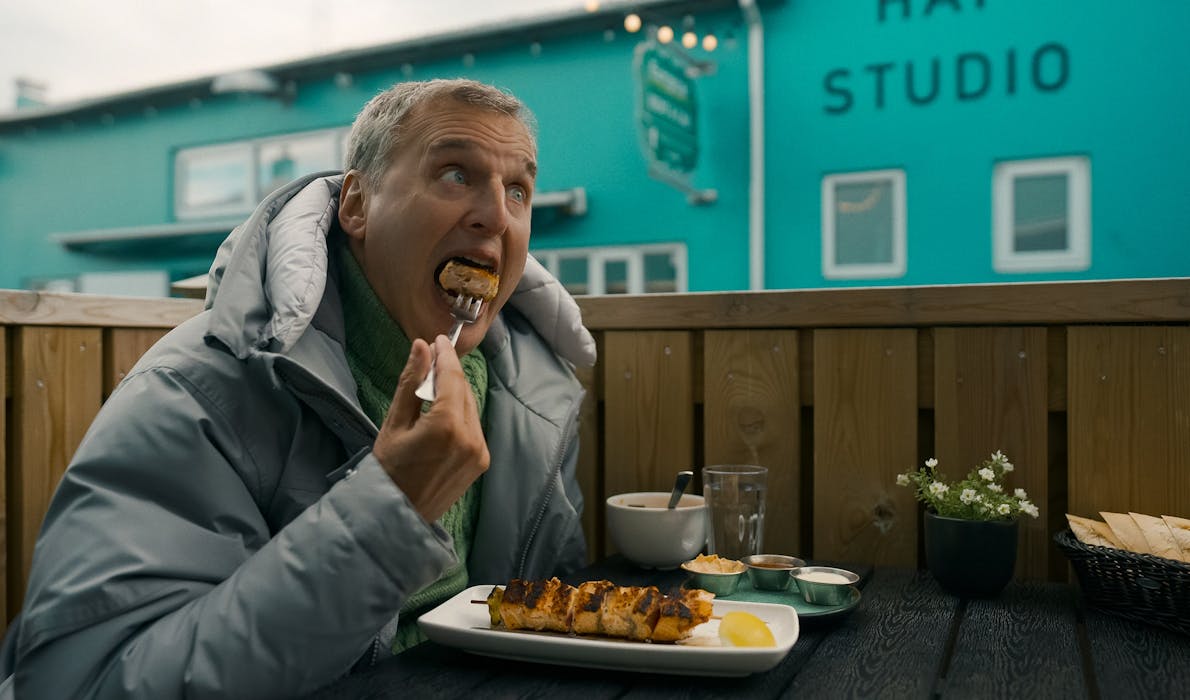
Somebody Feed Phil Foodtrail in Iceland
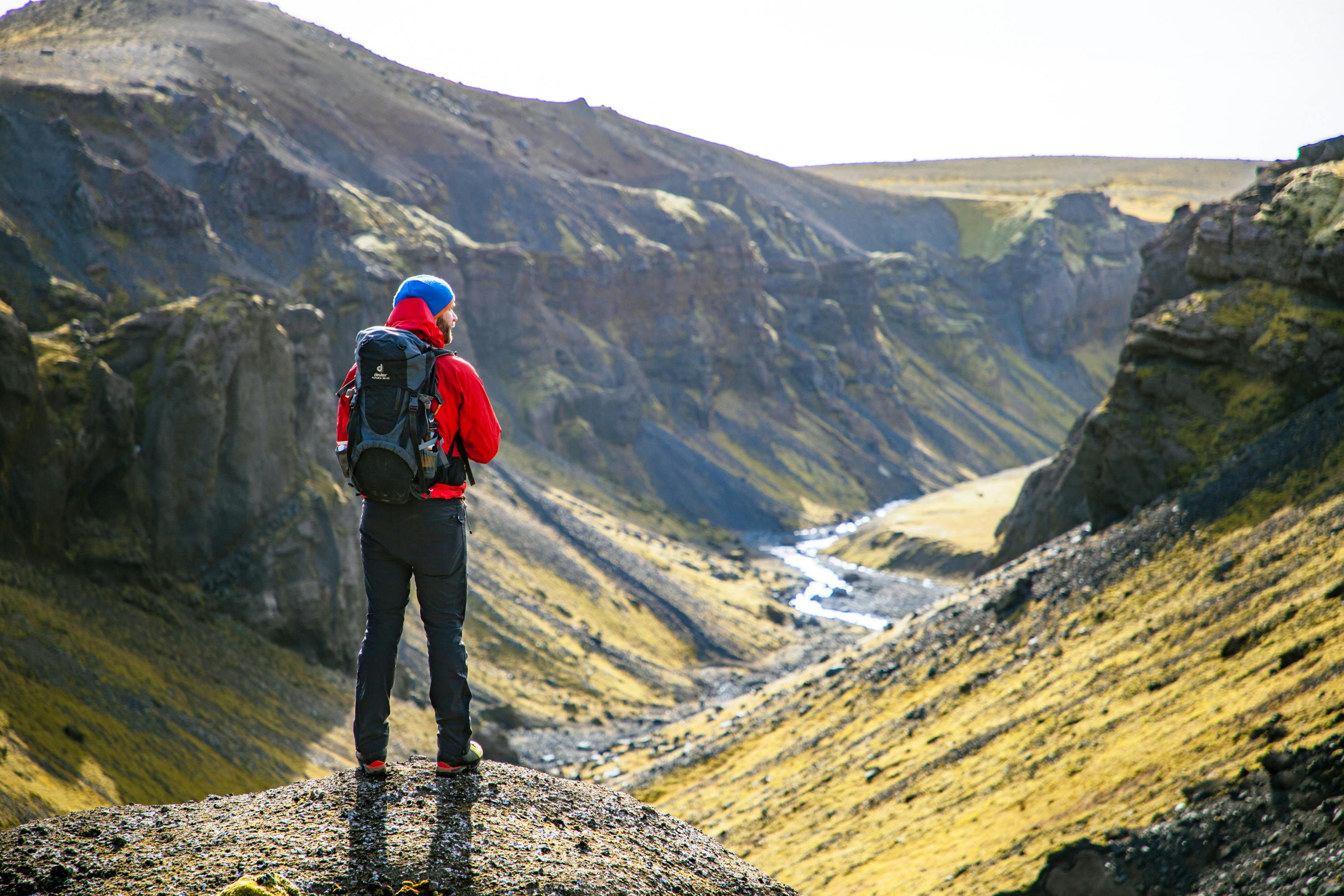
Hiking in Iceland
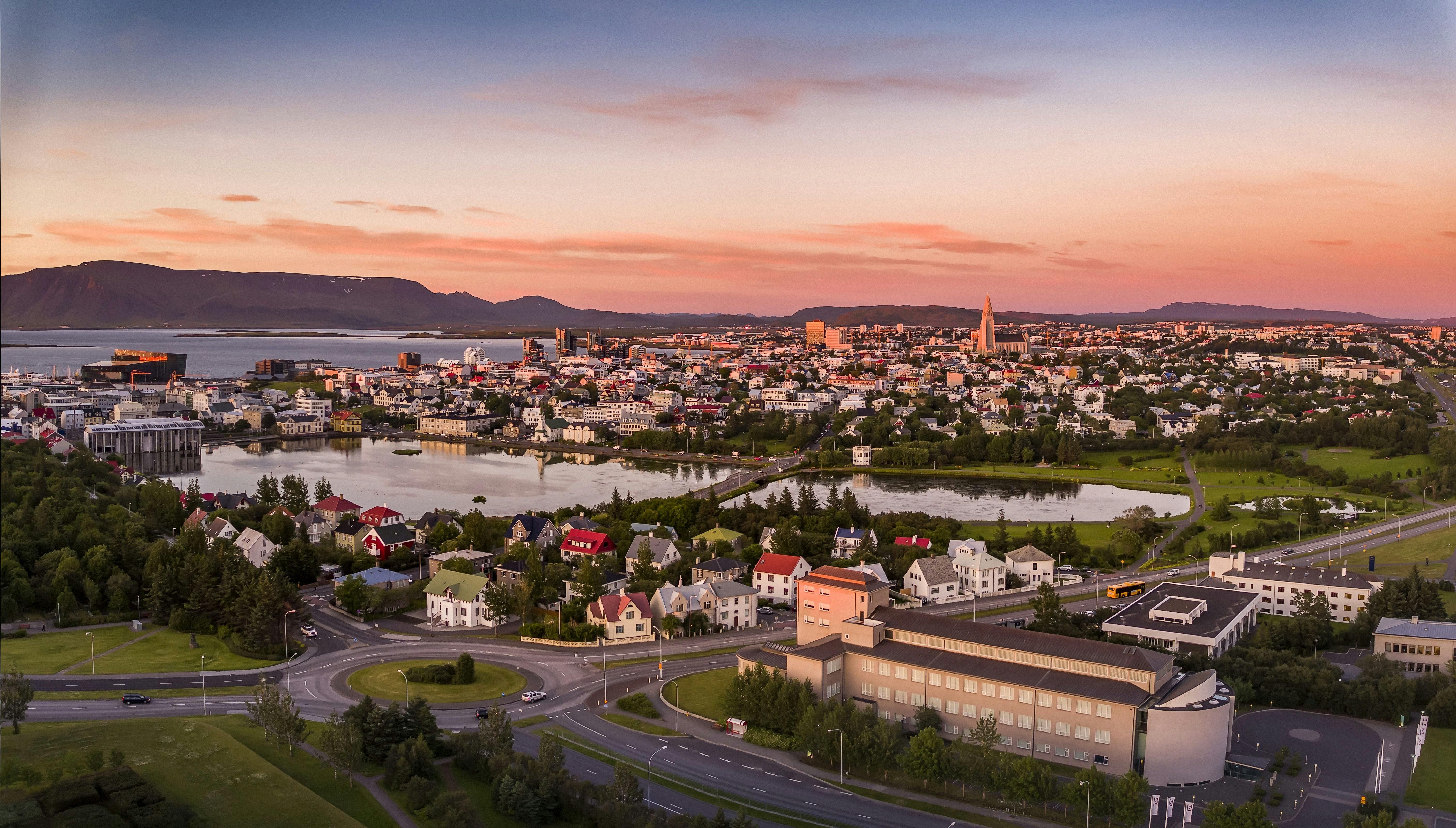
Reykjavík Weekend Getaway
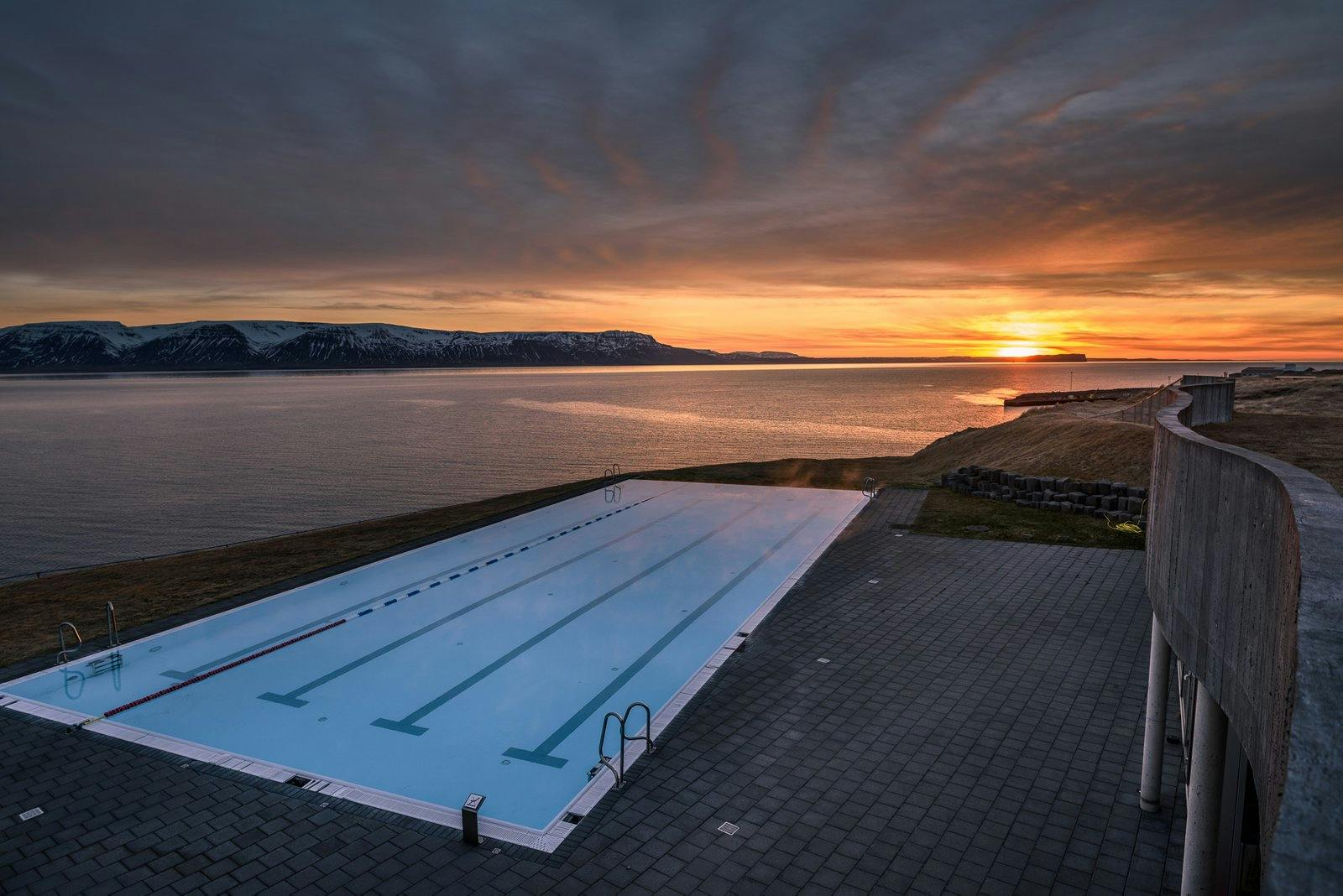
Swimming pool culture in Iceland
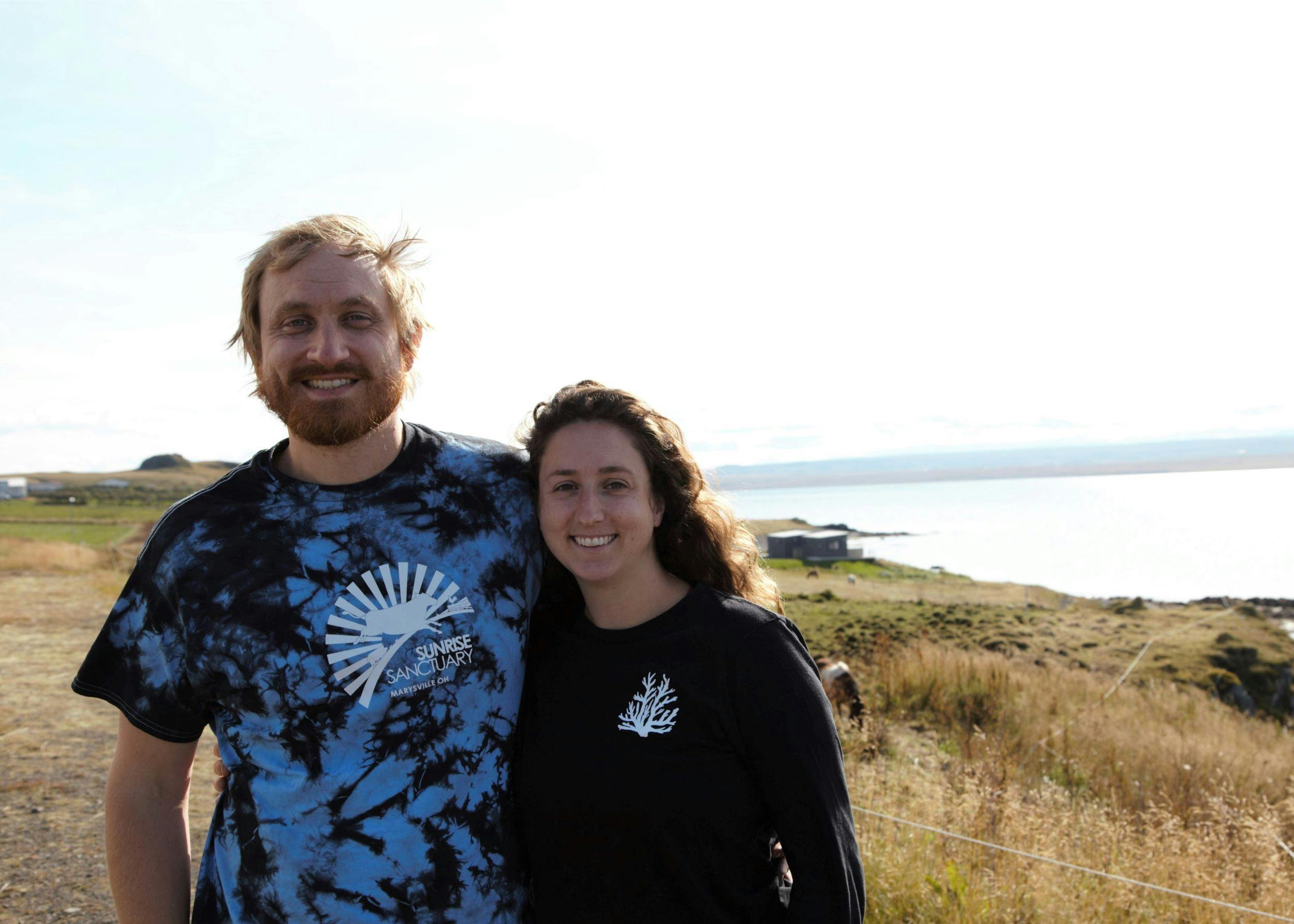
Iceland travel advice - from one tourist to another
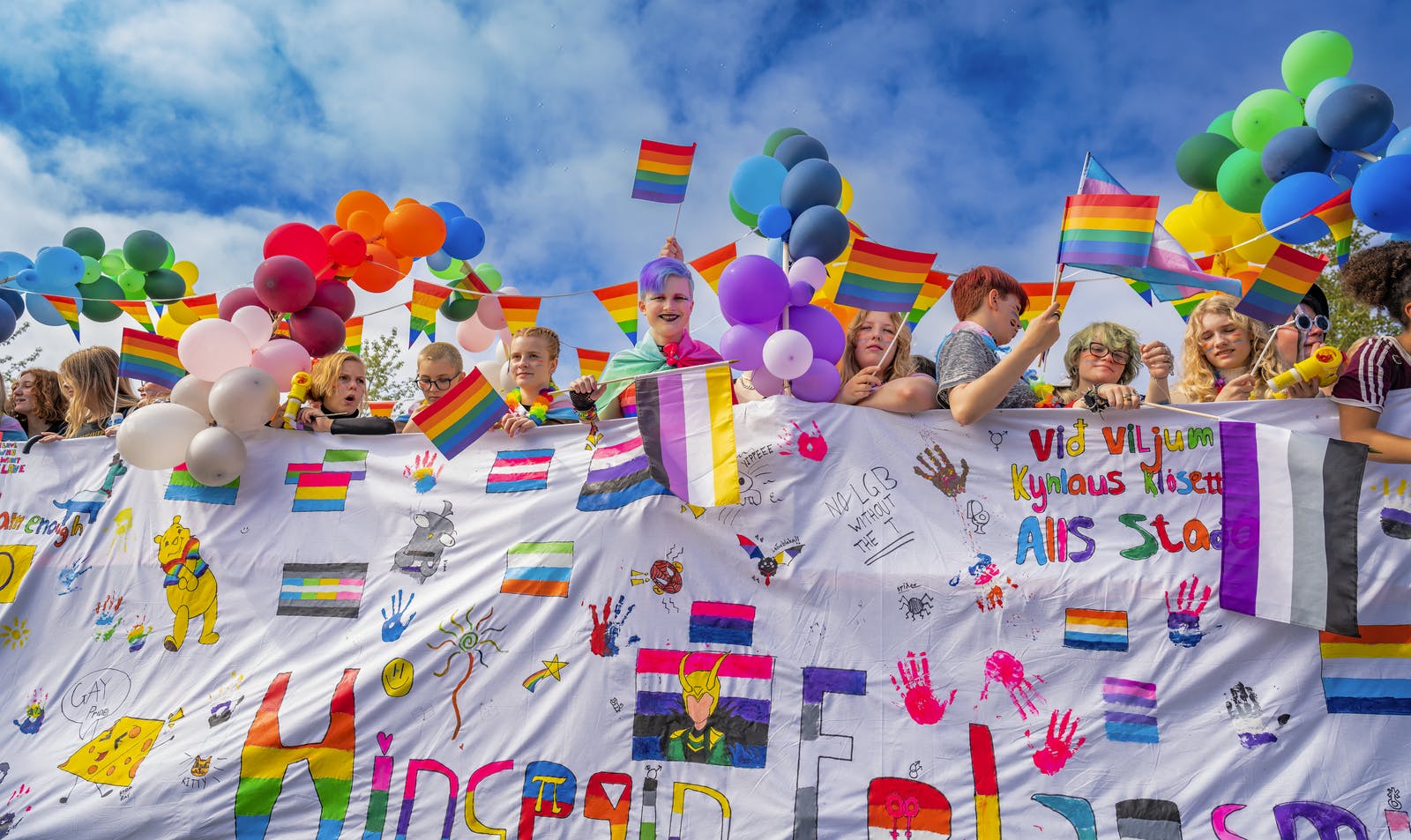
LGBT+ Travel in Iceland

How to Get to Iceland
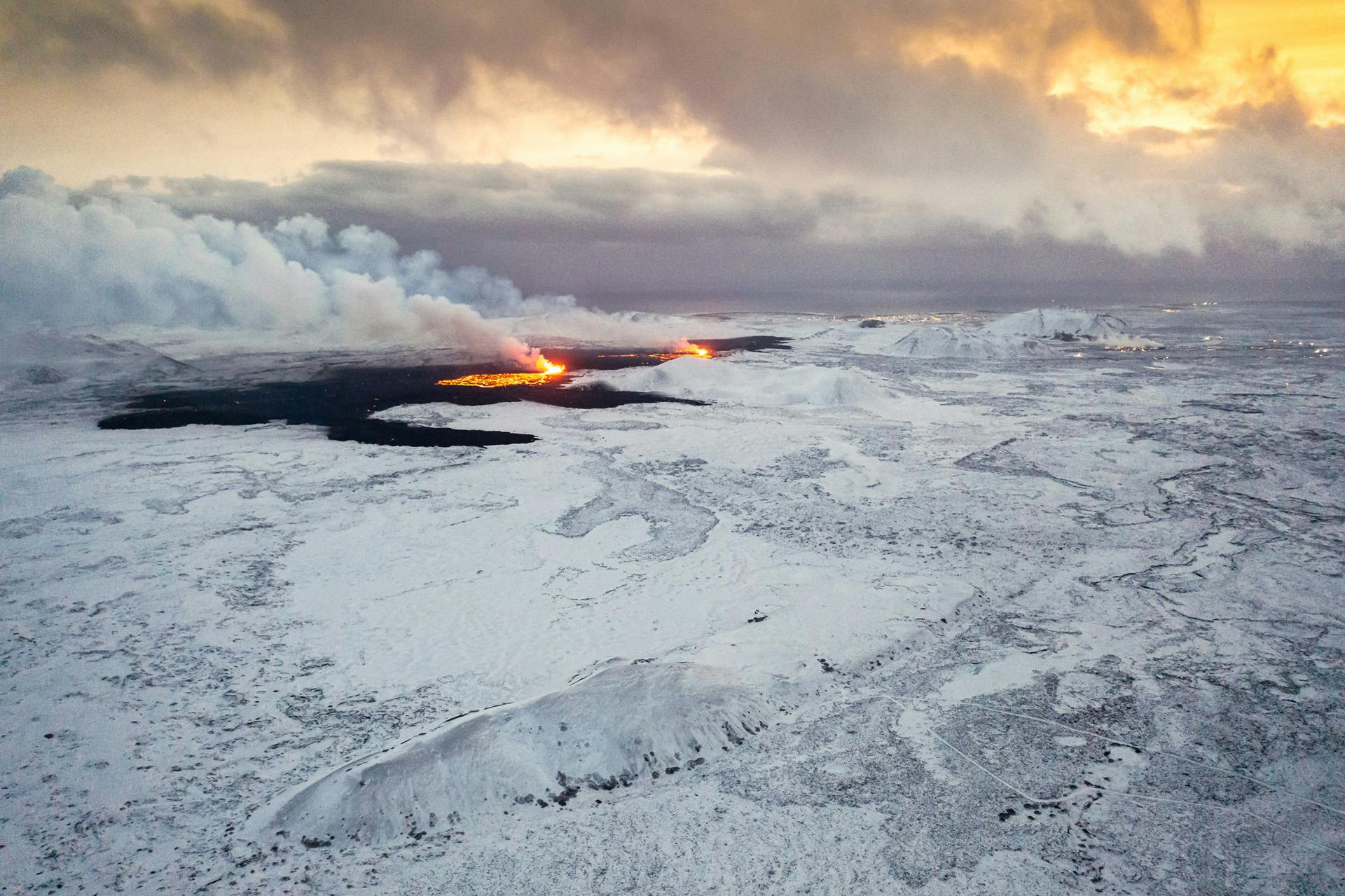
Volcanic eruption on the Reykjanes Peninsula
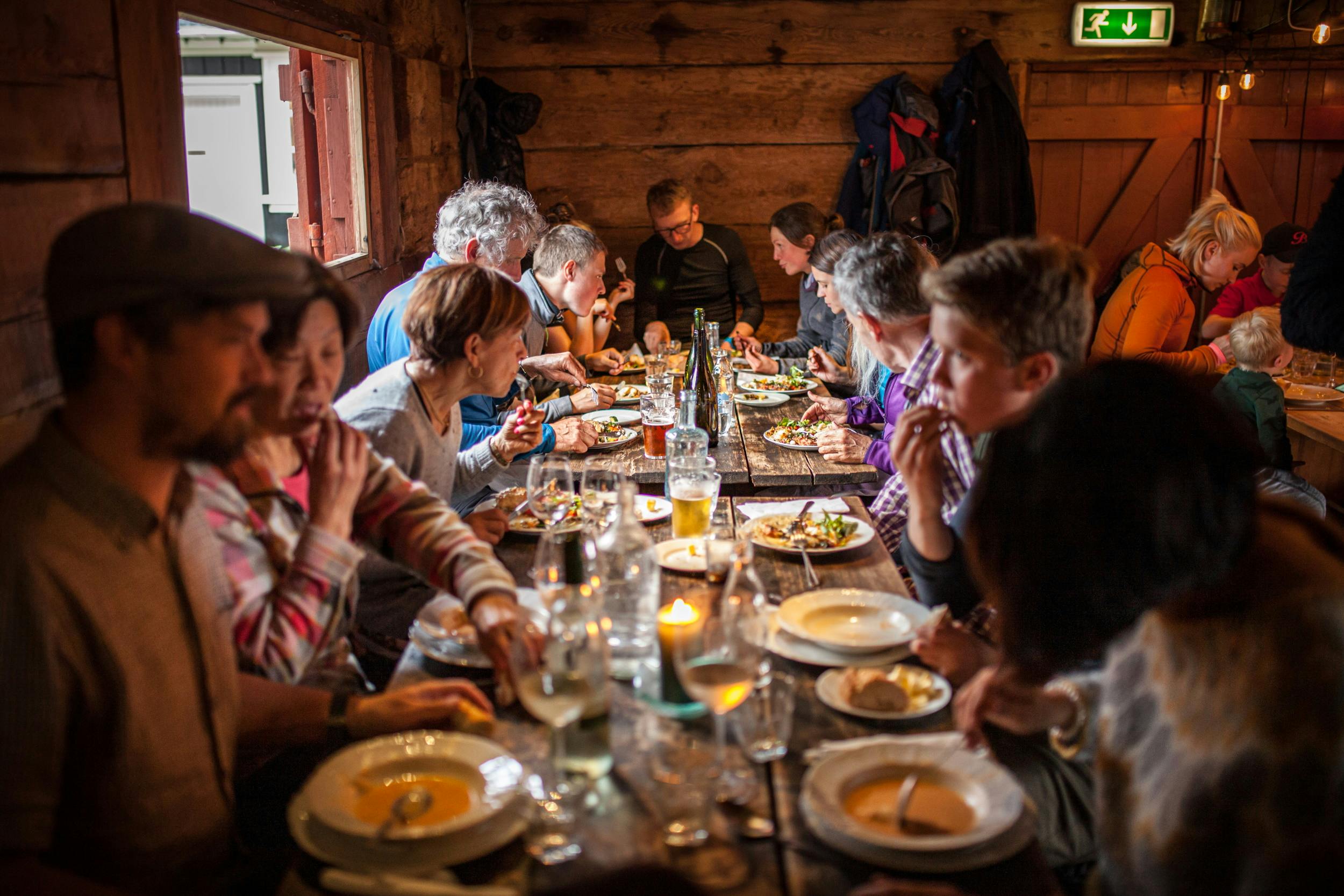
16 places of Character and Charm to eat for Every Corner of Iceland
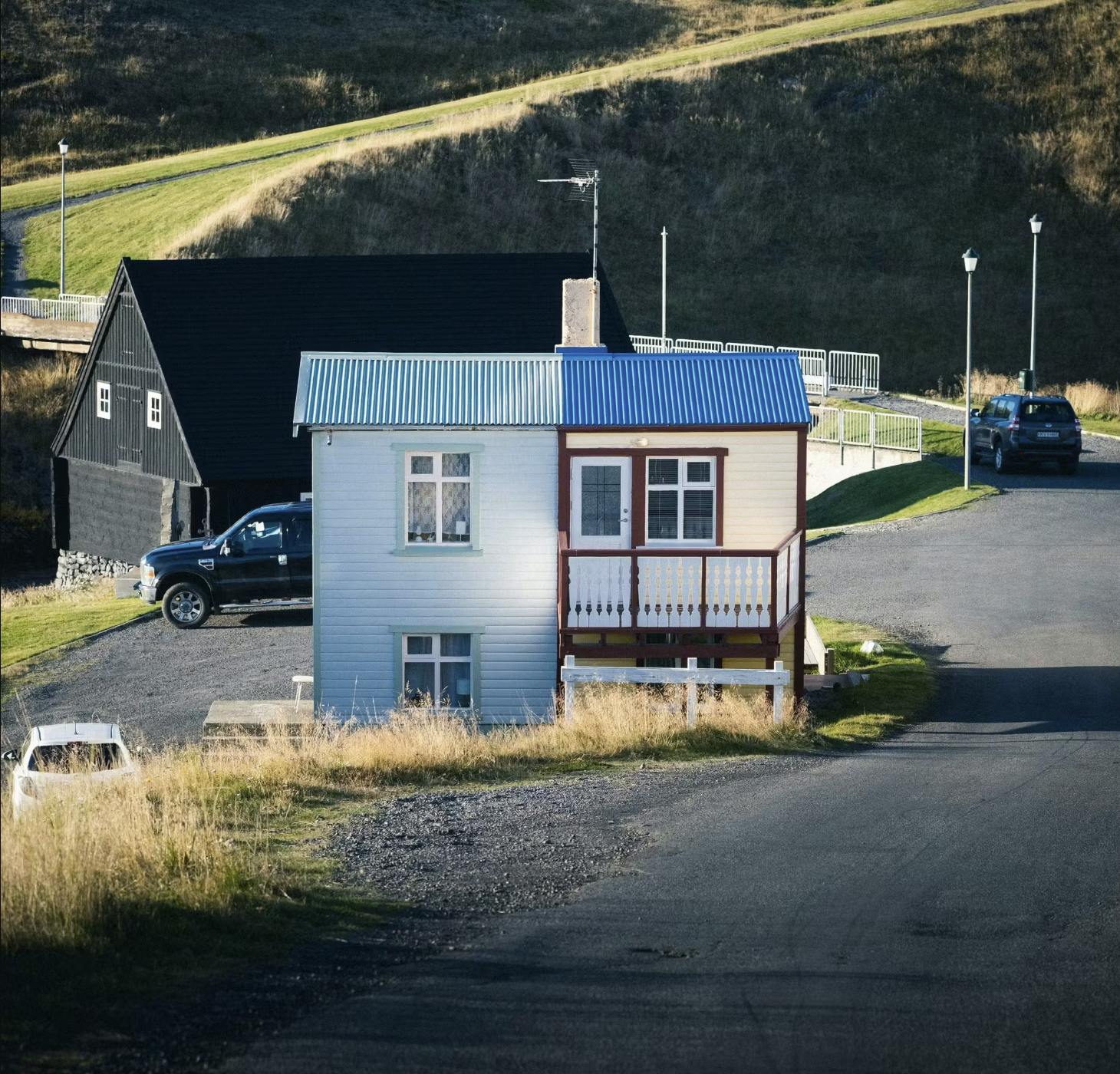
Minibreak North Iceland
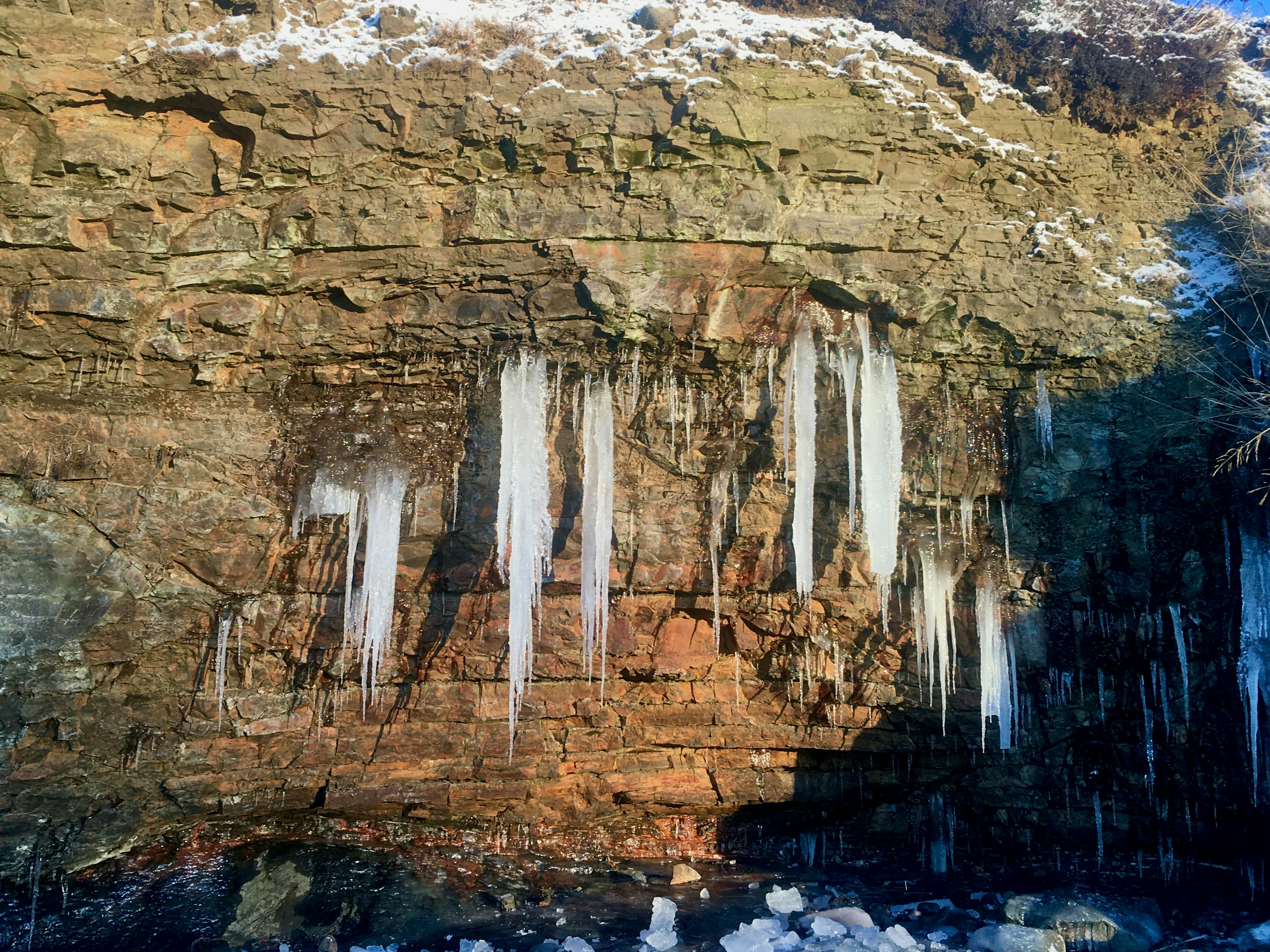
Reykjavík on the Rocks - Five geosites in the Capital Region
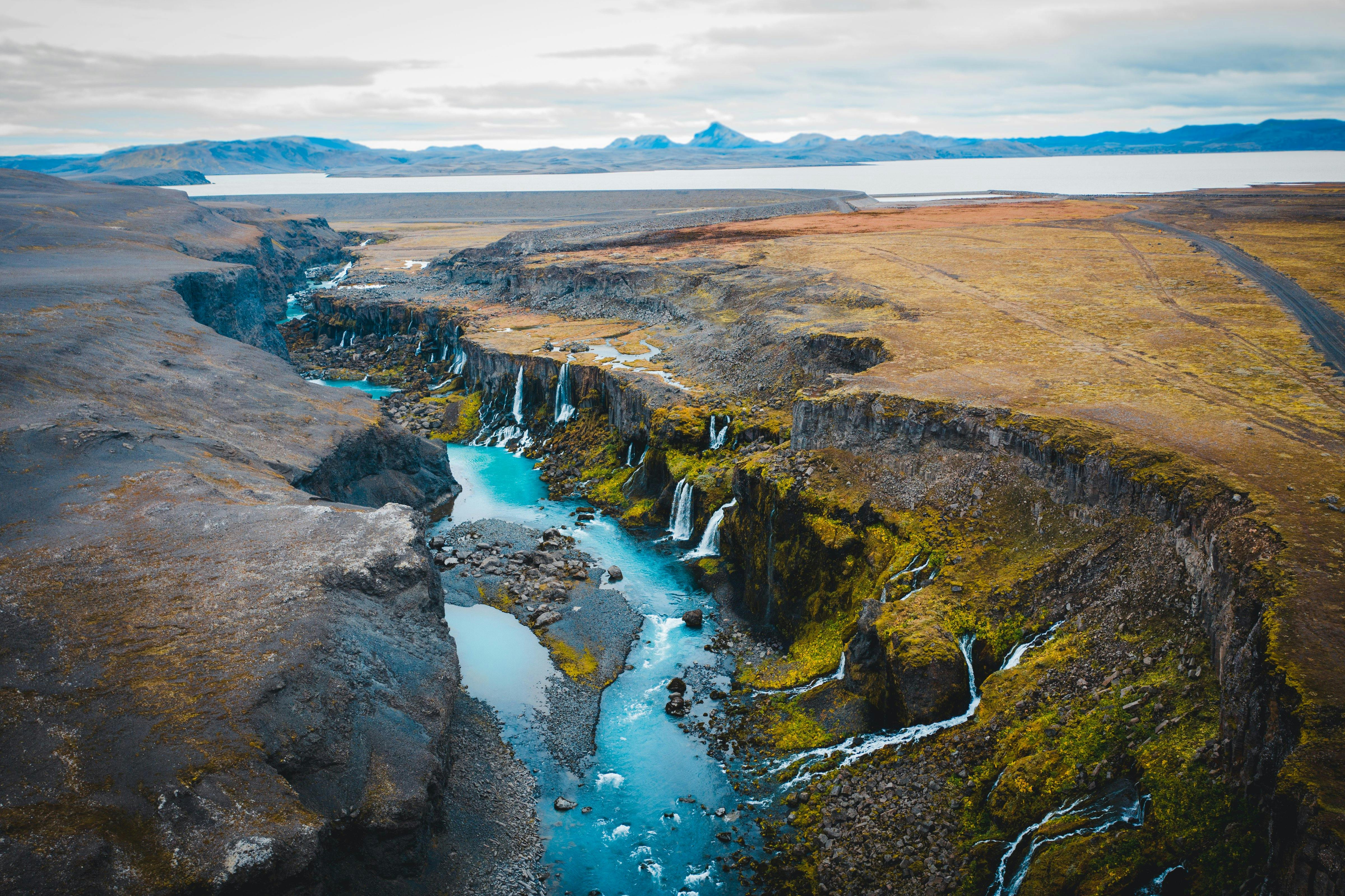
Nature's Alchemy: Exploring Iceland's geosites
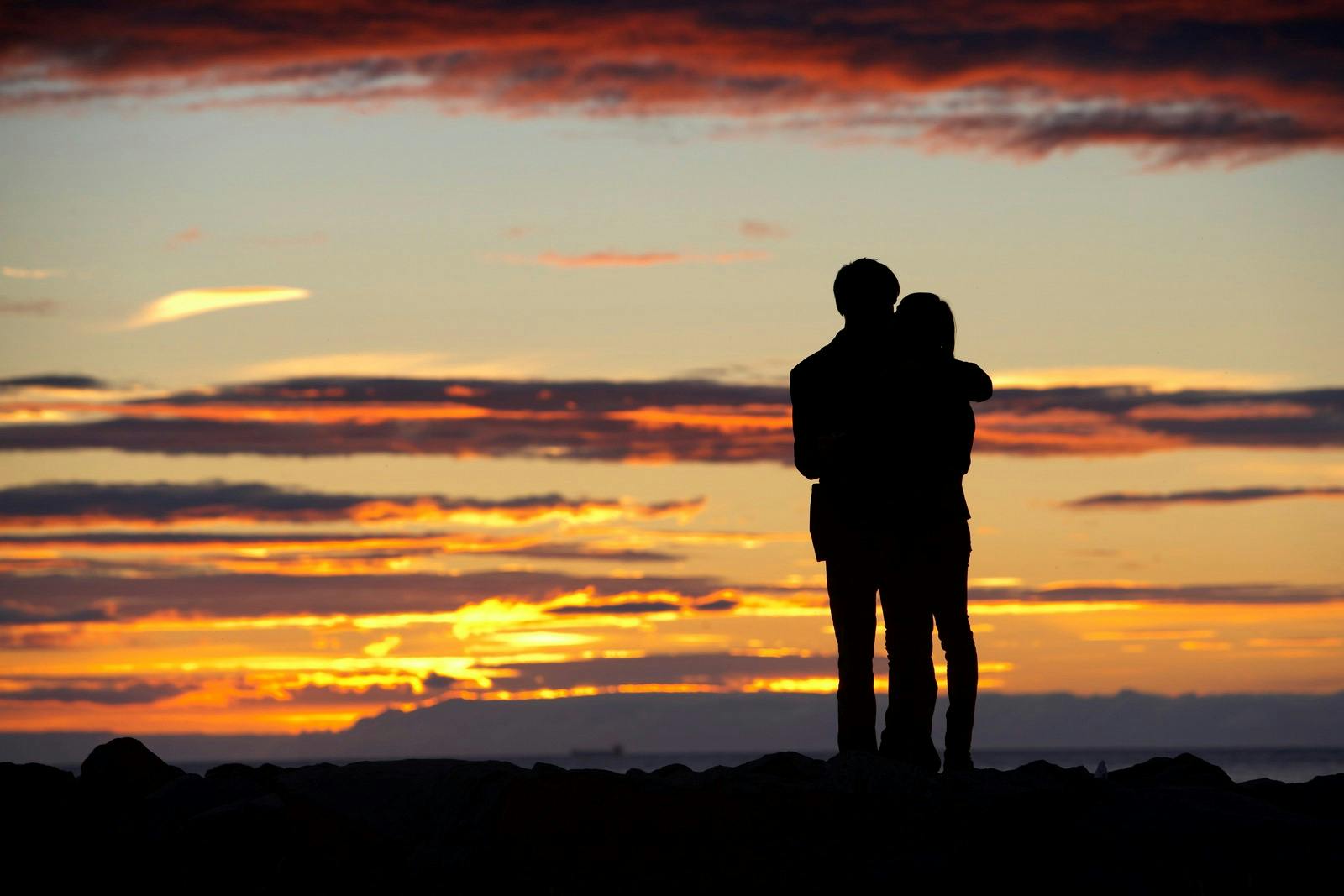
Iceland for lovebirds
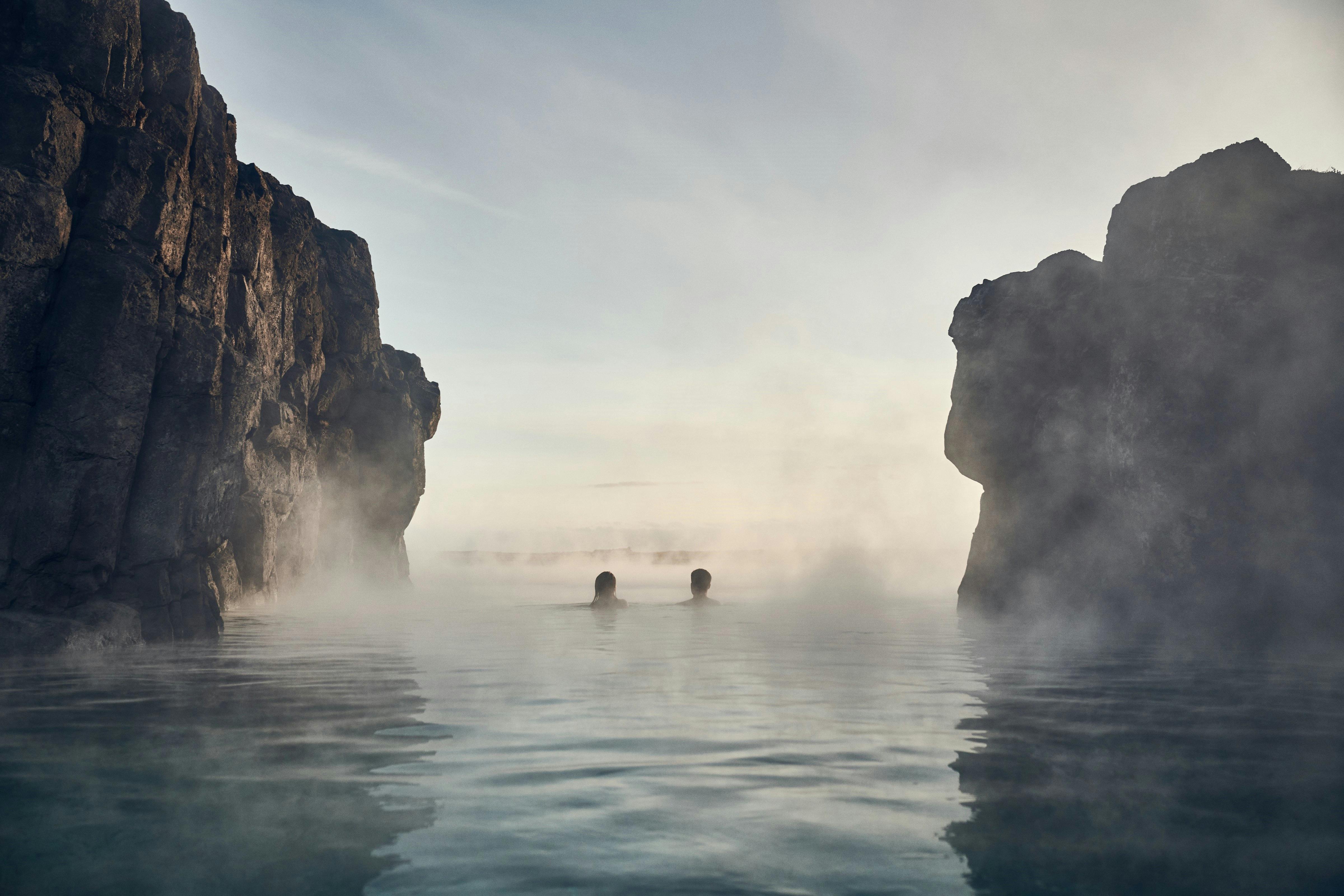
The Reykjavík Triangle of Hot Resorts
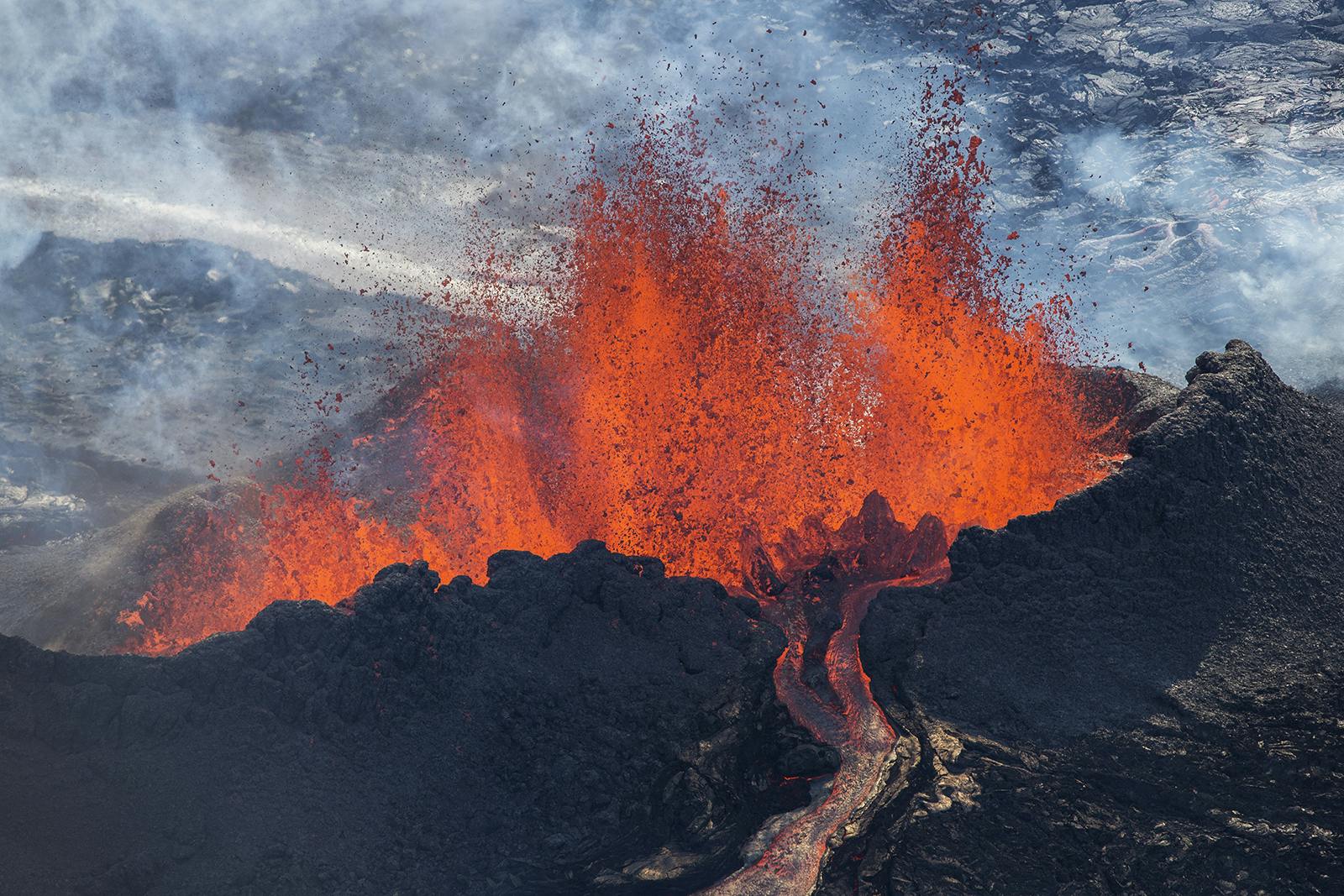
Volcanoes of Iceland
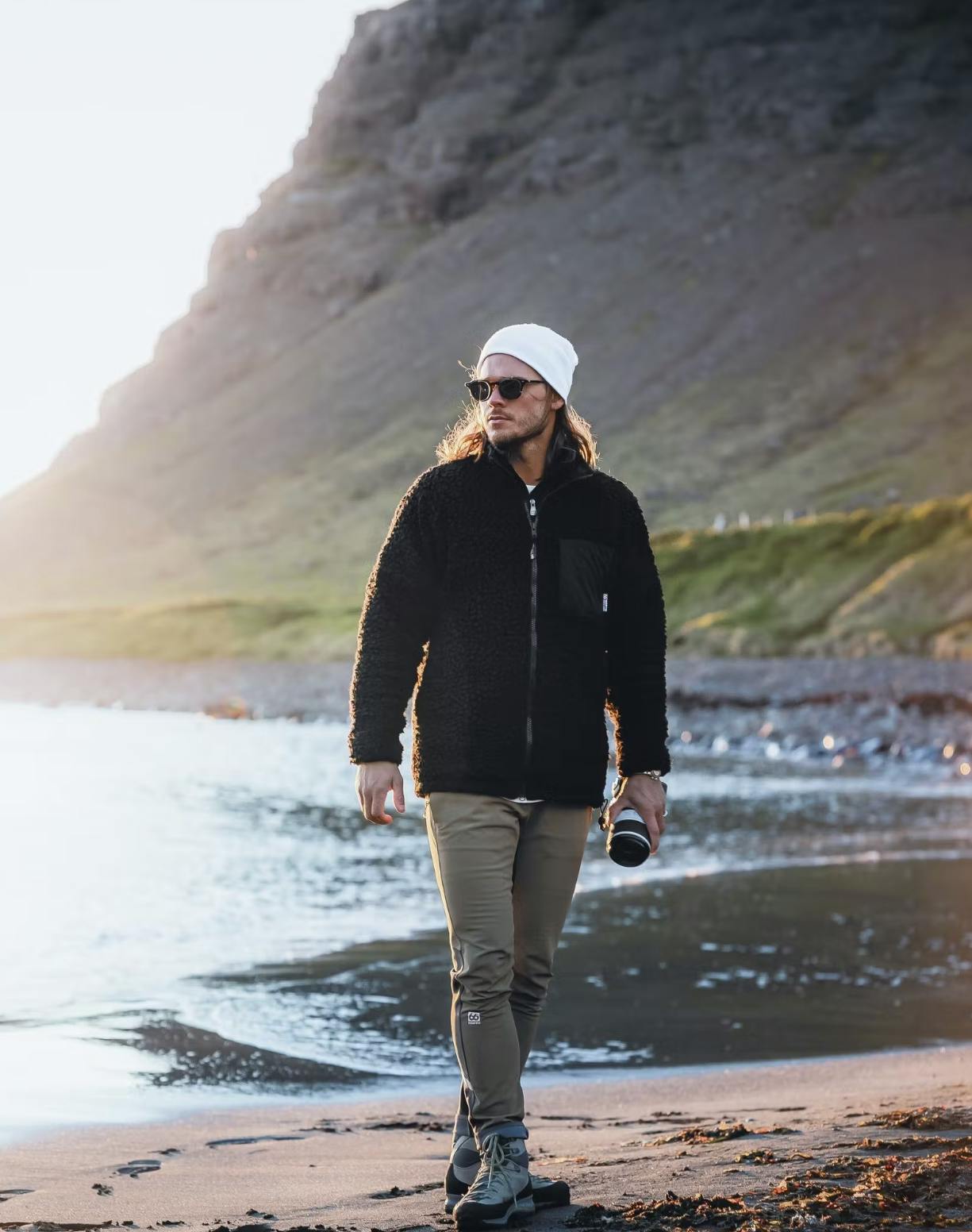
What to wear in Iceland
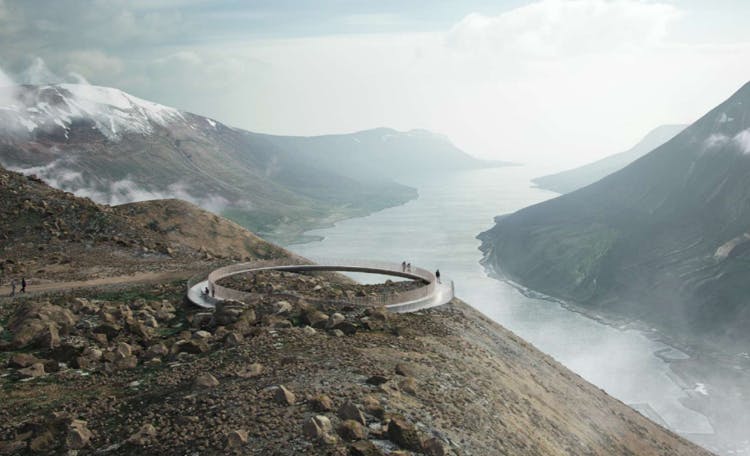
New destinations in 2024

Mapping the best places for food and drink in Reykjavik

How to practice your hobby in Iceland
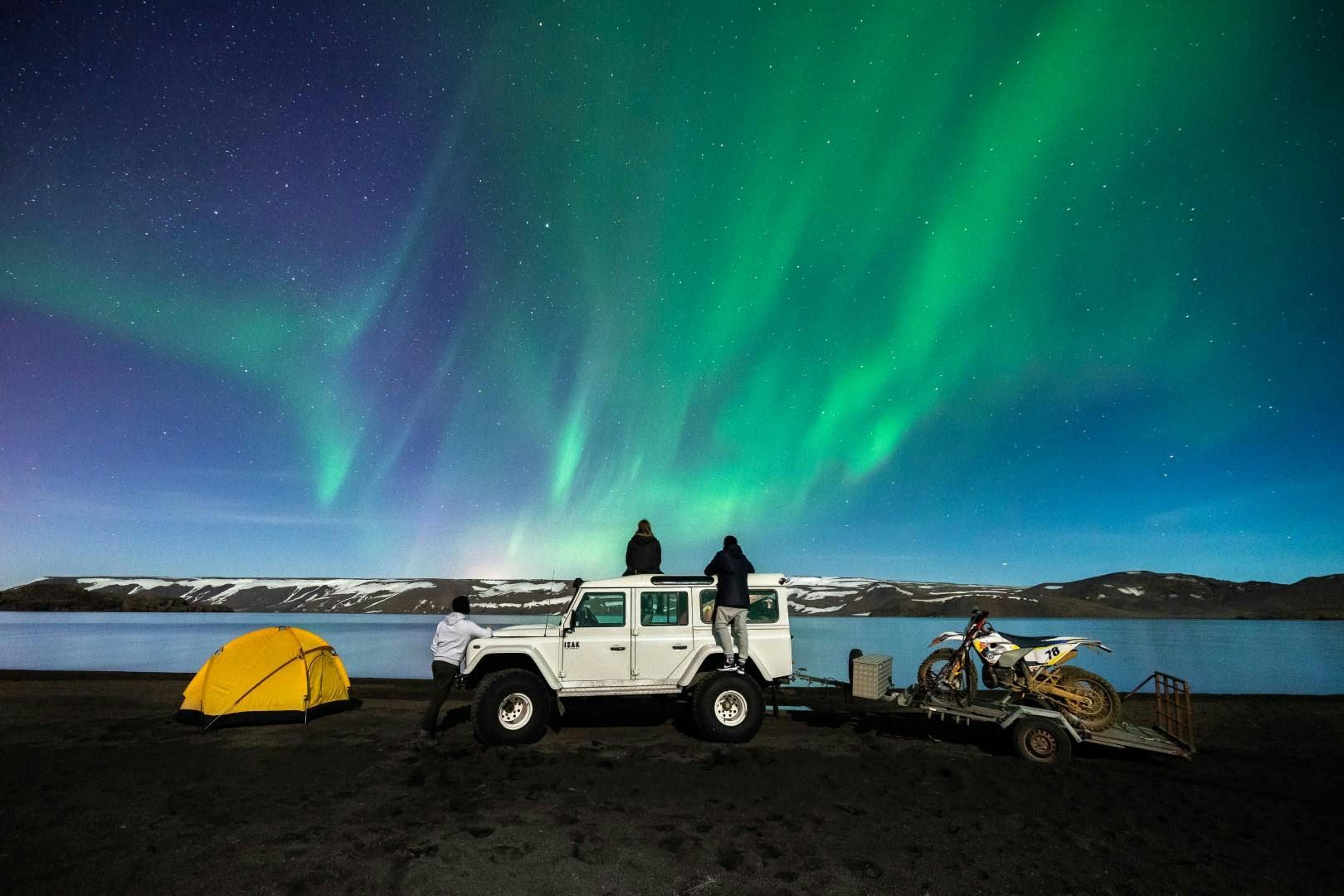
Camping in Iceland
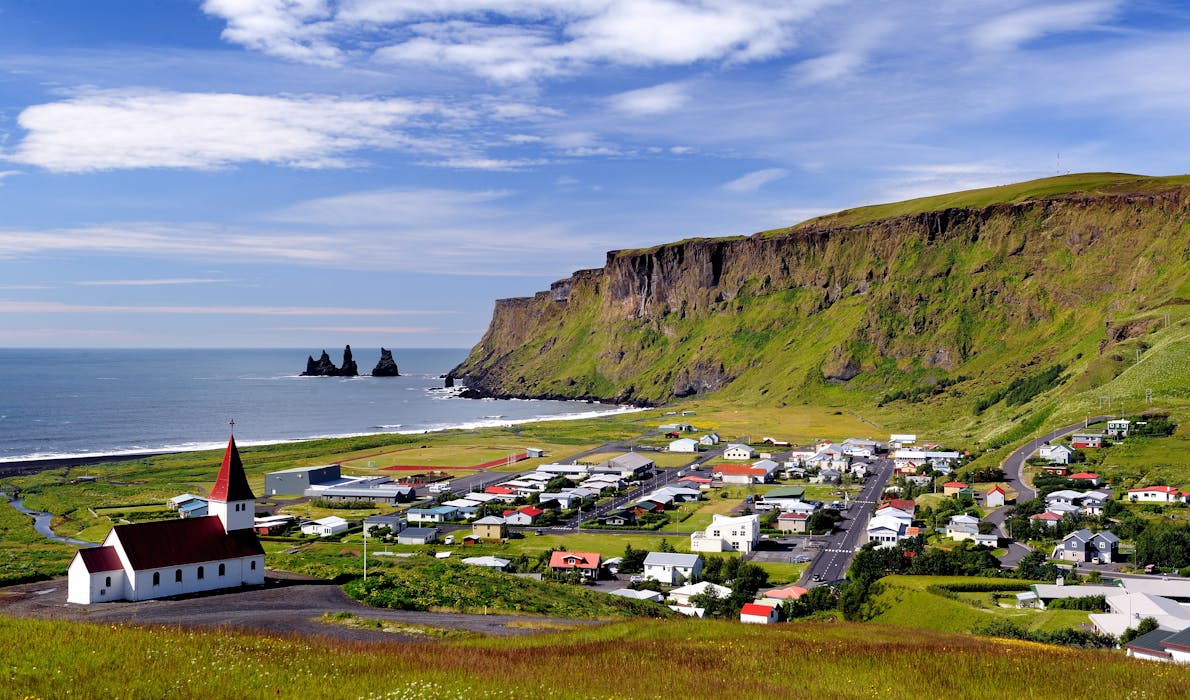
Vík: The idyllic Icelandic village
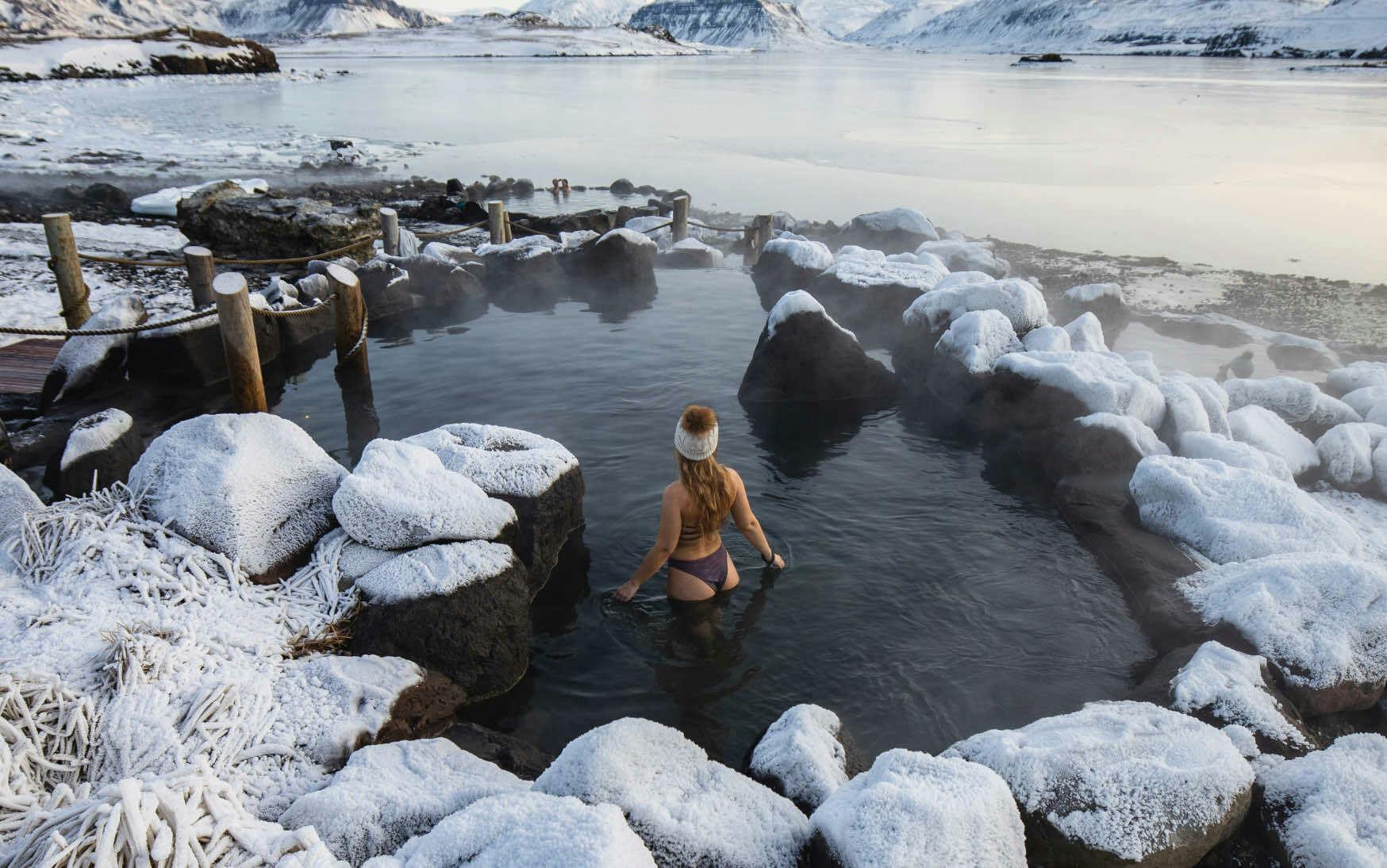
A day-trip from Reykjavík: Discover the Whale Fjord

Key Locations for Viking History in Iceland
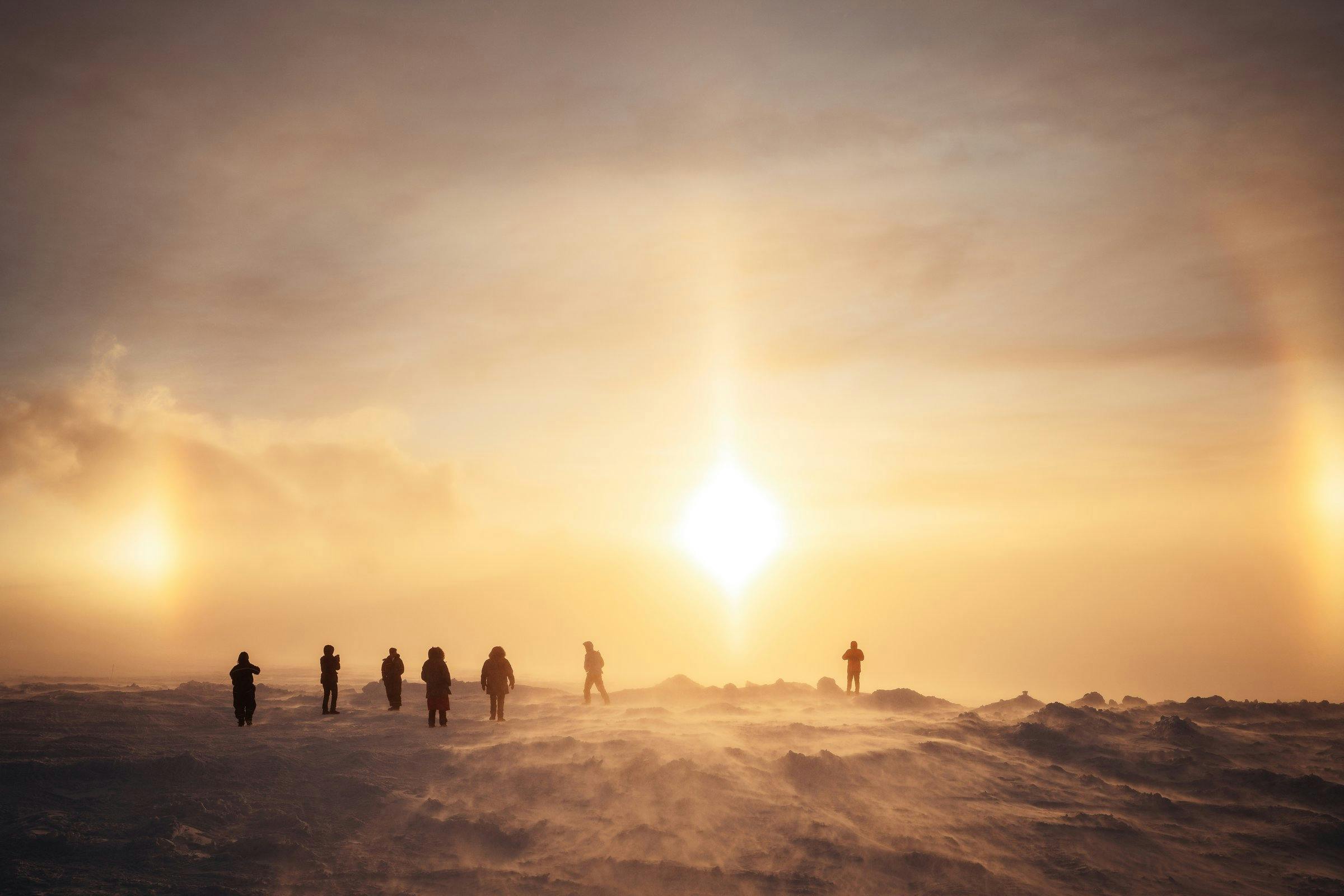
Iceland's Three UNESCO World Heritage Sites
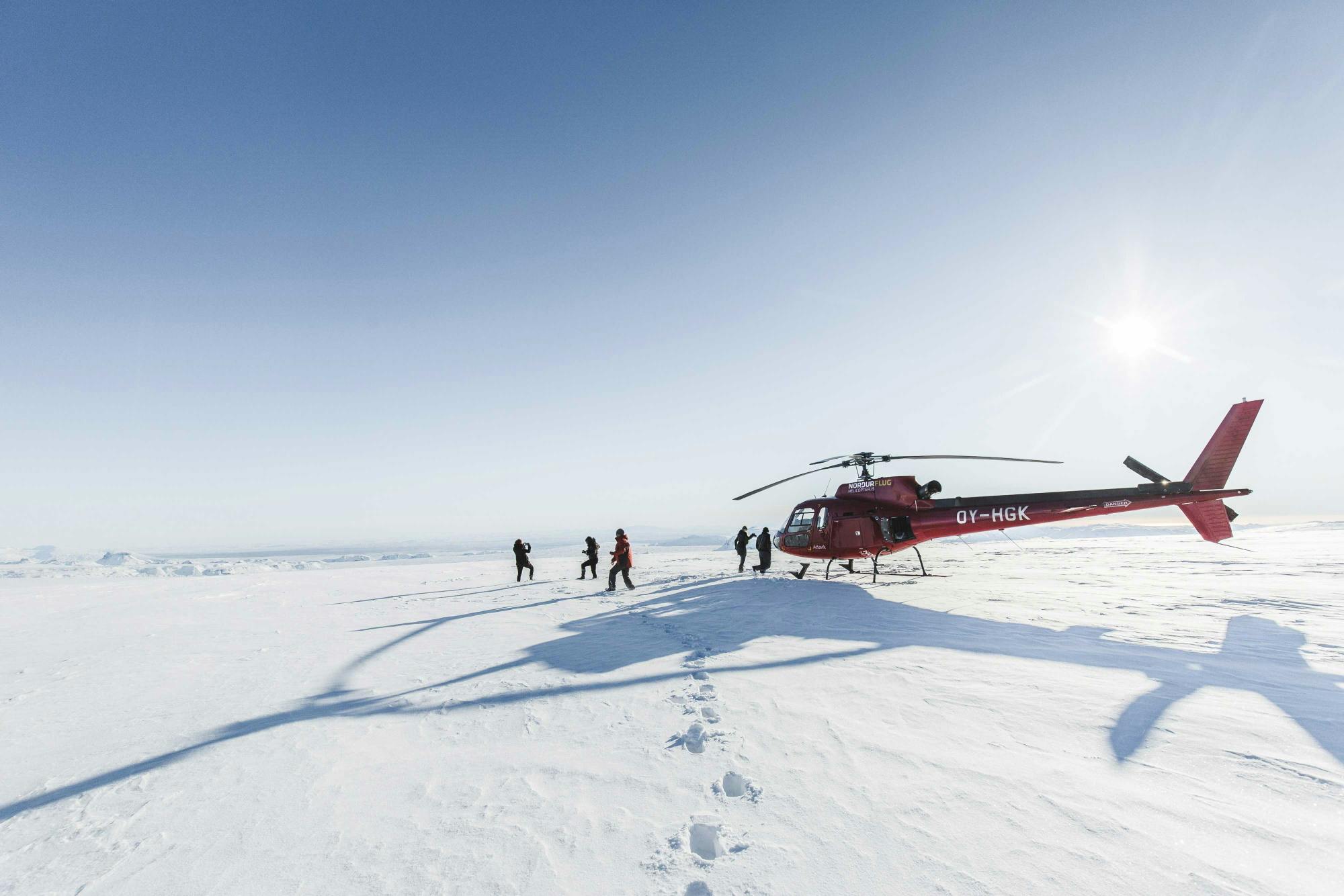
Incredible travel experiences money can indeed buy
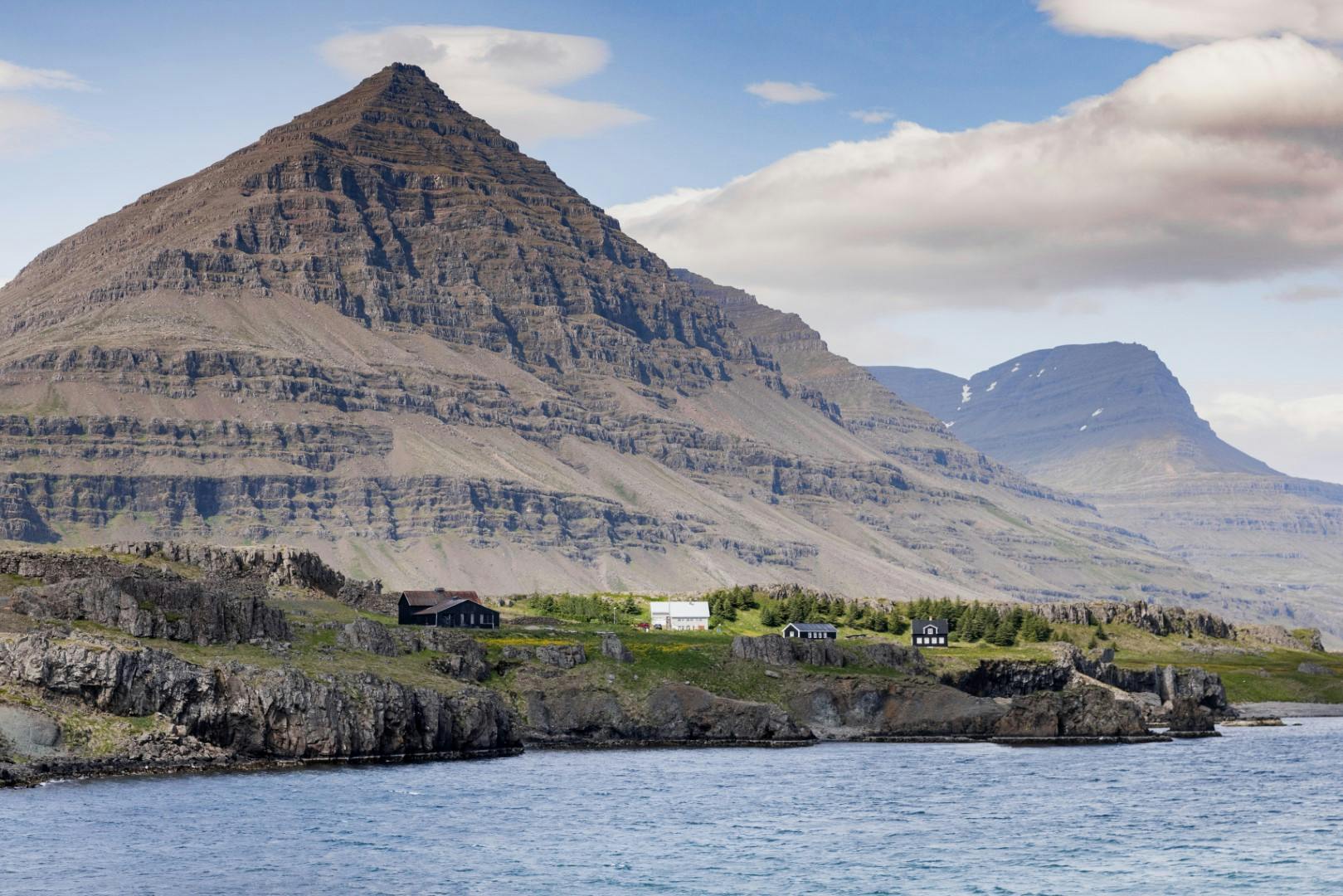
Around Iceland in 14 days
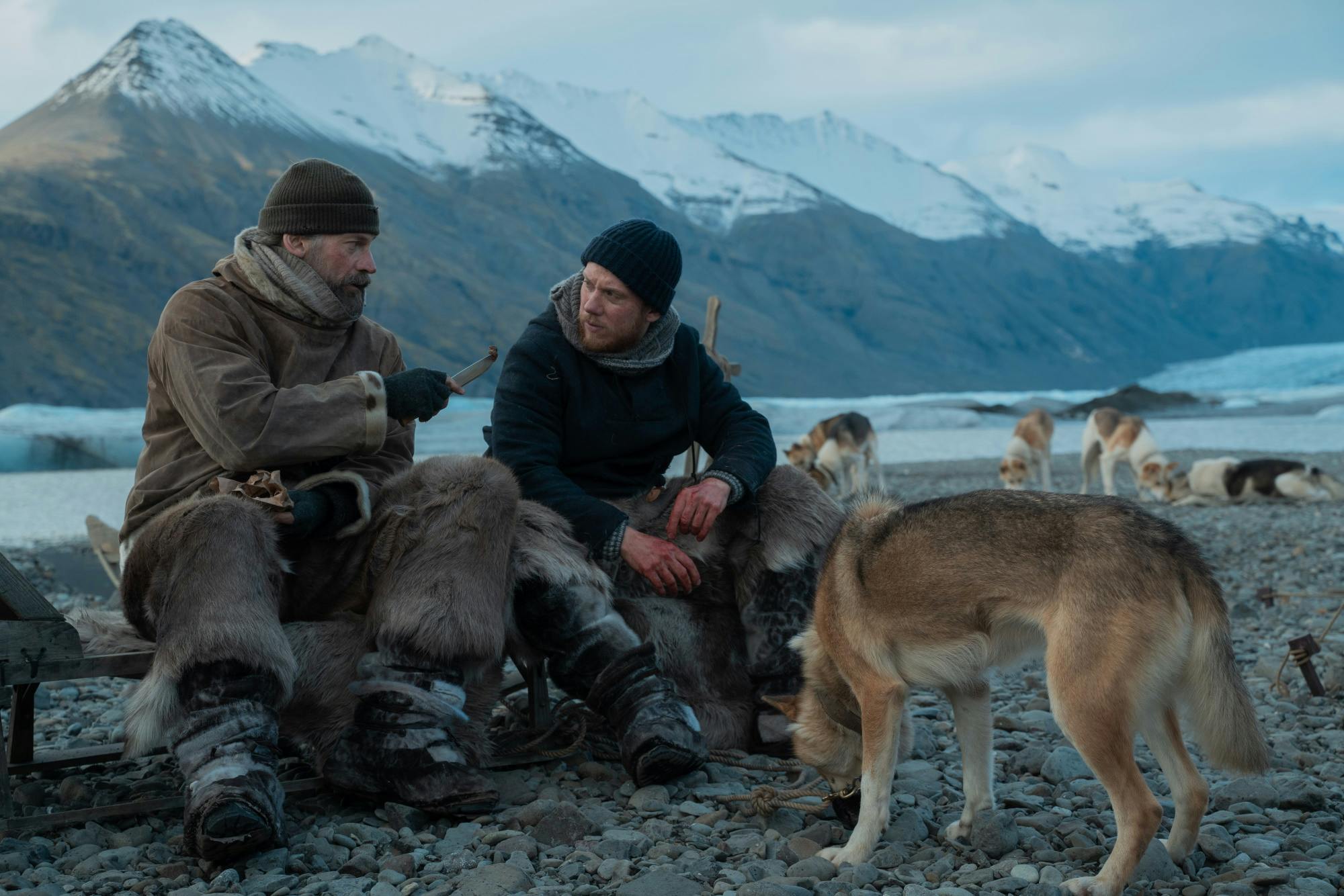
Famous film sights in Iceland
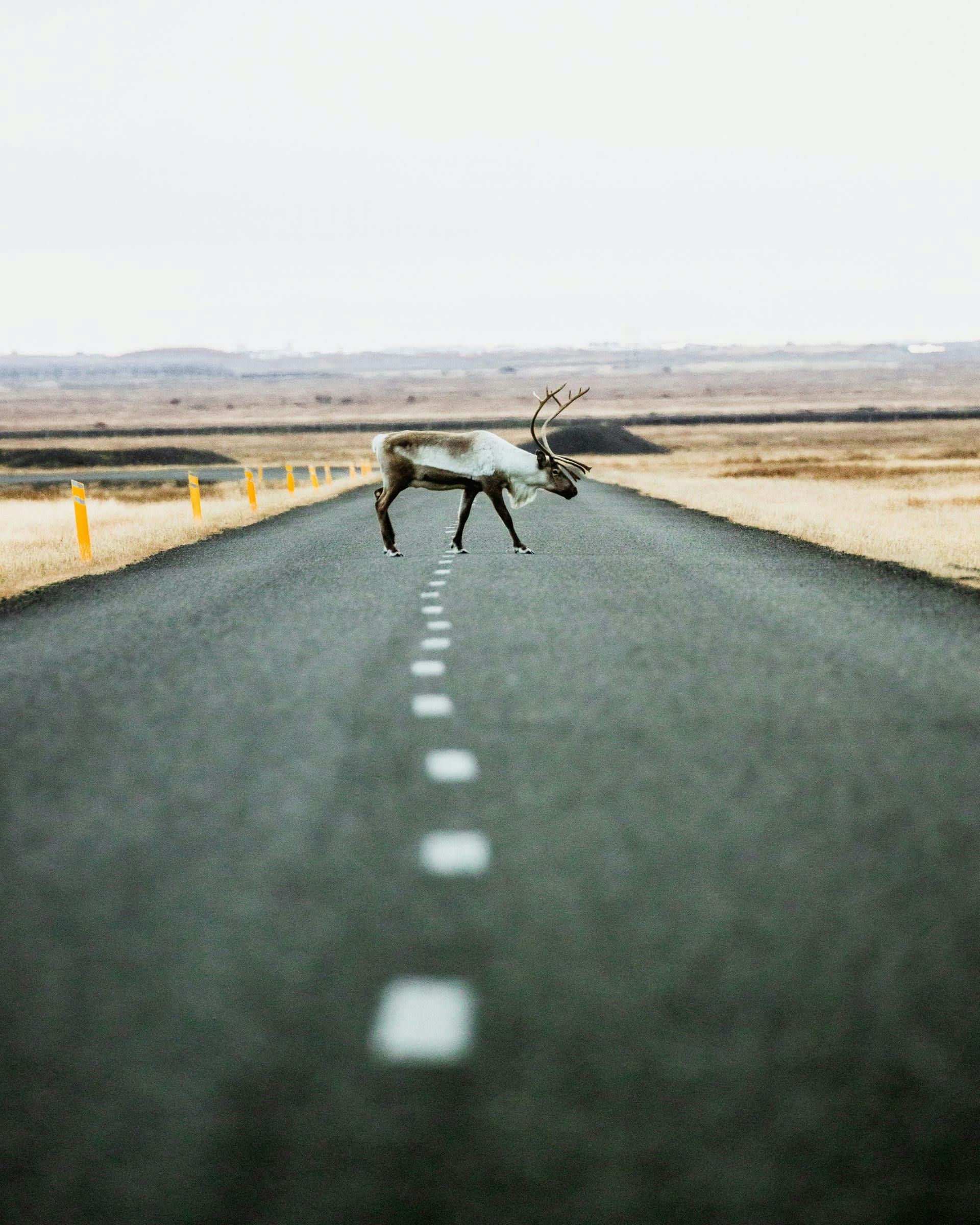
The Eastfjords
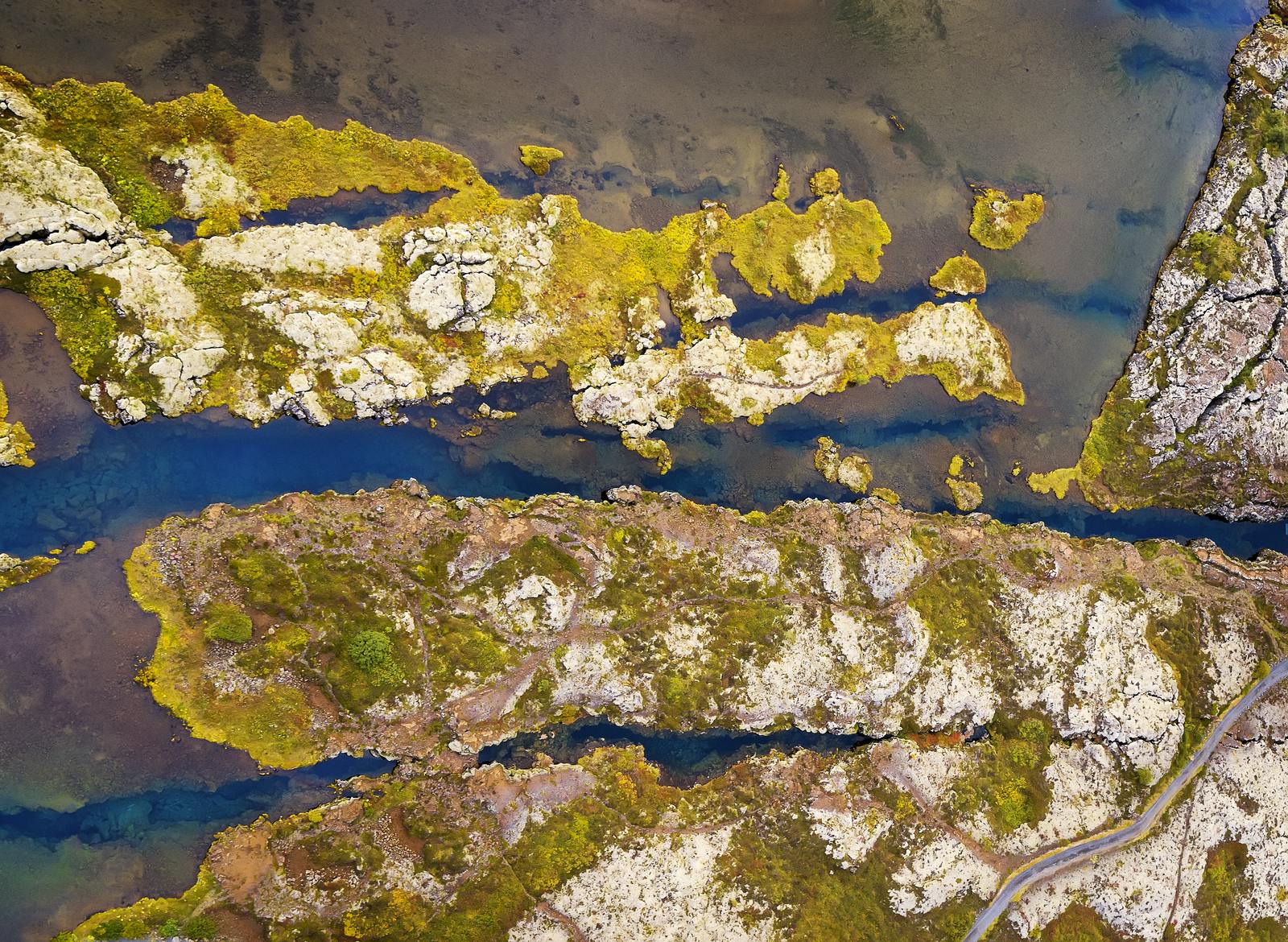
Safe travel in Iceland
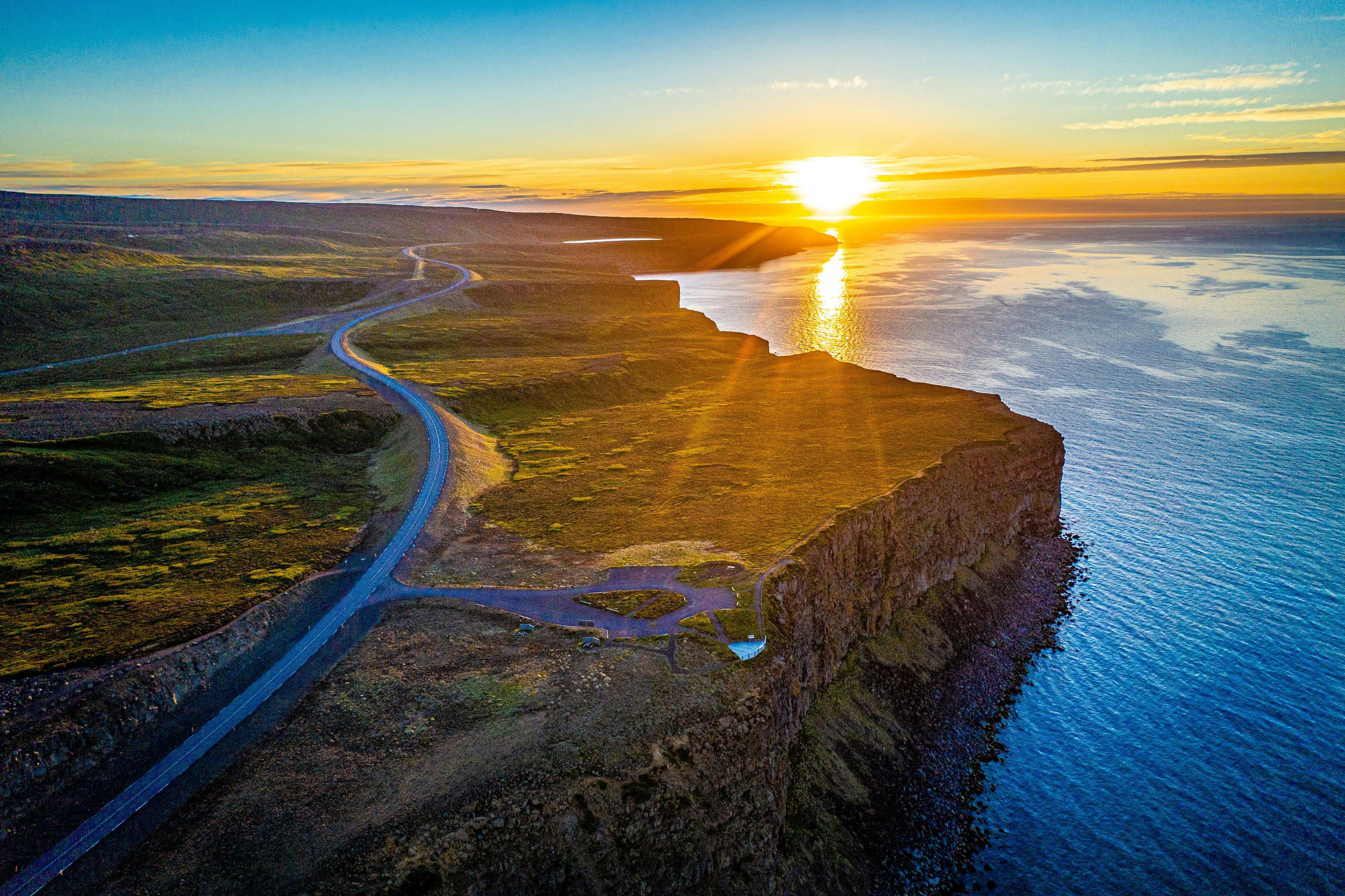
Arctic Coast Way
_Diamond.jpg?ixlib=gatsbyFP&auto=compress%2Cformat&fit=max&w=2000&h=1333)
The Diamond Circle
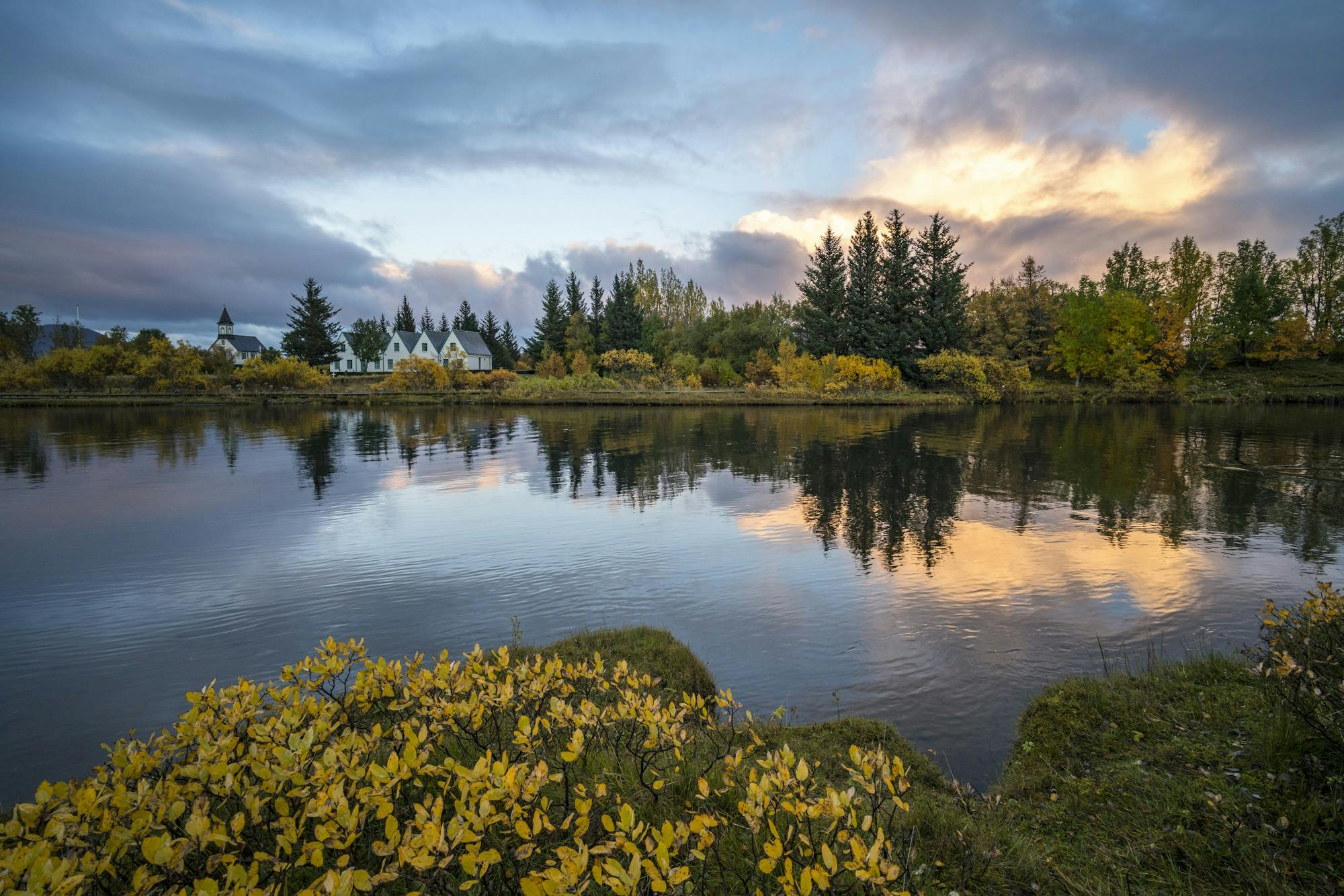
Þingvellir National Park
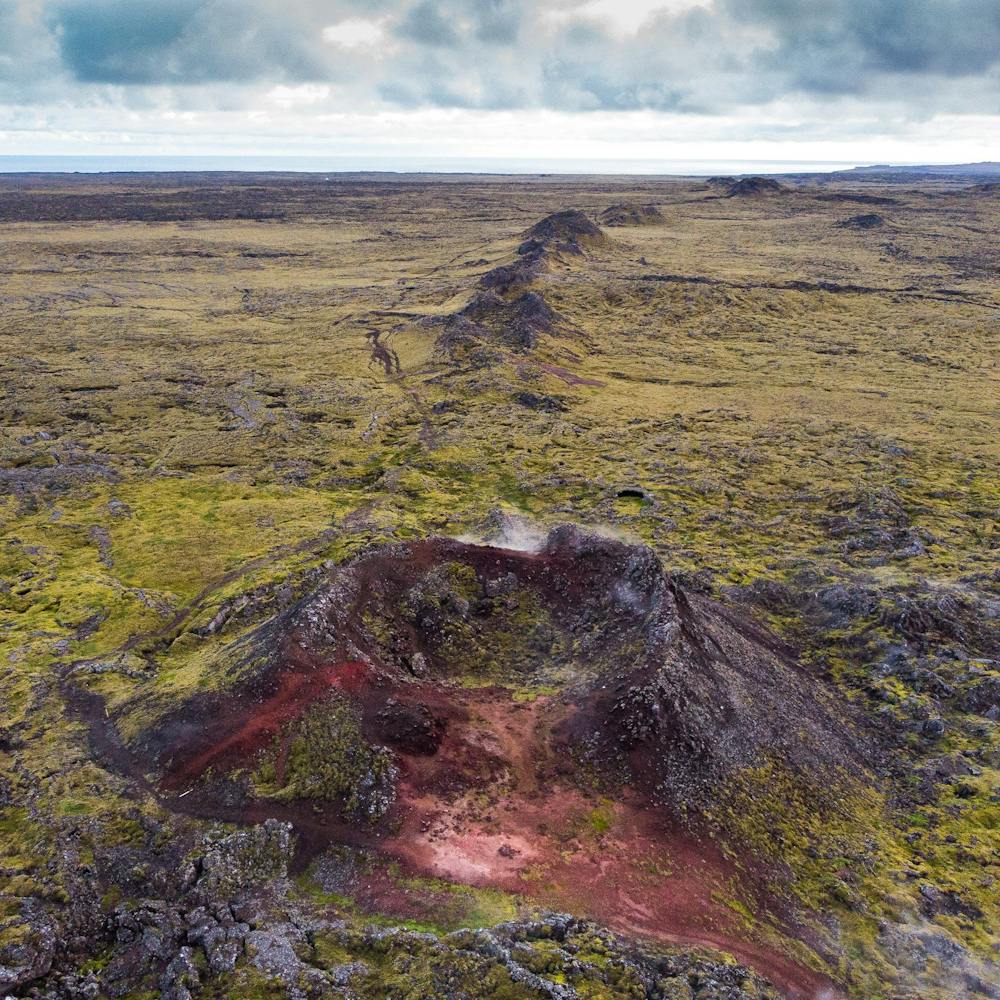
VOLCANIC ACTIVITY ON THE REYKJANES PENINSULA
Since 2021, the Reykjanes Peninsula has witnessed a surge in seismic activity, including several volcanic eruptions. Despite this, Iceland has remained a safe and open destination for travelers. For a detailed look into the recent volcanic activities and their safety implications, the Icelandic Meteorological Office offers insights through this informative video.
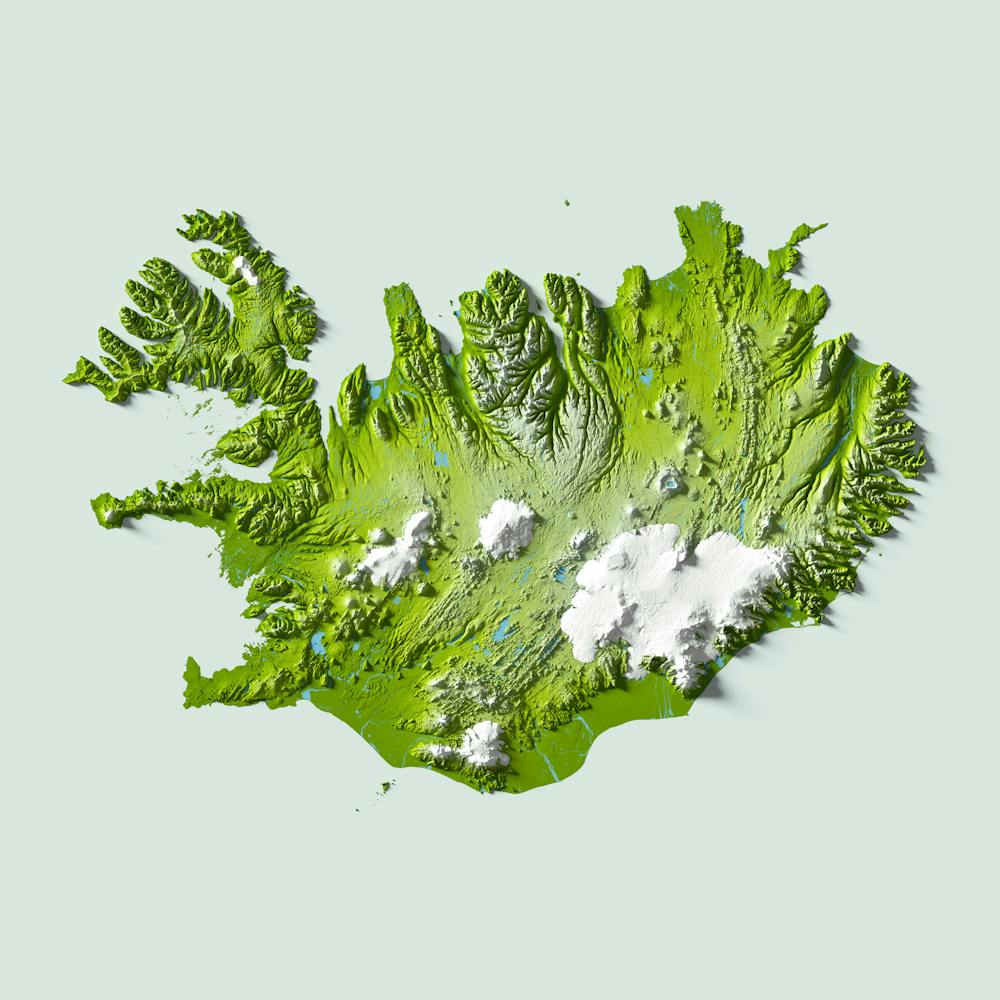
Embark on the journey of a lifetime in Iceland!
With our new interactive map feature, you can easily plan every step of your adventure. From cozy accommodations to unforgettable activities, the possibilities are endless. Dream big, plan smart, and chart your path with our personalized itinerary feature. Make the most of every moment in Iceland!
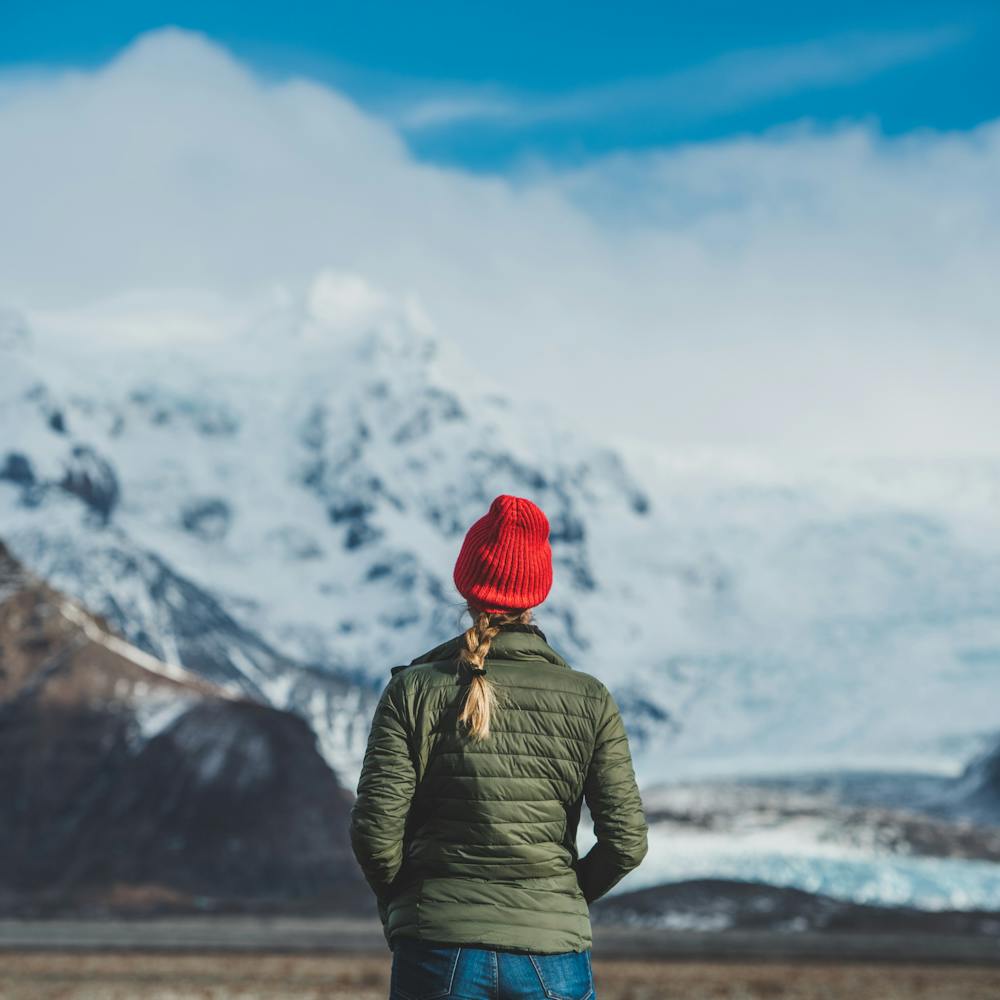
Take the Icelandic Pledge
Are you visiting Iceland? Be a responsible tourist and take the Icelandic pledge. Encourage your friends to do the same!
Looking for things to do?
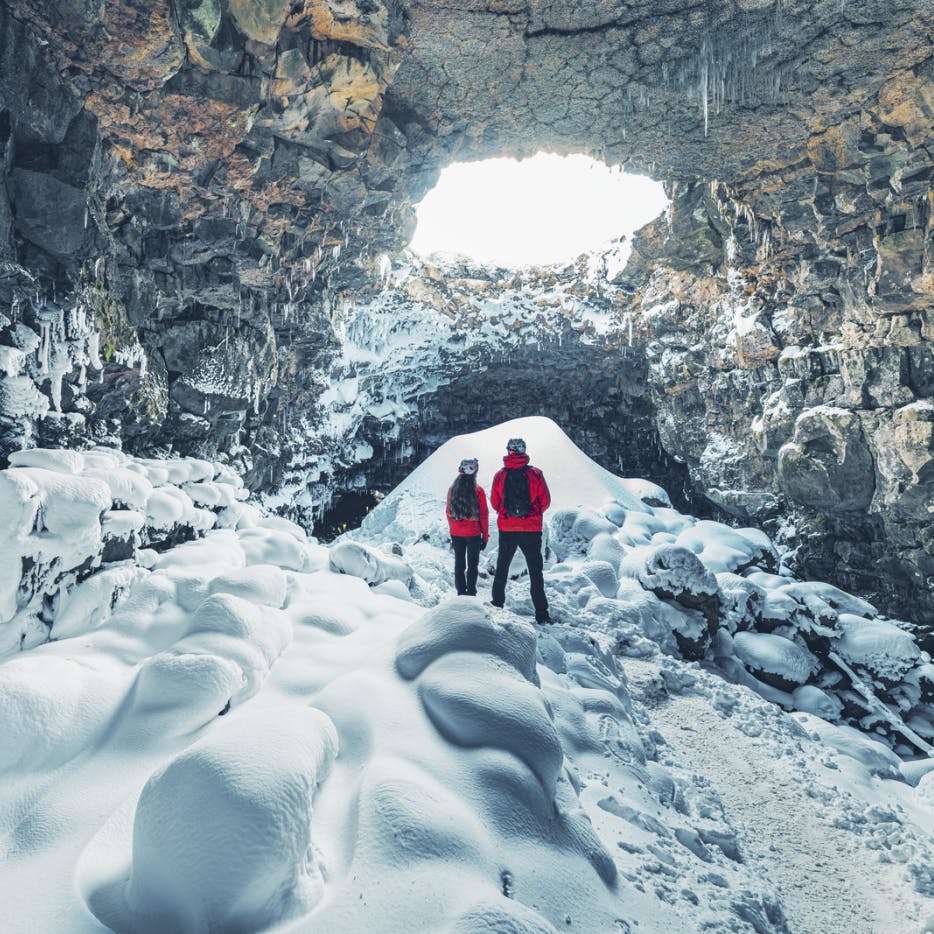
Regions of Iceland
Iceland is typically divided into 7 different geographical regions. Each region differs slightly in respect to culture and landscapes, but are uniquely Icelandic. Find your favorite part of Iceland.
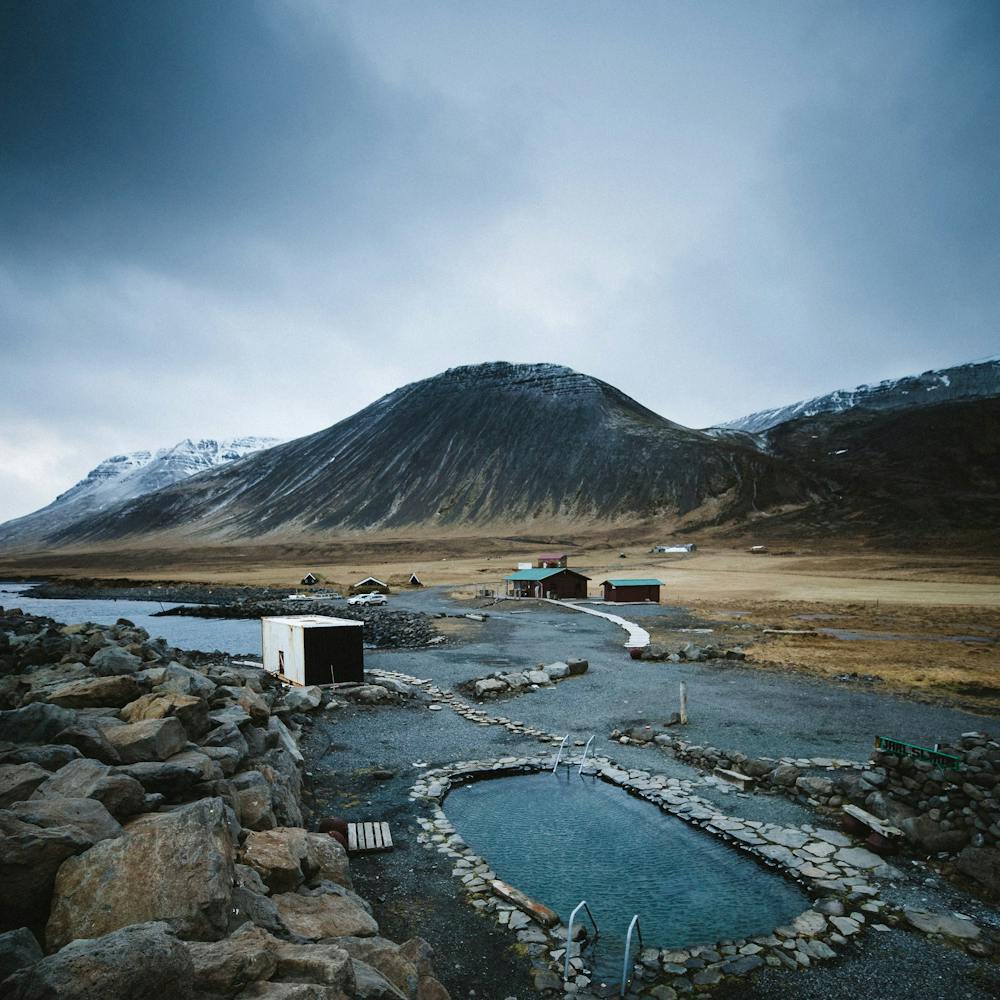
Iceland is a popular travel destination. Sometimes, certain places can be busier than others. Skip the hectic tourist traffic at the most popular destinations and plan your trip to make the most of your time in Iceland. Use our tourist counter to see peak visitor times and plan accordingly.
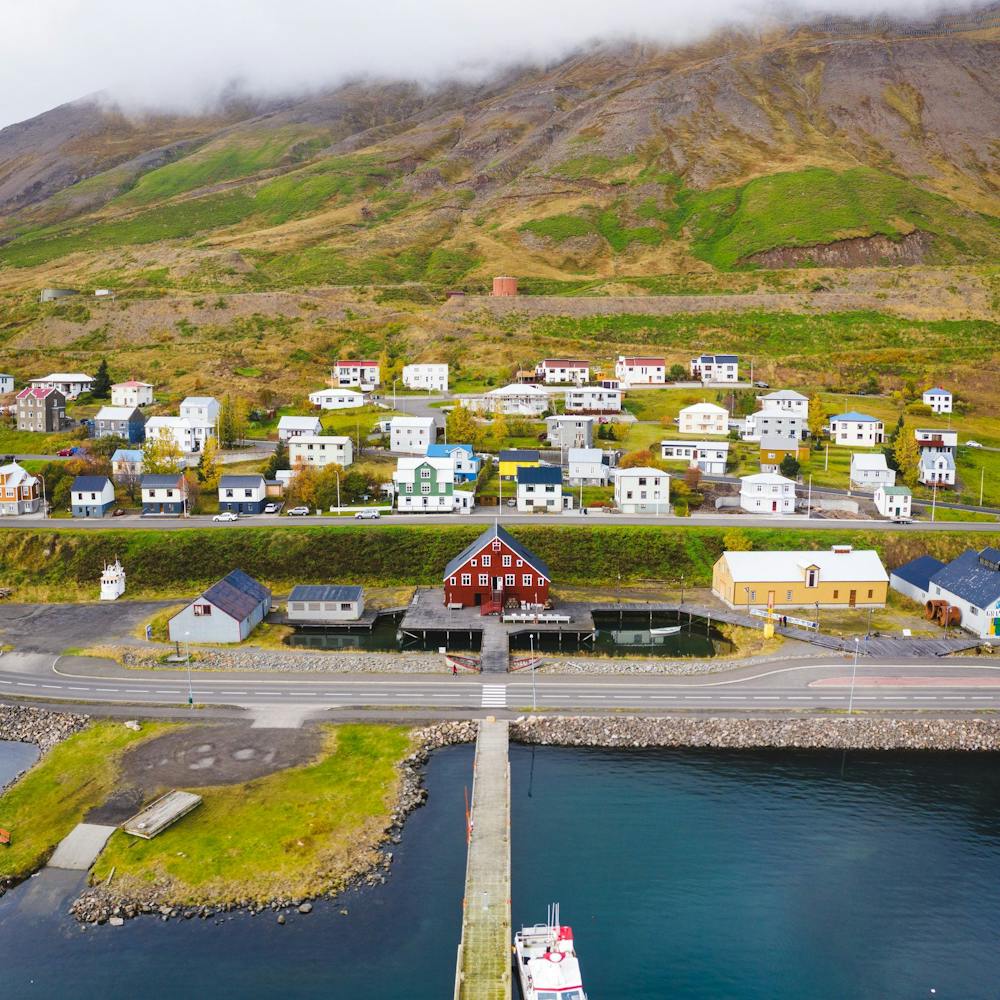
Appreciate our towns & villages
Did you know that there are over 100 towns and villages to explore throughout Iceland? We encourage you to stop and look into these charming, beautiful, and often quirky places. History, art, nature, local cuisine, and year-round swimming pools abound. You might be surprised at what you find!
Sign up for our mailing list
Stay connected and find out what is happening in Iceland.
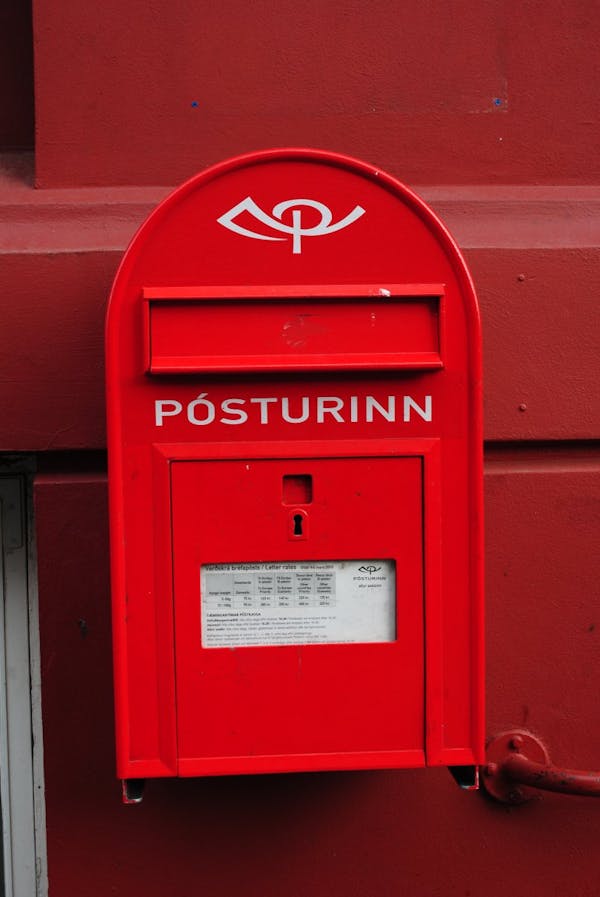
UK Edition Change
- UK Politics
- News Videos
- Paris 2024 Olympics
- Rugby Union
- Sport Videos
- John Rentoul
- Mary Dejevsky
- Andrew Grice
- Sean O’Grady
- Photography
- Theatre & Dance
- Culture Videos
- Fitness & Wellbeing
- Food & Drink
- Health & Families
- Royal Family
- Electric Vehicles
- Car Insurance Deals
- Lifestyle Videos
- UK Hotel Reviews
- News & Advice
- Simon Calder
- Australia & New Zealand
- South America
- C. America & Caribbean
- Middle East
- Politics Explained
- News Analysis
- Today’s Edition
- Home & Garden
- Broadband deals
- Fashion & Beauty
- Travel & Outdoors
- Sports & Fitness
- Sustainable Living
- Climate Videos
- Solar Panels
- Behind The Headlines
- On The Ground
- Decomplicated
- You Ask The Questions
- Binge Watch
- Travel Smart
- Watch on your TV
- Crosswords & Puzzles
- Most Commented
- Newsletters
- Ask Me Anything
- Virtual Events
- Betting Sites
- Online Casinos
- Wine Offers
Thank you for registering
Please refresh the page or navigate to another page on the site to be automatically logged in Please refresh your browser to be logged in
The Independent's journalism is supported by our readers. When you purchase through links on our site, we may earn commission.
Is it safe to travel to Iceland after volcanic eruption? Your rights if you have a holiday booked
The blue lagoon has closed as the latest eruption begins, article bookmarked.
Find your bookmarks in your Independent Premium section, under my profile

Sign up to Simon Calder’s free travel email for expert advice and money-saving discounts
Get simon calder’s travel email, thanks for signing up to the simon calder’s travel email.
The earth is at its most restless in Iceland right now. Since November 2023 the Icelandic authorities have been monitoring seismic activity on the Reykjanes Peninsula, southwest of Reykjavik .
The latest eruption began on the evening of 16 March, with lava reaching the eastern edge of the fishing town of Grindavik – which has mostly been evacuated.
The Icelandic Met Office (IMO) reported: “The eruption began at 20:23 UTC on 16 March, with a 2.9-km-long fissure forming quickly. The length and location of the fissure is similar to the eruption on 8 February 2024.”
The IMO added that the lava was travelling at a speed of 1km per hour over the weekend, but in its latest updated noted that has “slowed substantially”, adding: “The eruption has not ended, and lava continues to be extruded from a 0.5km-long fissure.”
The Foreign Office warns : “Recently there have been a series of volcanic eruptions on the Reykjanes Peninsula in southwest Iceland.
“The capital city, Reykjavik, and the rest of Iceland has not been impacted by these eruptions. It is likely there will be further eruptions in this location. You should monitor local media for updates and follow the authorities’ advice on travel to the area.”
The location is around 10 miles southwest of Keflavik airport, a major North Atlantic aviation hub. Flights are continuing to arrive and depart as normal.
These are the key questions and answers on consumer rights.
I am in Iceland. Will I be able to leave?
Yes, assuming the international airport remains open. Isavia, which runs the airport, said: “An eruption has started on the Reykjaness Peninsula.
“Keflavik airport and regional airports in Iceland are not impacted and fully operational.”
You may be keen to leave earlier than booked, in order to guarantee your getaway, but at present you will not be able to switch flights without paying a penalty.
The FCDO advises travellers to check the following resources for updates:
- Icelandic Met Office
- Safe Travel Iceland
- Department of Civil Protection and Emergency Management
But didn’t an Icelandic volcano shut down European aviation for a week?
Yes. Travellers may remember where they were in April 2010, when the Icelandic volcano Eyjafjallajokull erupted . The skies of northern Europe completely closed to passenger aviation for almost a week.
A quarter of a billion cubic metres of volcanic ash was ejected and was carried southeast towards the UK and continental Europe by the breeze. The fear was that volcanic ash could damage jet engines and potentially bring down aircraft. In the biggest shutdown of aviation since the Second World War, 50,000 flights were cancelled and 8 million passengers had their travel plans wrecked.
More than 50,000 flights, with eight million passengers booked to travel, were cancelled.
So far in 2023, though, ash has not been an issue in the current geological outburst.
Thankfully, the circumstances are very different. Eyjafjallajokull erupted with a glacier on top. The addition of melting water meant that the lava cooled very quickly into tiny fragments. These were promptly propelled into the atmosphere to a height of 30,000 feet by the steam produced in the eruption.
The current eruption is not having anything like the same effect. The lava will cool and remain on the ground.
In addition, new guidelines established in the wake of the 2010 eruption allow aircraft to fly if volcanic ash is present in reasonably small quantities. Another Icelandic volcano erupted in 2011, and in that case only 1 per cent of flights in northern Europe were cancelled – rather than 100 per cent on some days in that extraordinary time.
What if I am booked on a package holiday?
Foreign Office advice stops well short of advising against travel to Iceland, meaning holiday companies can continue to operate as normal – with no automatic right to cancel.
Until and unless the Foreign Office warns against travel, the assumption is that everything will go ahead as normal.
The one exception is for holidaymakers who had planned to stay at the Blue Lagoon , an increasingly popular “wellness” destination, with an upmarket hotel on the site.
The Blue Lagoon has closed, with a statement on its website explaining: “Due to a volcanic eruption that commenced on the morning of 8 February,we have closed all our operational units today, Thursday.
“The current eruption site is a safe distance from Blue Lagoon.”
Only those booked for a stay have the chance to cancel; if you were hoping to pop in as a day visitor for a steamy stop in the volcanic rock pools, you will need to return at some time in the future.
Can I claim on insurance?
No, unless it is one of the vanishingly rare “cancel for any reason” policies. On standard travel insurance, “disinclination to travel” is not an acceptable reason for a claim.
Would you go to Iceland at the moment?
Yes, I would relish the opportunity. Winter is an excellent time to visit Iceland for good value. Conditions right now are also excellent for the prospect of a good show from the Northern Lights, which are near the peak of the regular 11-year cosmic cycle.
The Icelandic authorities are expert at handling seismic events, with extremely good monitoring and emergency systems in place.
I would book a package holiday, though, knowing that if the earth gets too restless for comfort in the vicinity, I would be able to cancel for a full refund.
It could also be that the new eruption becomes an attraction in its own right, as some have done. But not right now. Clive Stacey, founder of the leading Iceland specialist travel firm Discover The World, said: ”As things stand this is not a ‘tourist eruption’ in its present phase and sightseers have been warned to stay away from the area.”
Join our commenting forum
Join thought-provoking conversations, follow other Independent readers and see their replies
Subscribe to Independent Premium to bookmark this article
Want to bookmark your favourite articles and stories to read or reference later? Start your Independent Premium subscription today.
New to The Independent?
Or if you would prefer:
Want an ad-free experience?
Hi {{indy.fullName}}
- My Independent Premium
- Account details
- Help centre
Eldvirkni og jarðskjálftar á Reykjanesi
Ferðamönnum er bent á að sýna aðgát og fylgjast vel með upplýsingum öryggisins vegna, maí 2024: eldgos norður af grindavík.
Vegir til Grindavíkur eru lokaðir fyrir allri umferð nema fyrir íbúa bæjarins, starfsmenn fyrirtækja og viðbragðsaðila. Aðrir eru vinsamlegast beðnir um að virða lokunirnar og halda sig fjarri svæðinu.
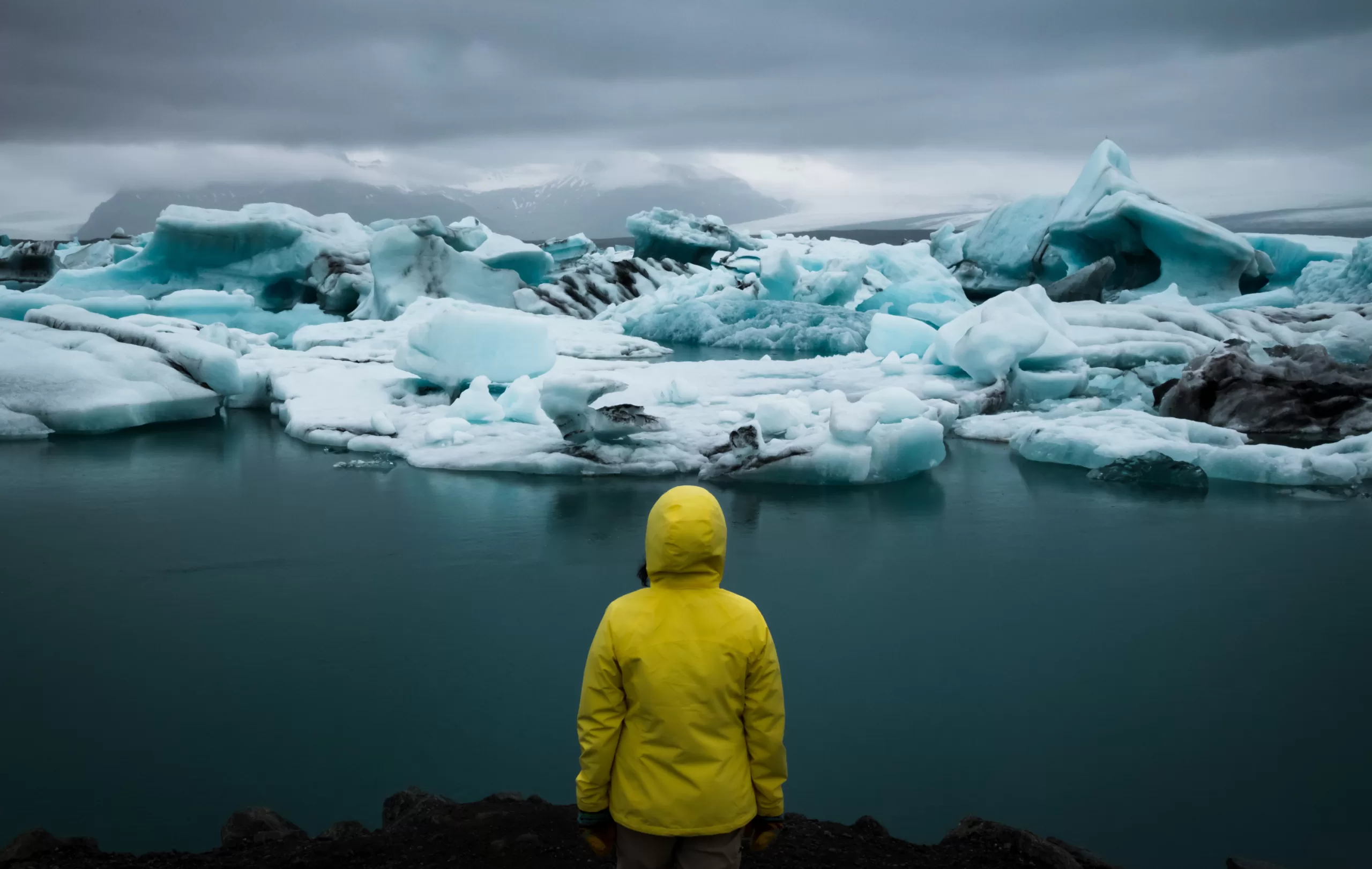
Safetravel — vertu öruggur á Íslandi
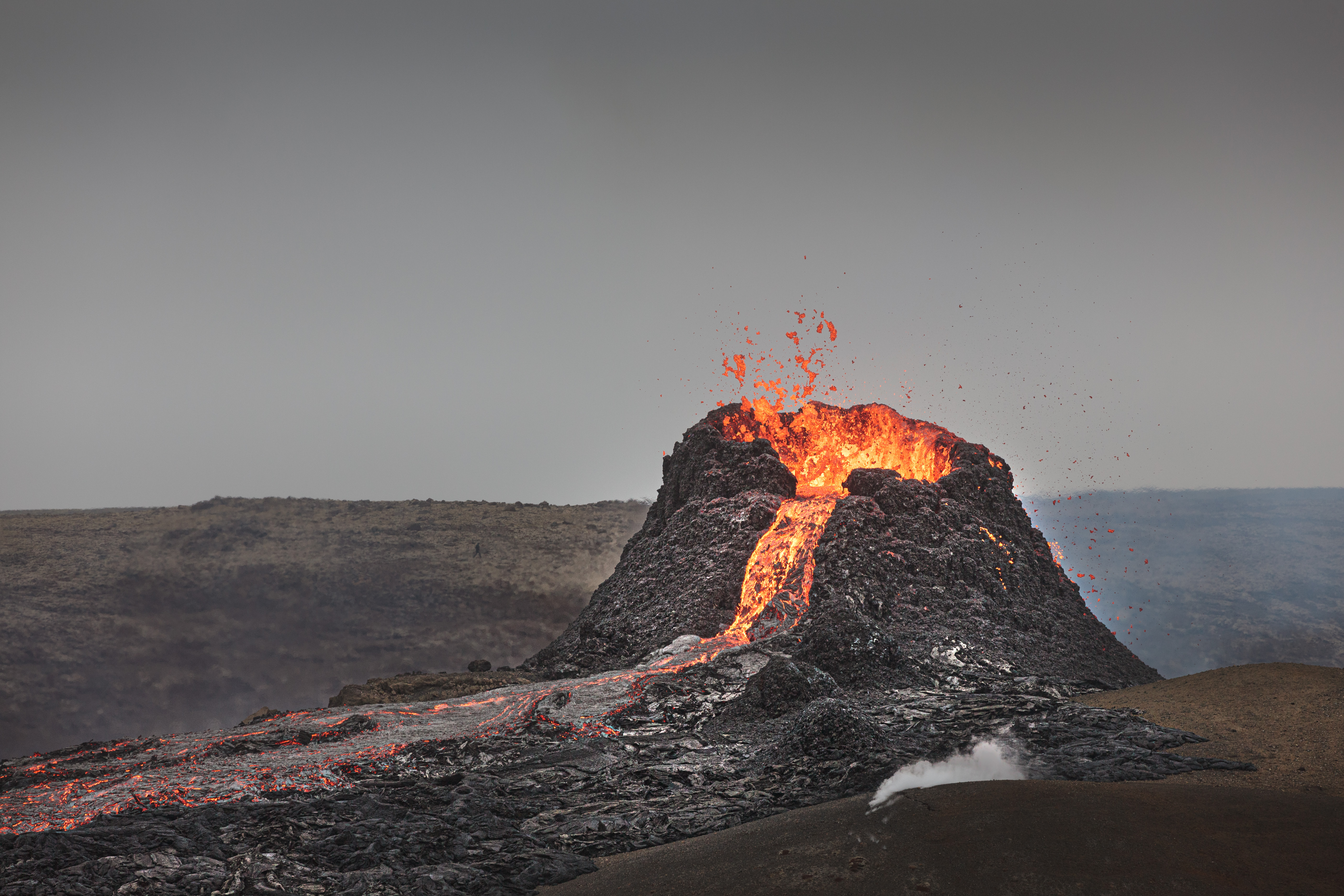
Eldgos og jarðskjálftar á Reykjanesskaga
Gossvæðið í fagradalsfjalli gossvæði skammt frá grindavík, góður undirbúningur: lykillinn að farsælum ferðalögum.
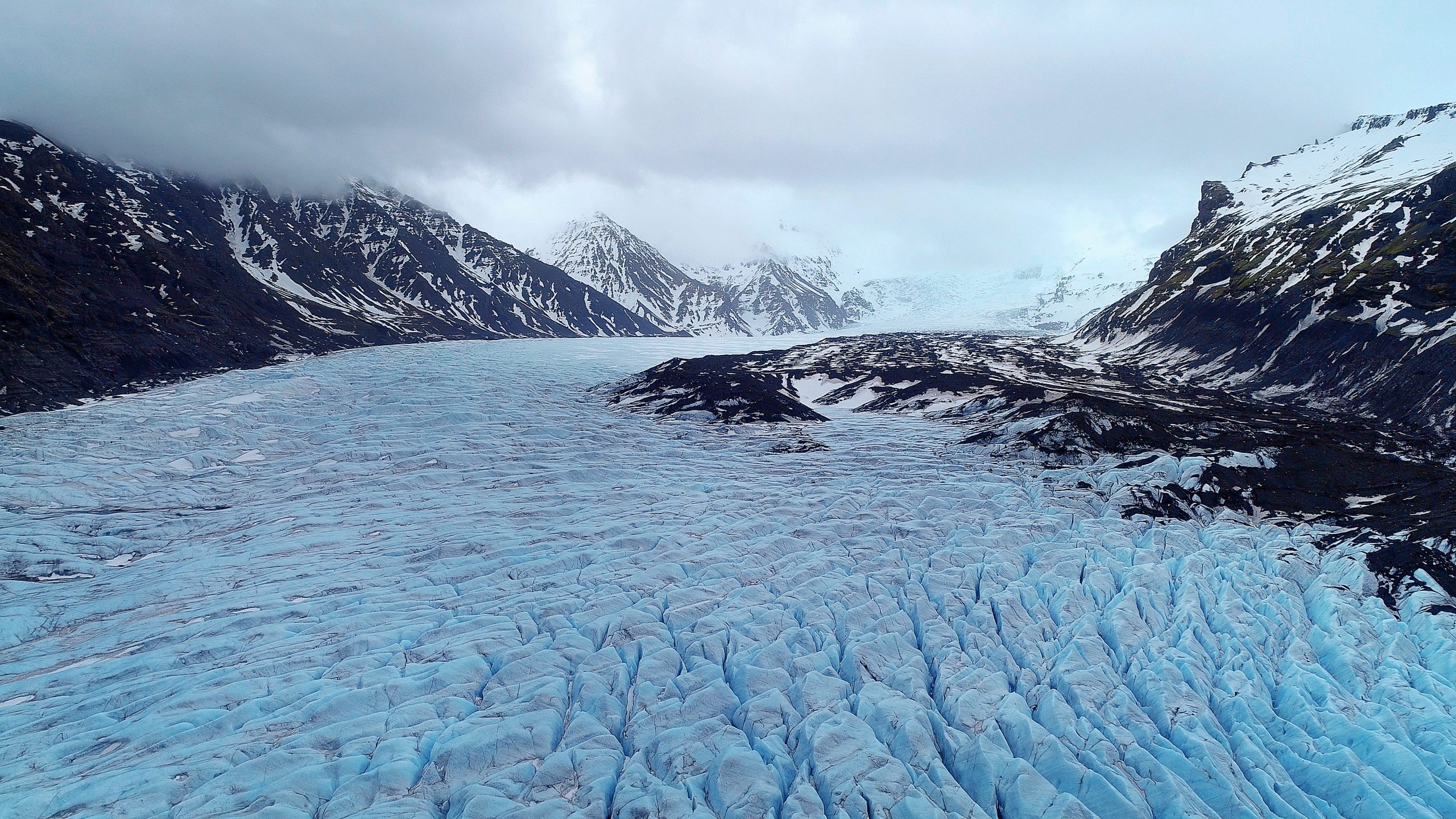
Safetravel appið
Veður- og akstursskilyrði breytast oft hratt á Íslandi. Í appinu færðu upplýsingar í rauntíma. Ef þú ert í gönguferð t.d. um fjöll eða óbyggðir, gerir appið þér kleift að senda GPS staðsetningu þína til 112 ef eitthvað kemur upp á.
Safetravel - örugg á ferðinni!
Safetravel er rekið af slysavarnafélaginu landsbjörg.
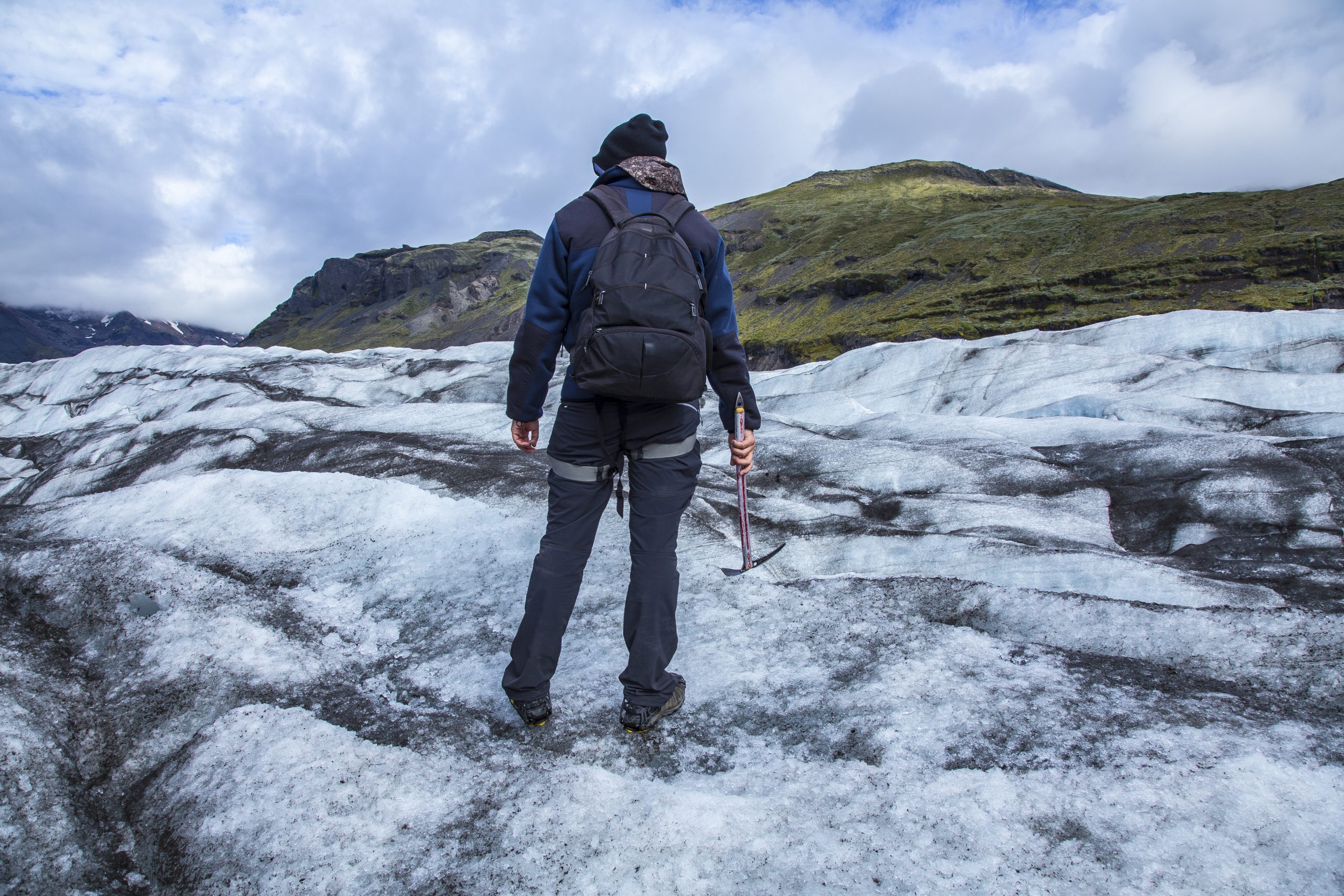
Hjálpaðu okkur að bjarga mannslífum!
Ice-sar er sjálfboðaliðasamtök með yfir 4500 sjálfboðaliða sem sérhæfa sig í leit og björgun og eru til taks allan sólarhringinn, allt árið. ef þú vilt hjálpa okkur að hjálpa öðrum, íhugaðu að styrkja okkur., aðstæður til ferðalaga veður, færð o.fl..

Gerðu ferðaáætlun
Eitt það mikilvægasta fyrir þá sem ferðast í óbyggðum er að láta traustan aðila vita af ferðum sínum..
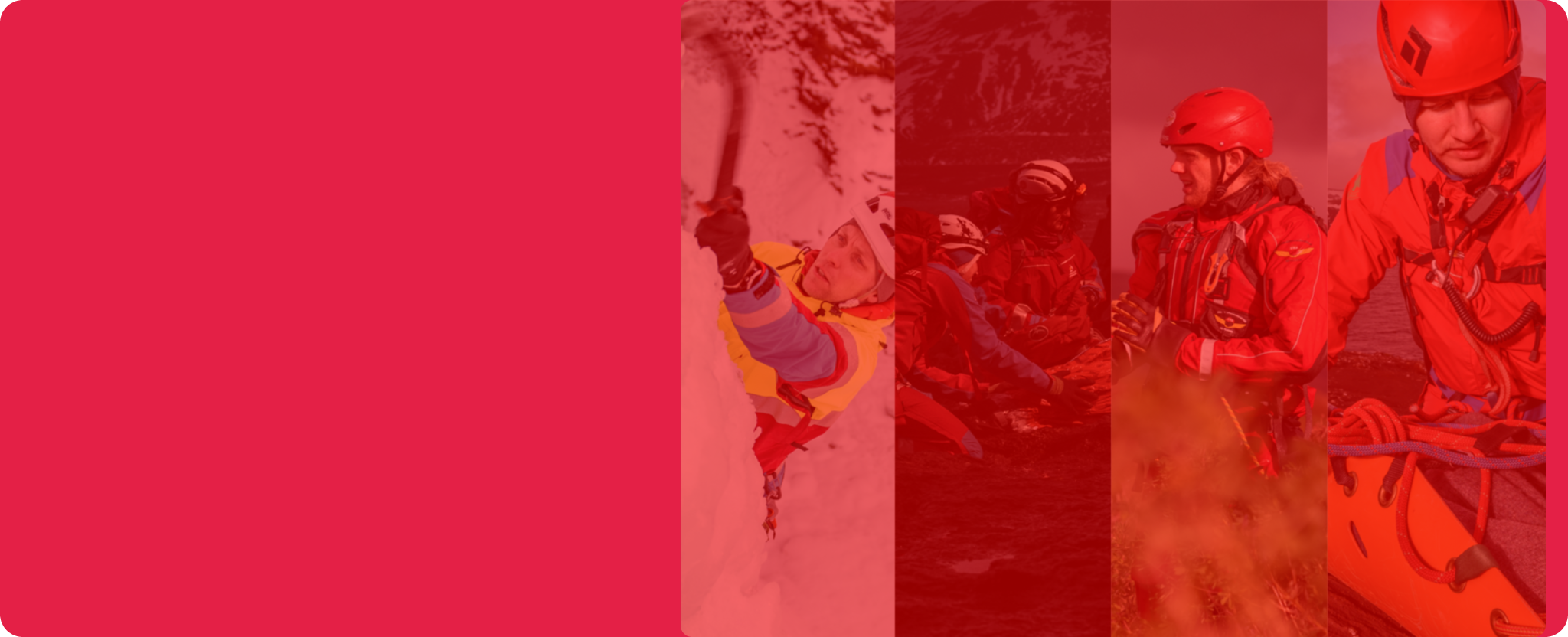
Fáðu tilkynningar frá Safetravel
Viltu fá tilkynningar/viðvaranir í gegnum textaskilaboð á ferðalögum um ísland, fyrir neyðartilvik hringdu, fyrir heilsufarsmál og aðrar heilsutengdar upplýsingar..

The Top 10 Safest Countries In Europe To Visit in 2024
D reaming of a European adventure but prioritizing safety? It may be difficult to decide where to travel with so many nations to choose from. Living in or visiting a nation that is deemed “safe” is undoubtedly a luxury, but when it comes to vacations and international travel, it’s sometimes an afterthought. Planning your vacation might go more smoothly if you are aware of which nations are considered safe for visitors to visit before booking your trip. The following list compiles the top ten safest European nations to go to in 2024, along with some key safety indicators like crime rates, political stability and healthcare systems. Let’s find you the perfect European haven for your next unforgettable escapade.
Why Does Travel Safety Matter?
There’s usually a list of “must-haves” that a country has to have, regardless of whether you visit or plan to live there permanently. We are all familiar with the typical must-haves: stunning scenery, advanced infrastructure, a wide range of activities, etc. All of the aforementioned elements are important to Nomad Capitalists, but we also give top priority to things like tax breaks, a welcoming business climate, and investment opportunities.
However, safety is the one consideration that takes precedence over all others. Even if the nation became the most developed, tax-free investment destination, people would still be afraid of touching it with a rod if they felt insecure. Fortunately, Europe continues to be the world’s most tranquil continent.
The Top 10 Safest Countries In Europe to Visit
A safe environment consists of several layers. Not every safety talk touches on issues of law and order or violent crime statistics. Safety also includes general perception, healthcare and the political environment. In light of everything, the safest nations in Europe are:
Iceland has remained on top of the list of safest countries in Europe for ten years in a row. Known as “the land of fire and ice” because of its untamed terrain, it is regarded as one of the safest regions in Europe because of its persistently low crime rate, excellent standard of living and unnecessary reliance on unarmed police.
Iceland boasts robust social networks and a deep sense of community. Nearly 98% of Icelanders claim to know someone they can depend on in an emergency. One of the key benefits of living on an island with a tight-knit community is that crime rates remain low because people know one another and can support one another in situations of need. It is also the third happiest nation in the world, based on the World Happiness Report.
Even if you’re traveling alone, the nation is among the safest countries in Europe for female travelers. Schedule a visit to this secure European nation to increase your chances of seeing the fabled Northern Lights. Make a reservation for the Blue Lagoon for a tranquil activity where you may let your thoughts drift away and harmonize with the opulent surroundings.
Denmark is the second safest country in the world and Europe, and it is also the birthplace of the concept of utter contentment (Hygge). But this nation is renowned for more than just safety; it has a lot to offer visitors, whether they are traveling alone or with a big group of friends. Some of the attractions are LEGO, the Tivoli Gardens and even enjoying a nice Carlsberg beer. You’ll be departing with tales from one of Europe’s safest nations that someone like Hans Christian Anderson would be proud of.
Books, legends and a pint of Irish Guinness. The time has come to get to know the Emerald Isle if an Irish tour isn’t the last thing on your mind. The Republic of Ireland is ranked third among the safest European nations by the GPI. It is distinct from Northern Ireland, a constituent of the Kingdom of Great Britain.
This little country takes great pleasure in its lush surroundings, its musical talents and its ability to pour the ideal pint. The nation also offers one of the lowest corporation tax rates in all of Europe. We’ve even highlighted Ireland as a great travel destination for single female travelers because of its comparatively low crime rate and low threat levels. Leave Dublin behind and immerse yourself in the fabled tales of bygone eras in other counties like Cork and Limerick; you never know what you could find. Furthermore, the Irish passport is regarded as one of the strongest five passports globally for its excellent freedom of travel.
Austria, which is renowned for its regal and ancient castles and palaces, comes in second place among the safest nations in Europe. But it’s not only architecture, either. Classical music enthusiasts can honor well-known composers like Mozart and Beethoven by swaying along in Vienna. Should your tour happen to arrive in the winter, you may enter the magical Christmas markets and experience a sensation equivalent to being within a joyous snow globe. Find out more about the best places to travel to in Europe during the winter.
Portugal, which completes the top 5 safest countries in Europe, enjoys cordial relations with its neighbors, a very low crime rate, and its armed forces. The country in southwest Europe has high levels of safety, in part because of the presence of security officials. Portugal is also safe politically, as its connections with other nations are cooperative.
In addition, the nation experiences over 300 days of sunshine on average, so visitors may be lucky to experience pleasant weather while touring. Take a tour of Portugal in the spring or summer and return feeling rejuvenated. Leave Lisbon behind and explore the city before expanding your horizons to include the other towns. Saying “yes” to a vacation in this secure European nation is the only thing left to do.
Slovenia is a country with breathtaking scenery, untamed lakes and elaborate cave networks. Slovenia’s capital, Ljubljana, was voted the Open City of Europe in 2016 because of its completely car-free city center, abundance of open areas and changes to the traffic laws that promote environmental health and sustainability.
But having beautiful scenery by itself doesn’t guarantee a place among the ten safest nations in Europe. Slovenia excels in several areas besides environmental safety. With almost 90% of recorded criminal charges being theft, it ranks high among the countries with the lowest levels of crime in the world. Slovenia deserves a spot on your next trip destination since it has a plethora of medieval castles, lots of recreational opportunities, and the cleanest atmospheres you’ll ever experience.
Switzerland
An excursion to Switzerland is sure to leave you craving more cheese, chocolate, and timepieces. Its long-standing neutrality has played a key role in keeping Switzerland safe, stable, and free of all bloodshed. The Swiss people are an exceptional nation because they have always lived in a tranquil environment free from instability or the threat of conflict. The nation has been able to focus on more vital issues like social welfare and growth because of the prolonged era of peace. Switzerland is now at the top of the Human Development Index.
Were you aware that Switzerland maintains one of the largest rates of gun ownership worldwide? Despite being known for being a major exporter of weapons, it has managed to keep its crime rate extremely low. That’s the extent to which the government’s gun control measures work.
The Czech Republic
Czechia, or The Czech Republic is a well-liked travel destination with a rich cultural heritage and a high level of security within Europe. There is little chance of terrorist threats, communities frequently coexist peacefully and the cost of medical services and other necessities is comparatively lower.
Finland is a deserving destination to be included in the list of the safest European countries. The country is proud to share the statistic that 11 out of 12 misplaced purses are given back to their owners. This country is a delight in every season, home to Lapland, the largest island in the world, and untamed wilderness.
Furthermore, Finland is the second-safest nation according to the Women’s Peace and Security Index, making it a safe sanctuary for lone travelers. Therefore, you can confidently pack your bags and reserve your next trip to this stunning nation if you’re a woman hoping to view the northern lights. If you like to avoid crowds, consider taking a trip in the fall, right before the holiday season.
The Republic of Croatia
Croatia ranks bottom among the ten safest European nations, surrounded by historic walls and terracotta roofs. Even when it came to the safest places to walk at night—which is frequently a top concern for women traveling alone—it came in second. Croatia is a strong candidate for any upcoming European trip plans you may have, given its Mediterranean climate.
Safe Travels!
Now that you are aware of the safest countries in Europe, pack your bags and embrace the peace of mind! Whether you crave the rugged beauty of Iceland or the charming canals of Amsterdam, Europe offers a wealth of safe and unforgettable travel experiences. Remember, this list is a jumping-off point, and further research can help tailor your choice to your specific interests.
While these countries consistently rank highly in safety, it’s important to remember that vigilance is key anywhere you travel. Staying informed about current events, researching specific destinations, and practising common sense will go a long way in ensuring a smooth and secure European adventure. With a little planning and this handy guide, your European adventure is sure to be as safe as it is spectacular.
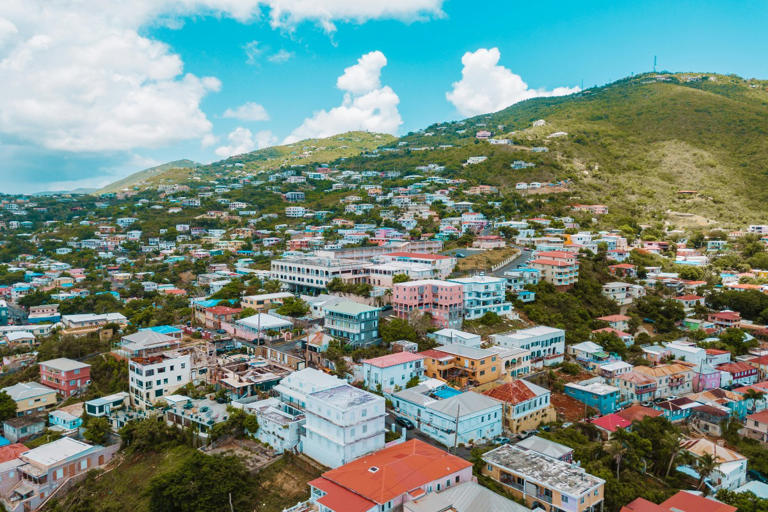

IMAGES
COMMENTS
for safe travel in Iceland. Safetravel is run by ICE-SAR — The Icelandic Association for Search and Rescue. Outdoors in Iceland. Discover outdoors. Driving in Iceland. Get on the road. Help us save lives! ICE-SAR is a non-profit, volunteer-based organization with over 4500 volunteers that specialize in providing search and rescue services ...
Last Update: Reissued with updates to health information. Exercise normal precautions in Iceland. Read the country information page for additional information on travel to Iceland.. If you decide to travel to Iceland: Enroll in the Smart Traveler Enrollment Program to receive Alerts and make it easier to locate you in an emergency.; Follow the Department of State on Facebook and Twitter.
Is Iceland a safe country? Actually, it is hard to feel any safer than here: Iceland is a country with one of the world's lowest crime rates, ranking consecutively in 1st place on the Global Peace Index, and home to no animal predators dangerous to man. So, it doesn't seem very dangerous, but the challenges lie elsewhere.
Iceland is a popular travel destination thanks to its unique natural landscapes, hot springs and the opportunity to witness the elusive Northern Lights. It's typically regarded as a super safe ...
2. Use common sense to stay safe in the wild. Some tourists have been a little foolish in Iceland's incredible landscapes. Visitors have been seen strolling onto the Sólheimajökull glacier in sneakers and light jackets; a family attempted to drive across Langjökull glacier in a small SUV. We've also watched a teenager jump into 2°C (35°F) waters at Þingvellir National Park for a dare and ...
18. December 2023. Eruption started in Reykjanes Peninsula. Keflavík airport is still open and the eruption does not affect air traffic. Iceland is still open and safe to visit. 1. November 2023. Since earthquakes began Iceland in October 2023, you might be wondering whether it's safe to visit Iceland. We understand that you might be nervous ...
This year, for the eleventh year running, the Global Peace Index ranked Iceland the safest country in the world, and Reykjavík, by almost all measures, is consistently ranked one of the top twenty safest capital cities.. Over 90% of Icelanders agree that their country is a safe travel destination, and with some of the world's lowest crime and murder rates for a sovereign state, it is little ...
Is it safe to travel to Iceland right now? The current COVID-19 status in Iceland. Iceland is a relatively small country that has been united in preventing the spread of COVID-19 by following a strict testing and tracing protocol throughout the pandemic. These proactive measures successfully kept infection rates low throughout the pandemic ...
Iceland is not only one of the safest countries in the world, but it is the safest country in the world and has been every year from 2008 through 2020, according to the Global Peace Index. Petty crime like pickpocketing and robbery is rare, and violent crime is almost non-existent. With a population of about 350,000 people in the whole country ...
On August 9, 2021, the CDC added Iceland to its "Avoid Travel" list and issued a Level 4: Very High Level of COVID-19 in Iceland alert. The U.S. State Department also issued a Level 4: Do Not Travel advisory to Iceland on the same day "due to COVID-19 related restrictions," indicating a "very high level of COVID-19 in the country ...
Enroll in the Smart Traveler Enrollment Program (STEP) to receive security messages and make it easier to locate you in an emergency. Call us in Washington, D.C. at 1-888-407-4747 (toll-free in the United States and Canada) or 1-202-501-4444 (from all other countries) from 8:00 a.m. to 8:00 p.m., Eastern Standard Time, Monday through Friday ...
Iceland Travel is working within guidelines set forth by the Icelandic health, safety, and tourism authorities during the covid-19 pandemic. Information can be found on the Directorate of Health and on Icelandic Tourist Board. Information on traveling to and within Iceland, as well as rules at the border can be found on covid.is. Some countries may require a negative rapid antigen test or PCR ...
This app was one of the first in the world, and it enabled professionals to track possible infections of COVID-19 more effectively. Almost 40% of the population downloaded it within days of its release. By mid-April, Decode Genetics was working tirelessly with the Icelandic government to provide free voluntary testing.
Iceland : Safety by City. Iceland is a country in the North Atlantic Ocean, located between Europe and North America and as such, considered Nordic European. Its name though, is a bit misleading, because although 10% of it is covered in glaciers, its climate is surprisingly mild and it boasts a number of geothermal hot-spots and hot springs.
If your travel plans in Iceland include outdoor activities, take these steps to stay safe and healthy during your trip: Stay alert to changing weather conditions and adjust your plans if conditions become unsafe. Prepare for activities by wearing the right clothes and packing protective items, such as bug spray, sunscreen, and a basic first aid ...
100%. Iceland really is safe to visit. Naturally, it's a super popular place to visit and tourism is increasing. The number of visitors in 2017 was over 2 million. That's more than six times the population of Iceland! Things can go wrong because people don't know the extremities of the environment.
Travelling to Iceland. FCDO travel advice for Iceland. Includes safety and security, insurance, entry requirements and legal differences.
Important tips for driving in Iceland - Safe Travel Iceland; Driving in Iceland - Visit Reykjavik; International Driving Permit; Money. The currency of Iceland is the Icelandic krona (ISK). If you are carrying €10,000 or more, or the equivalent in other currencies, you must make a declaration to customs when you enter or leave Iceland. The ...
Visitor numbers. Iceland is a popular travel destination. Sometimes, certain places can be busier than others. Skip the hectic tourist traffic at the most popular destinations and plan your trip to make the most of your time in Iceland. Use our tourist counter to see peak visitor times and plan accordingly. Find the best time to visit!
The Icelandic Met Office (IMO) reported: "The eruption began at 20:23 UTC on 16 March, with a 2.9-km-long fissure forming quickly. The length and location of the fissure is similar to the ...
Safetravel is the official source for safe travel in Iceland. Safetravel is run by ICE-SAR — The Icelandic Association for Search and Rescue.
Iceland. Iceland has remained on top of the list of safest countries in Europe for ten years in a row. Known as "the land of fire and ice" because of its untamed terrain, it is regarded as one ...